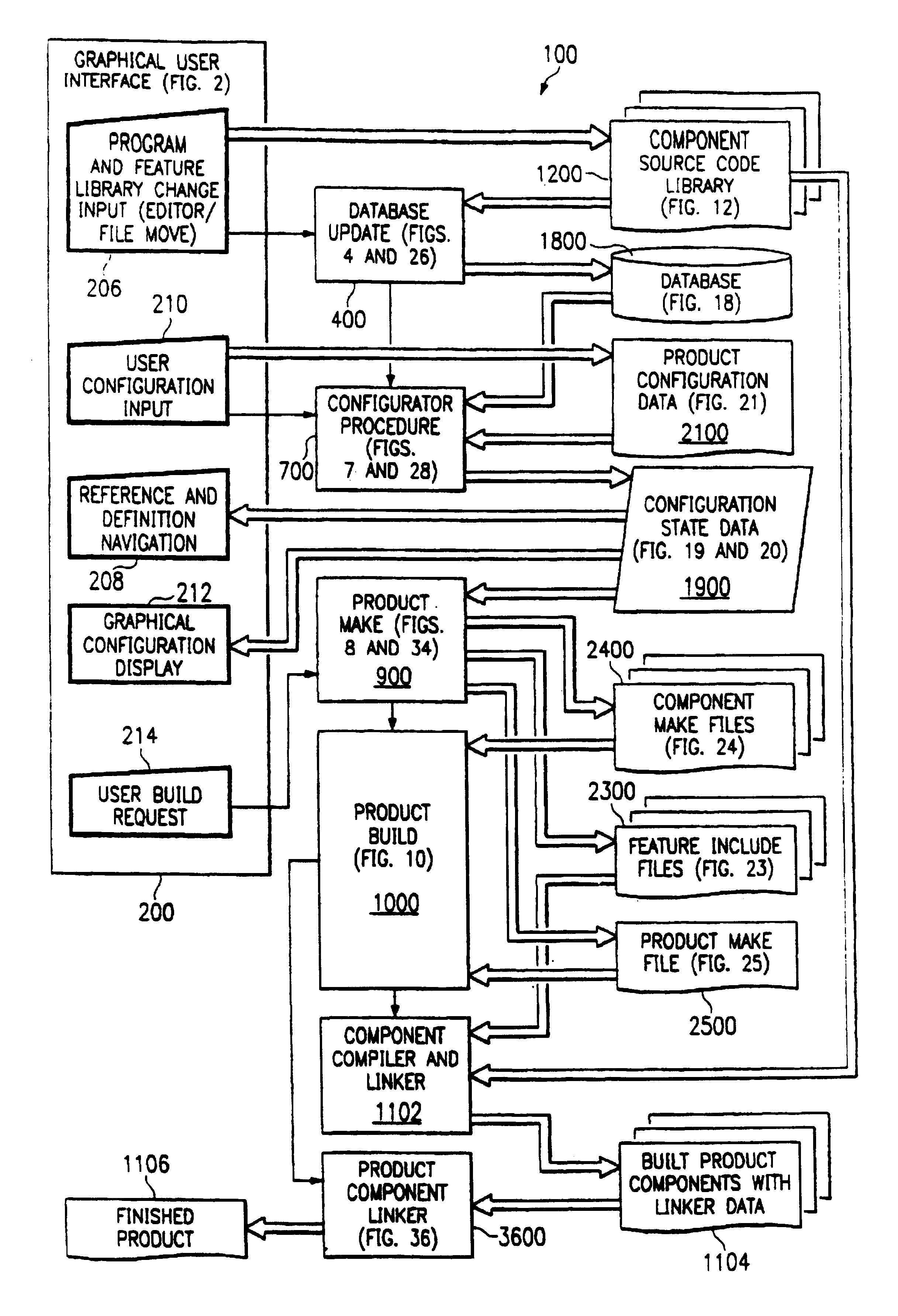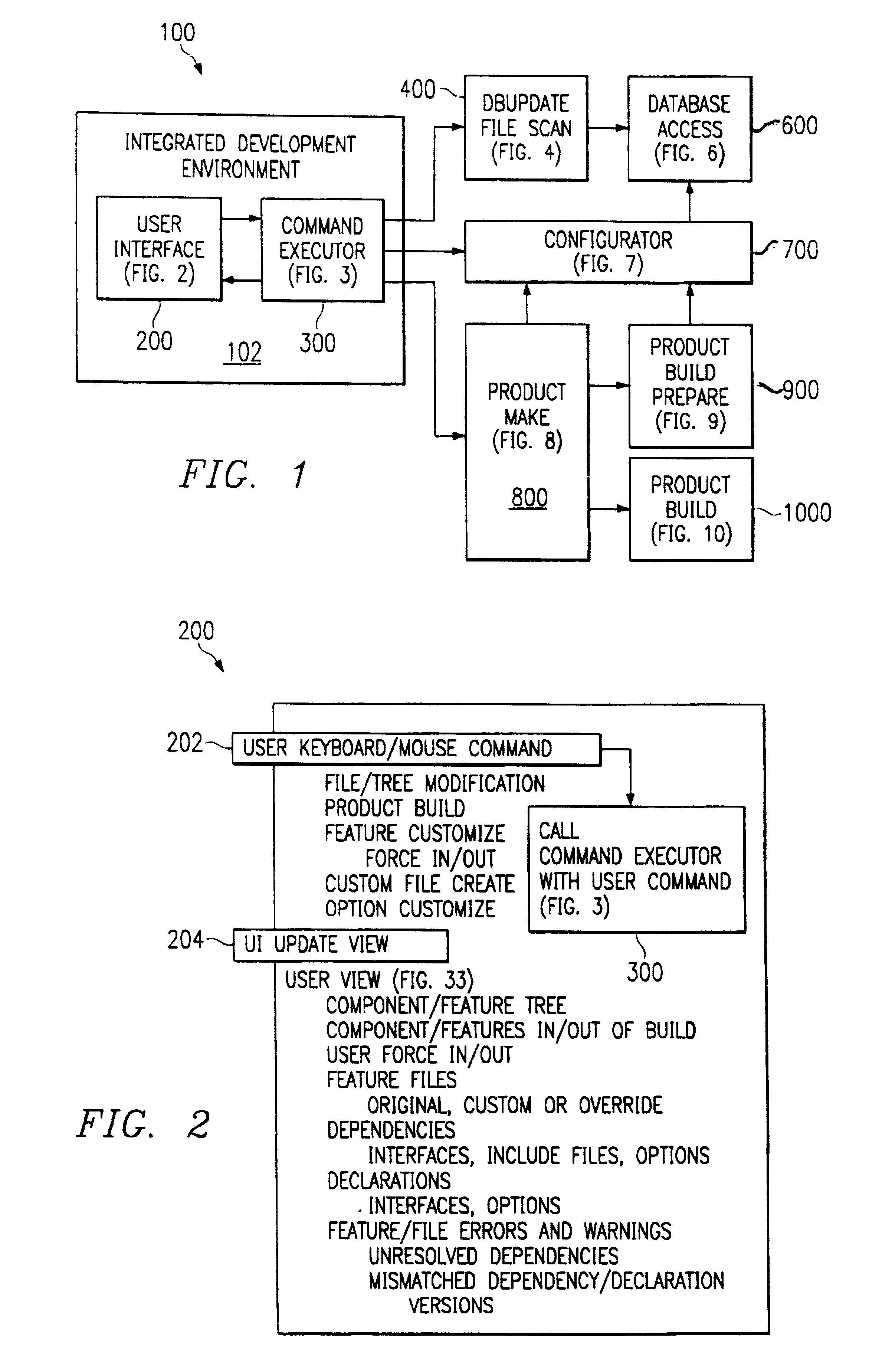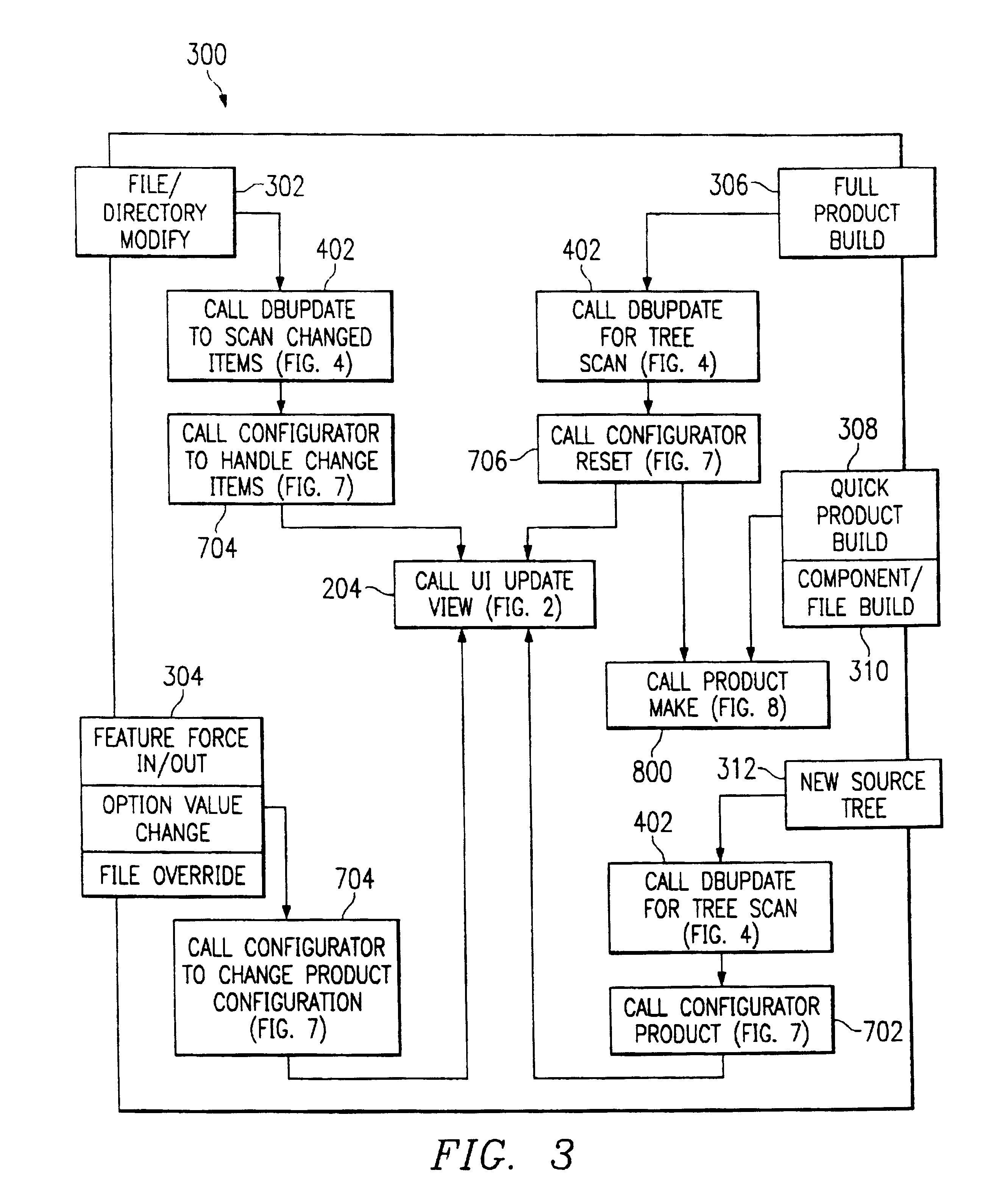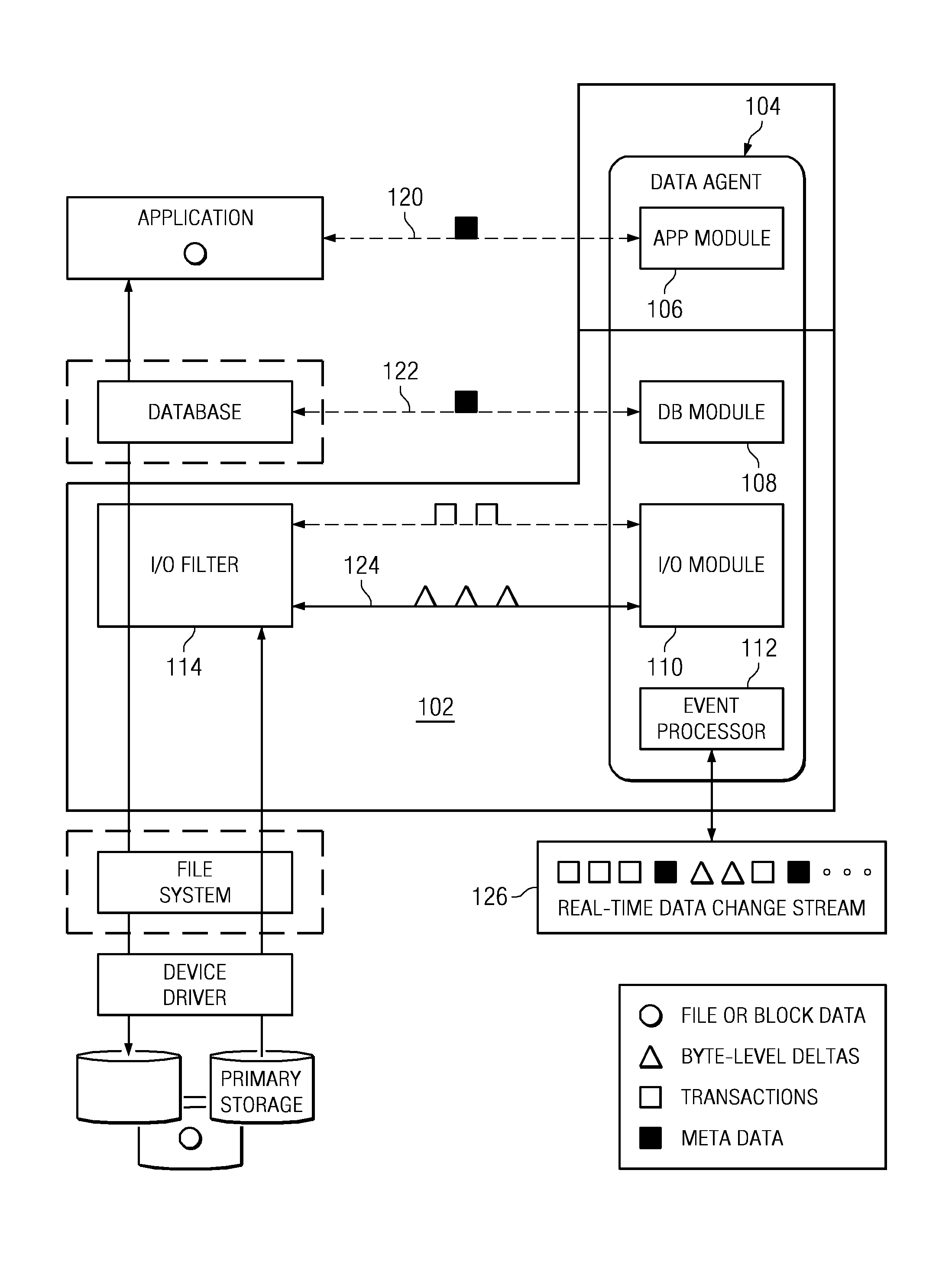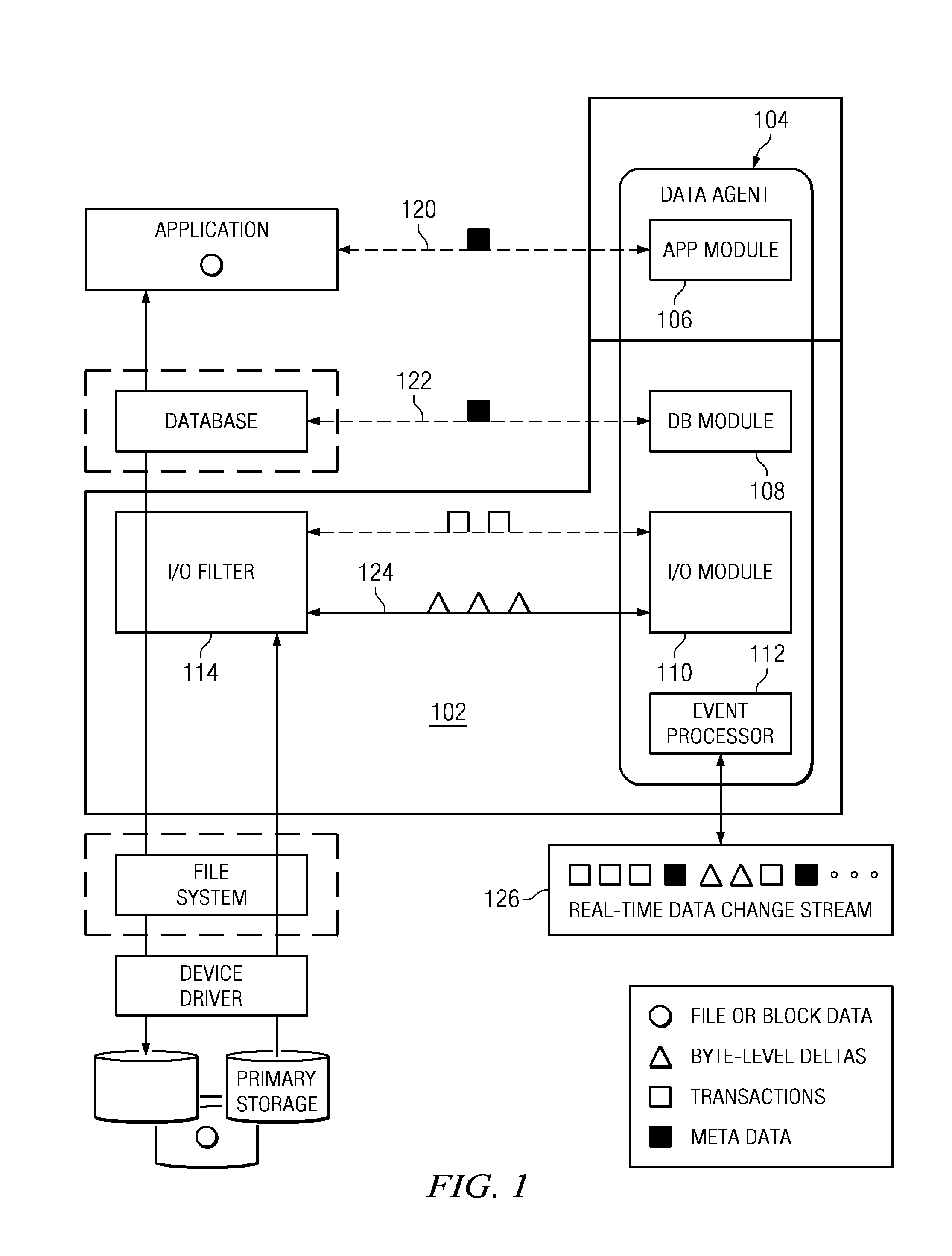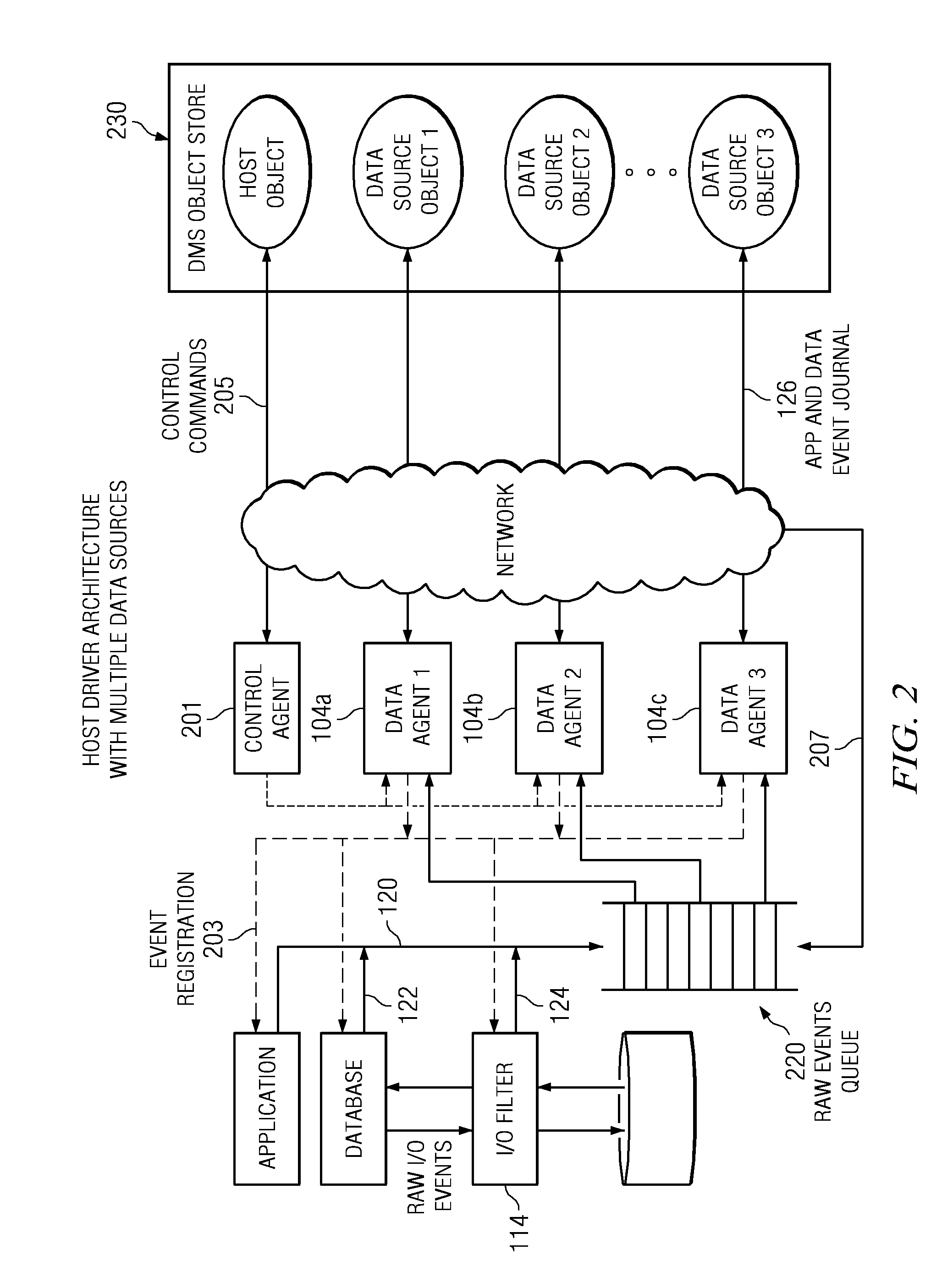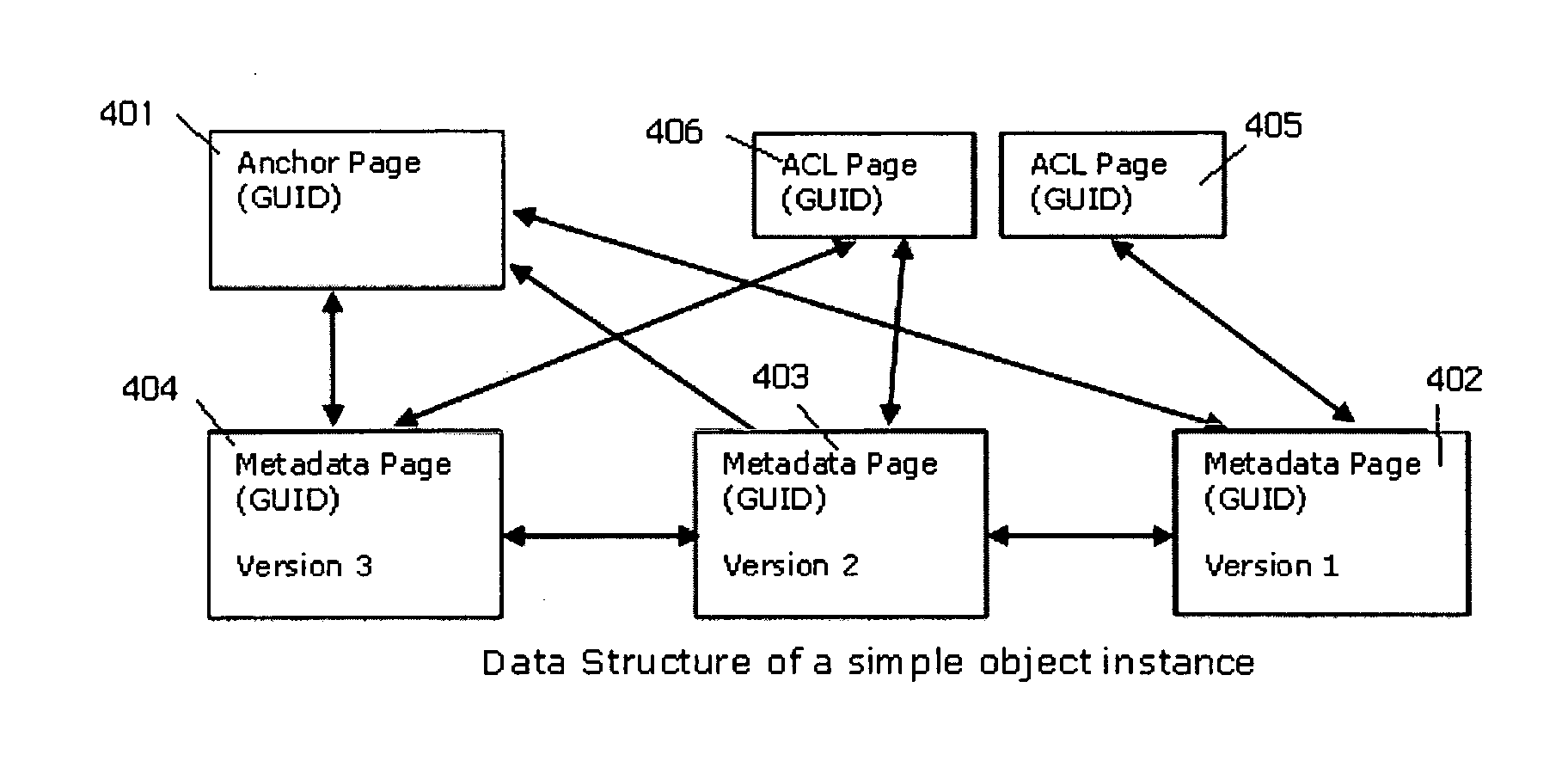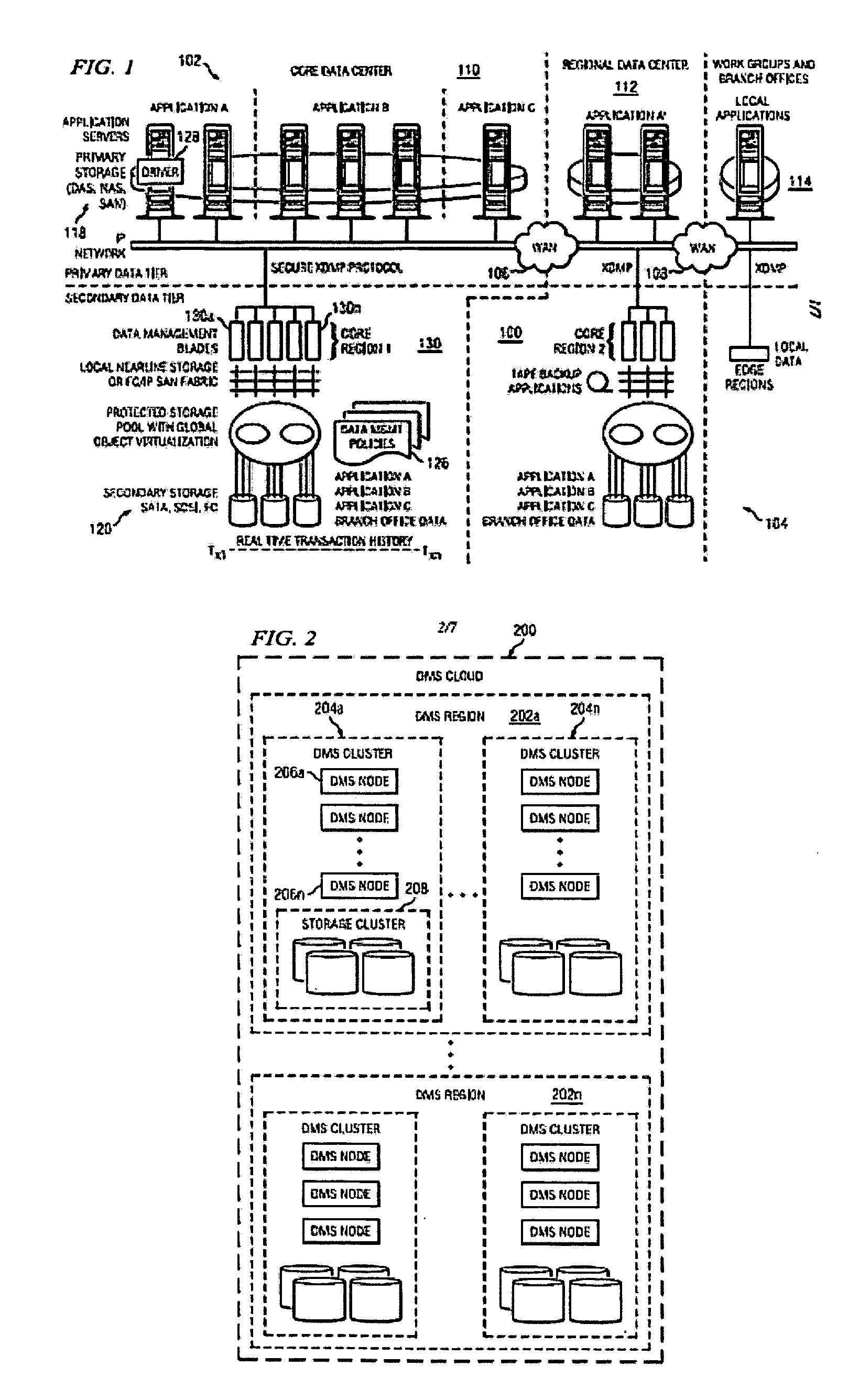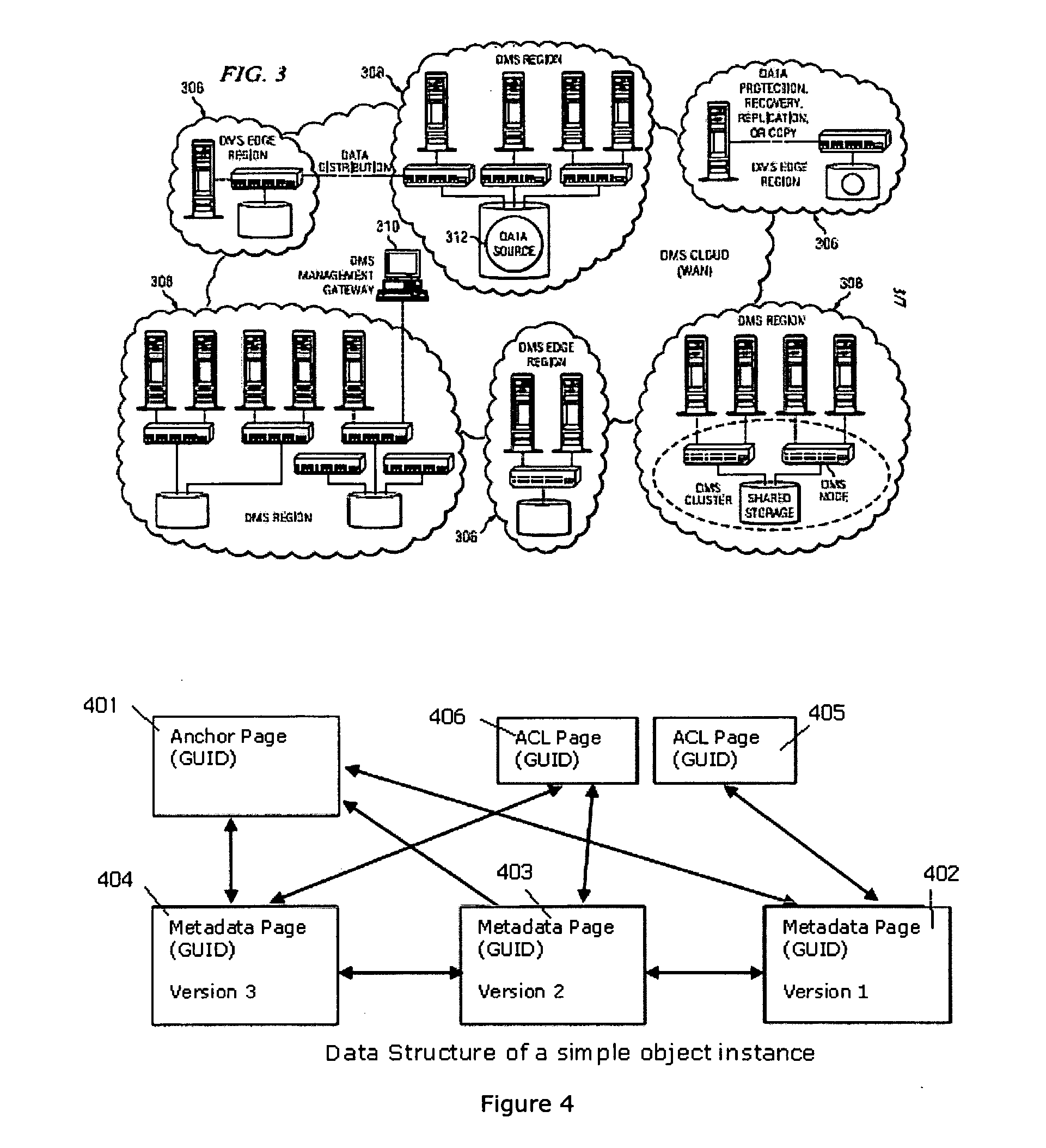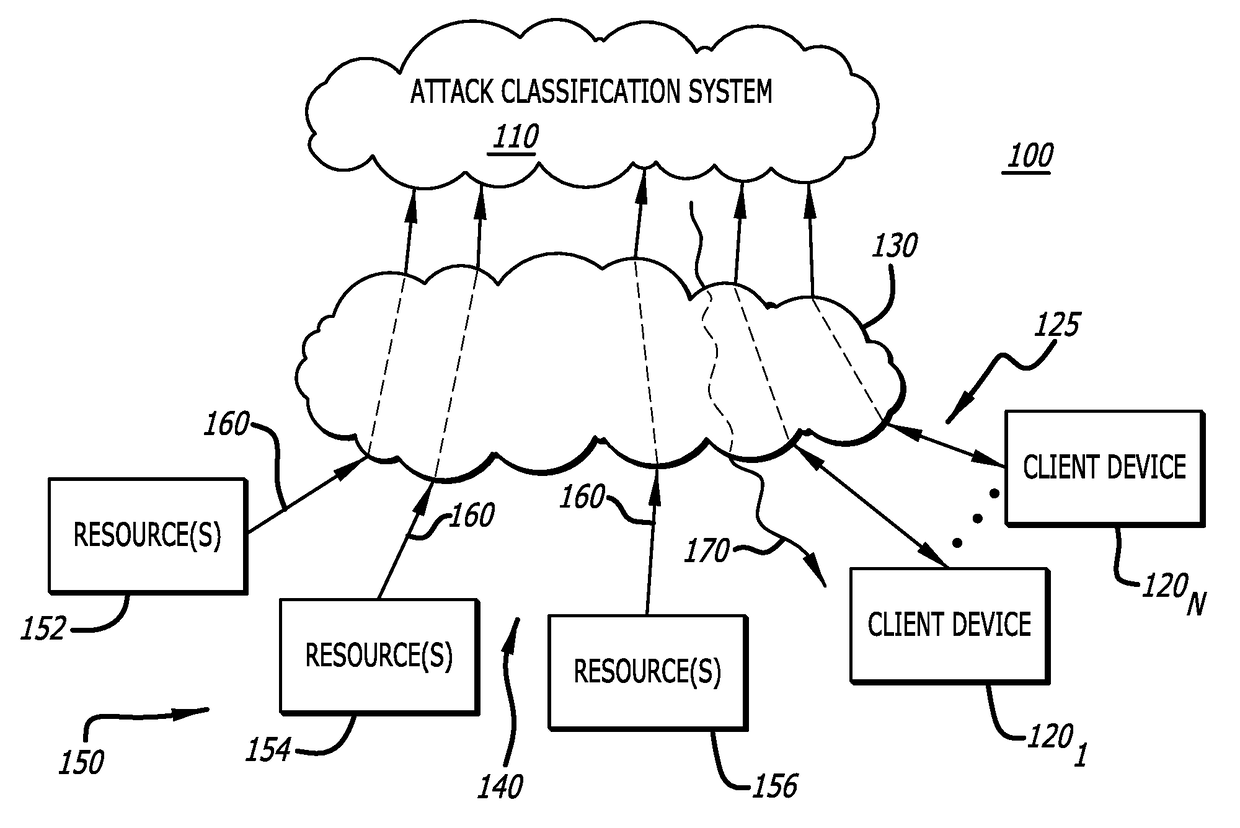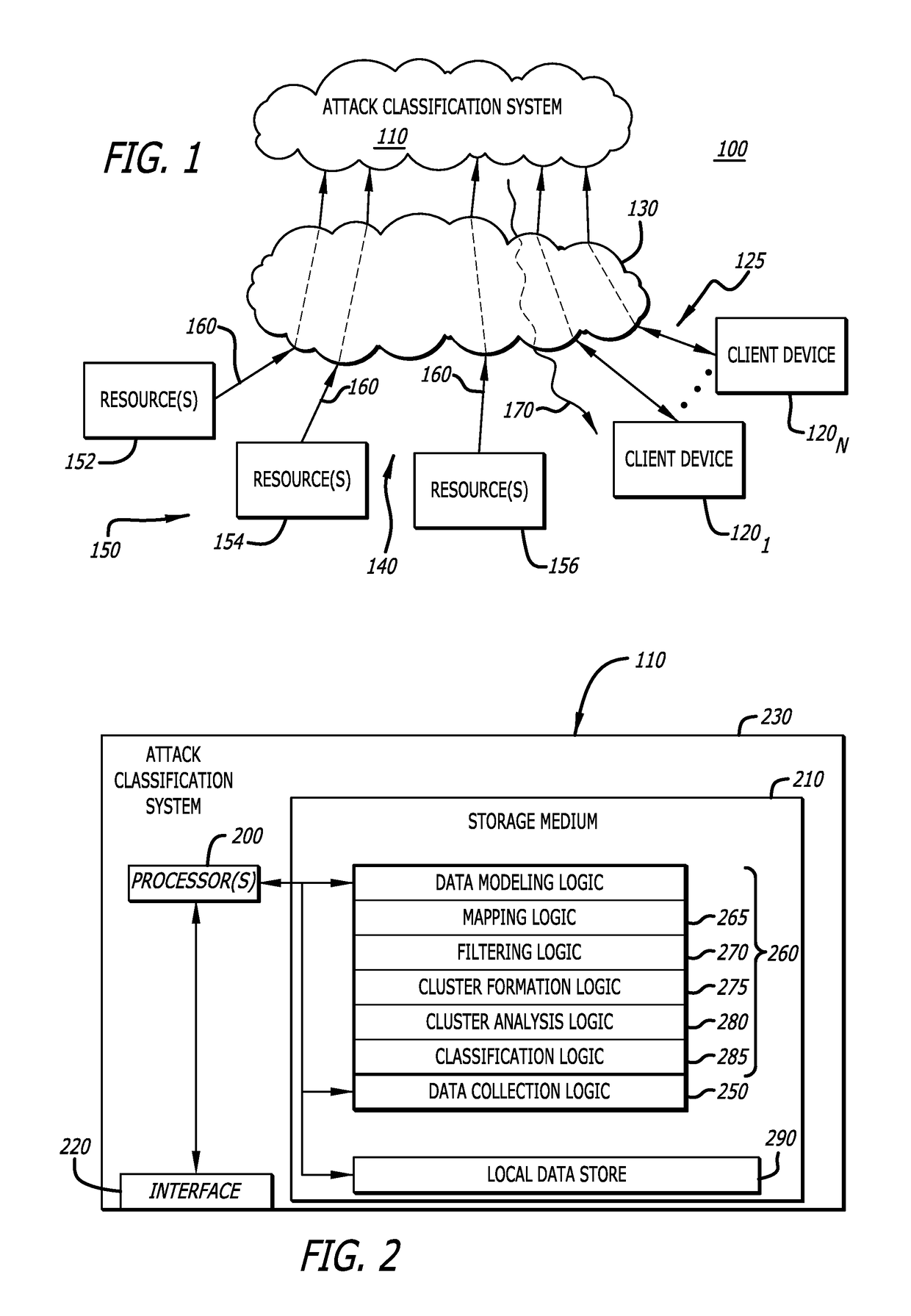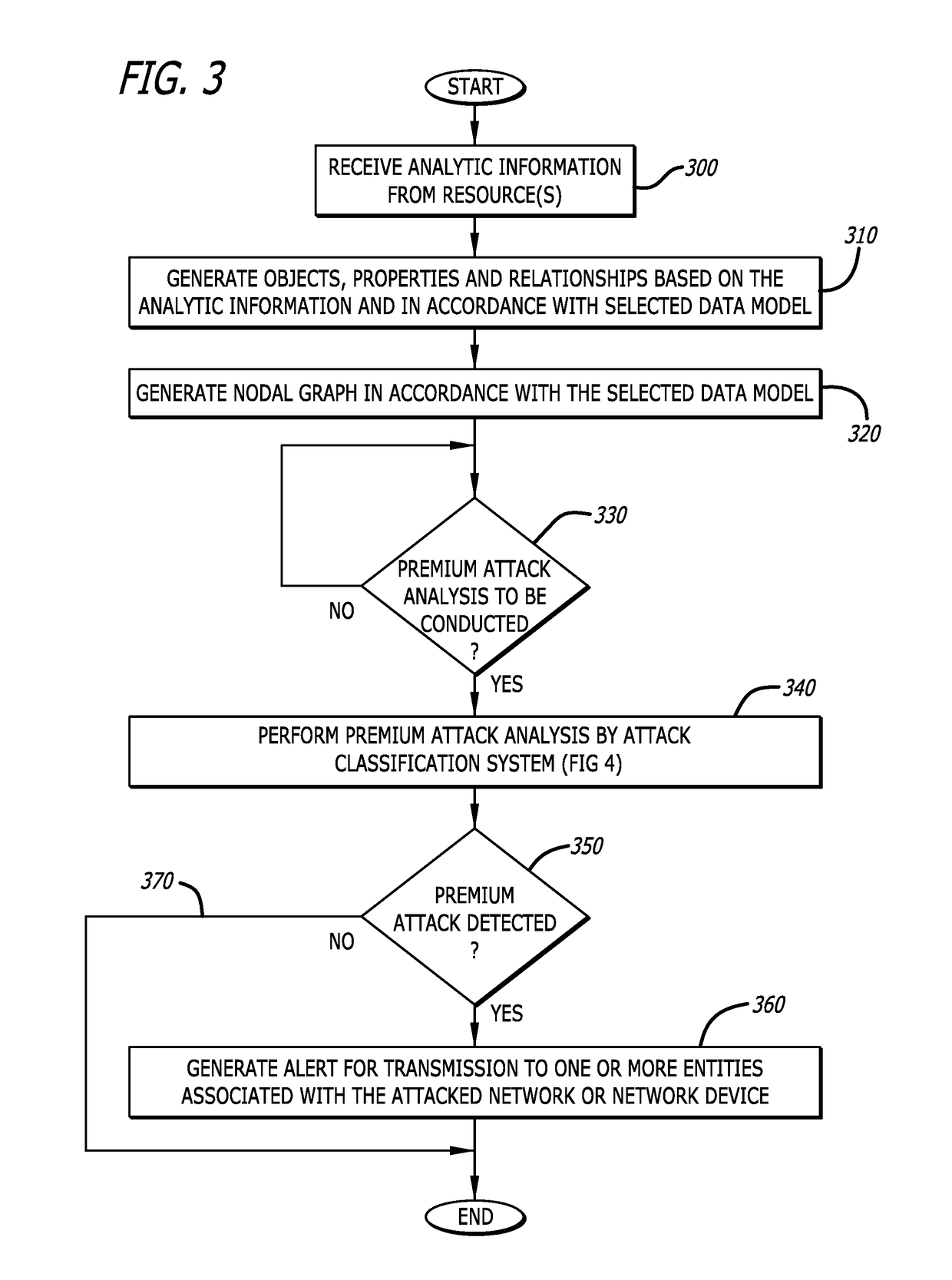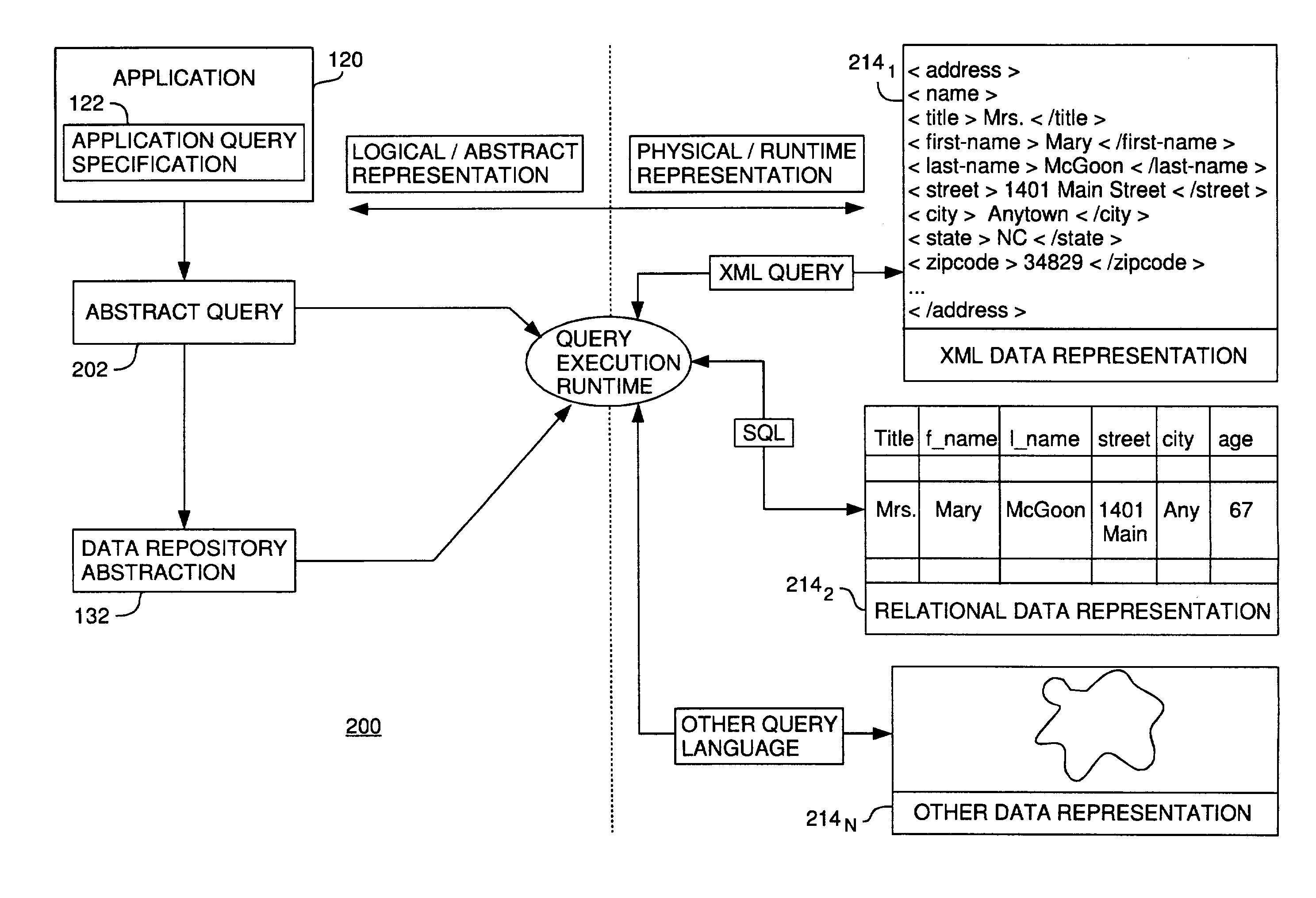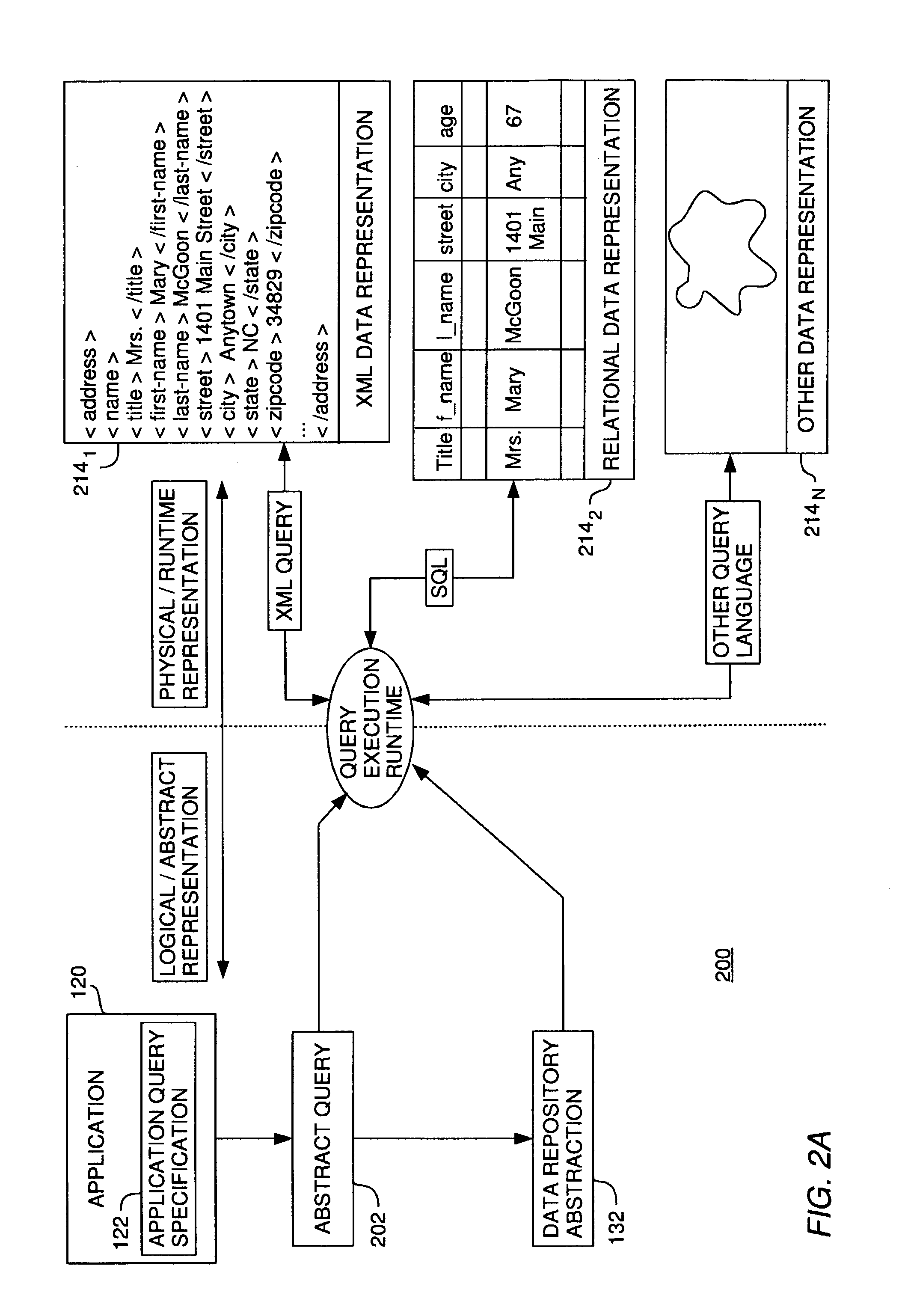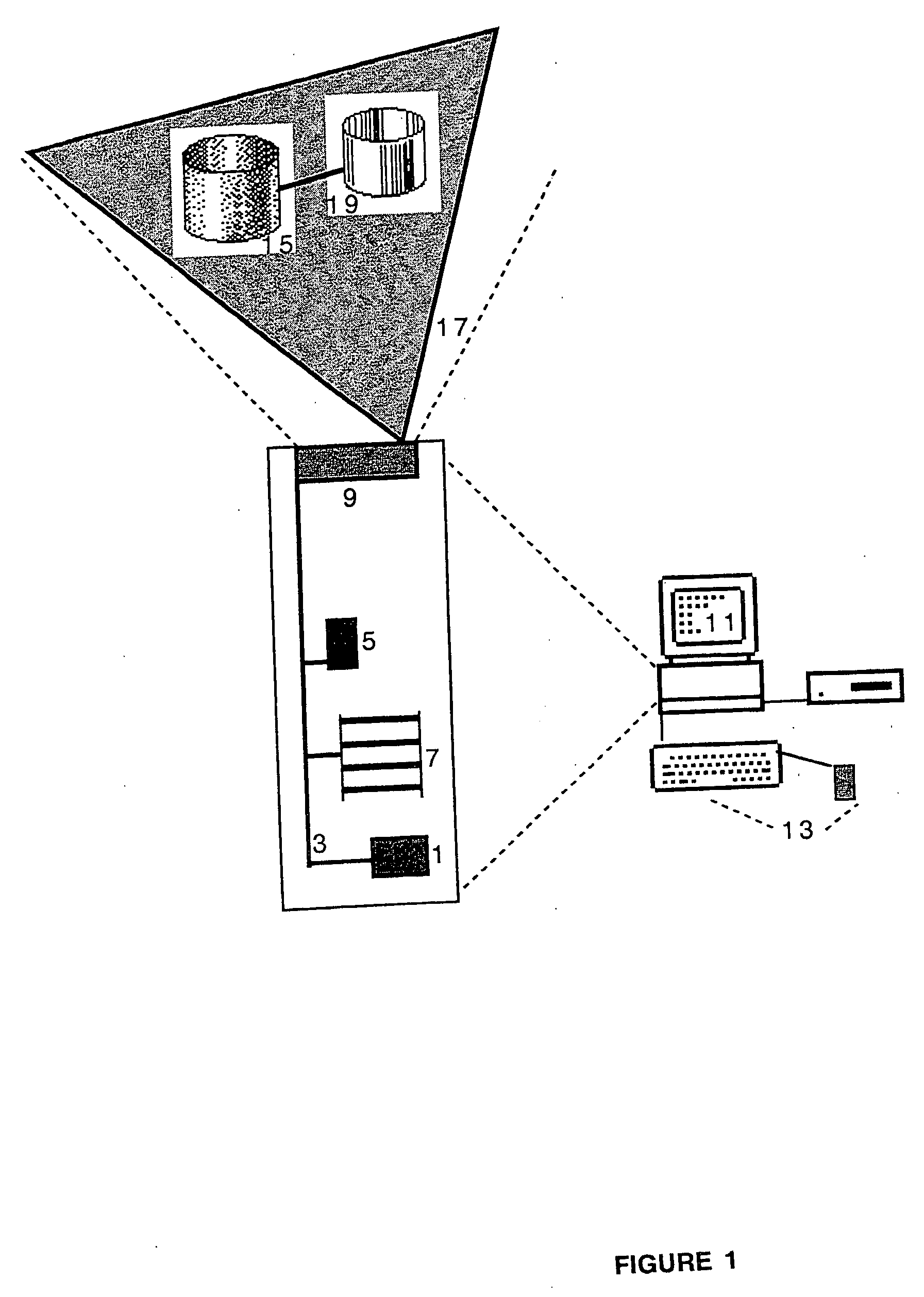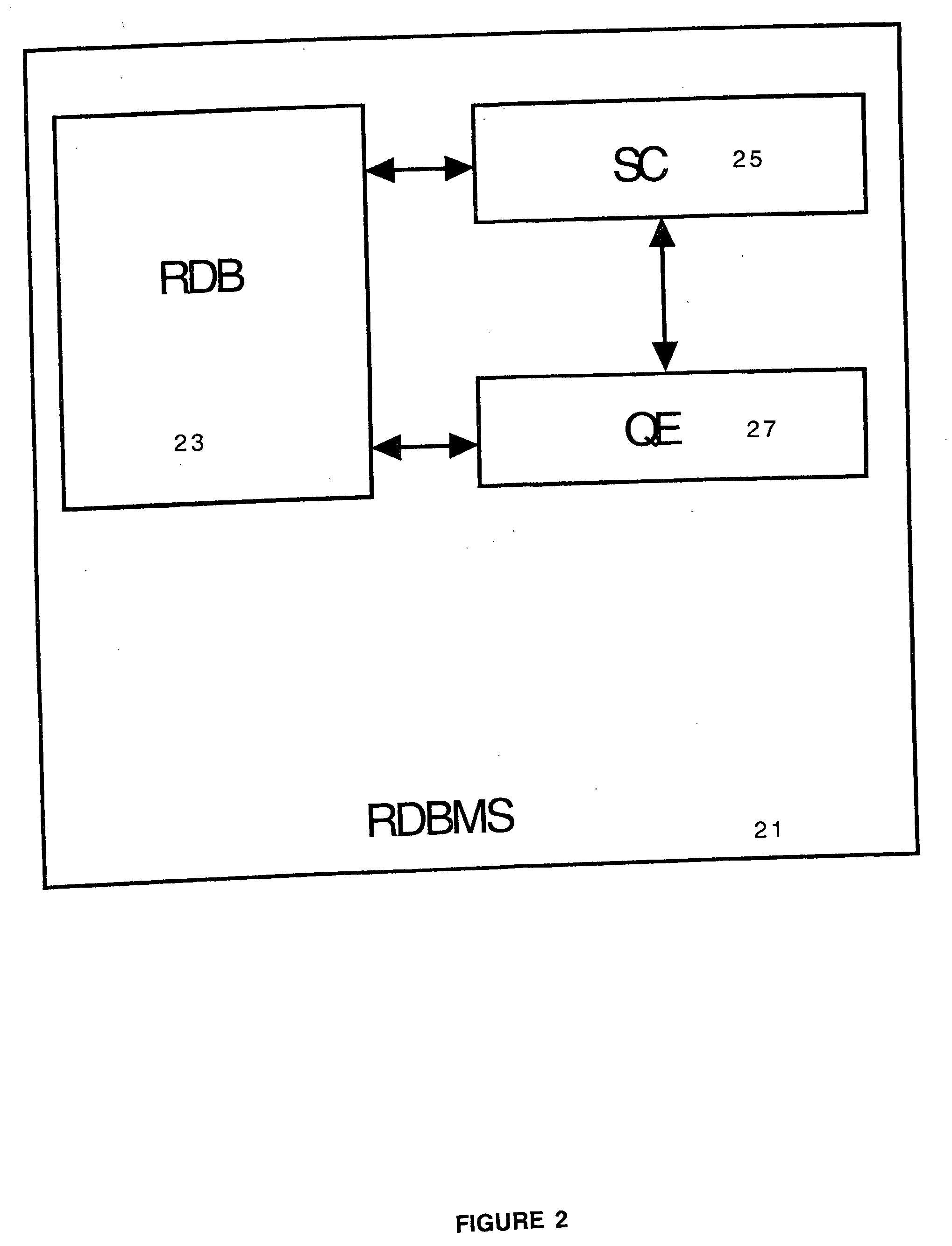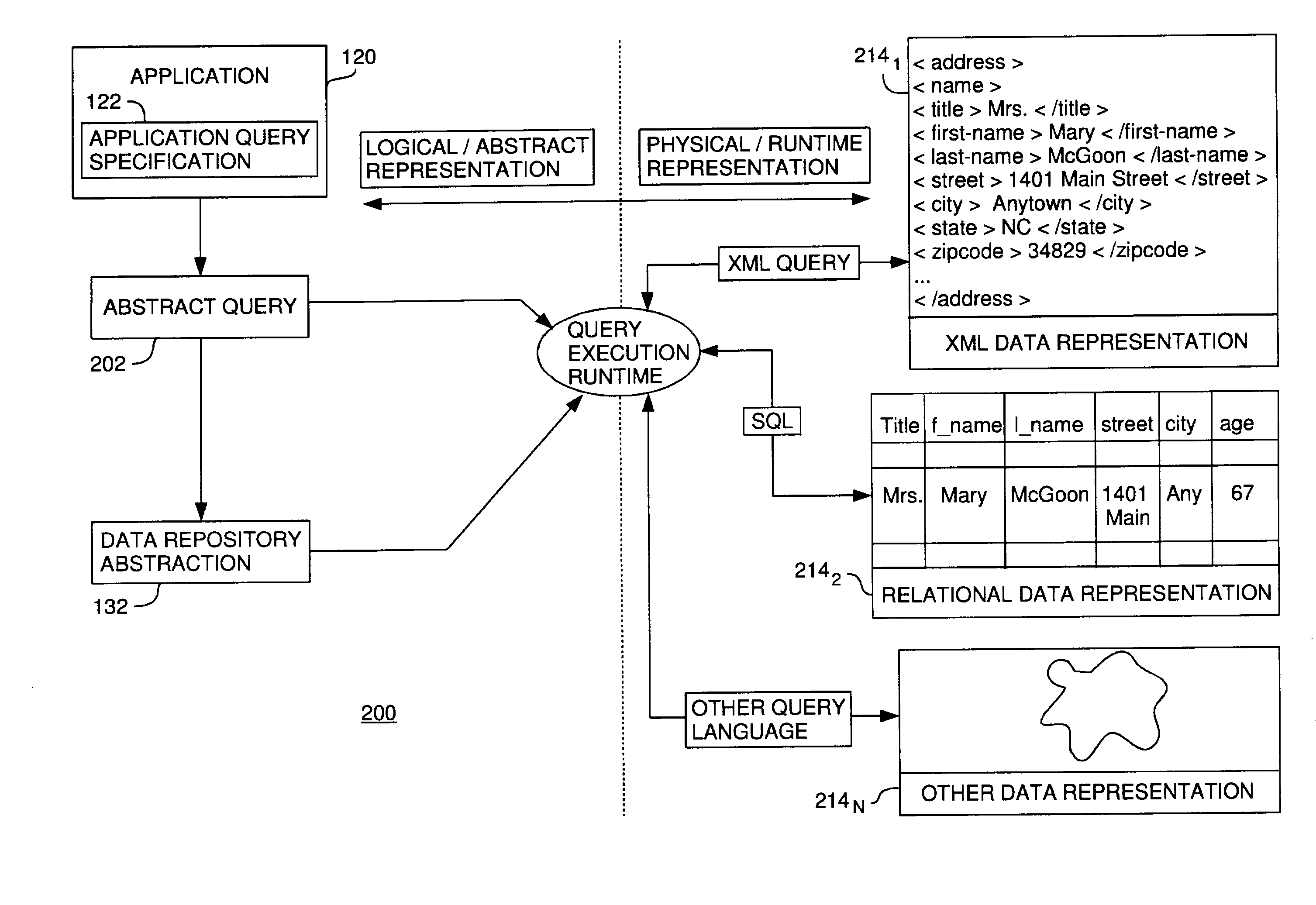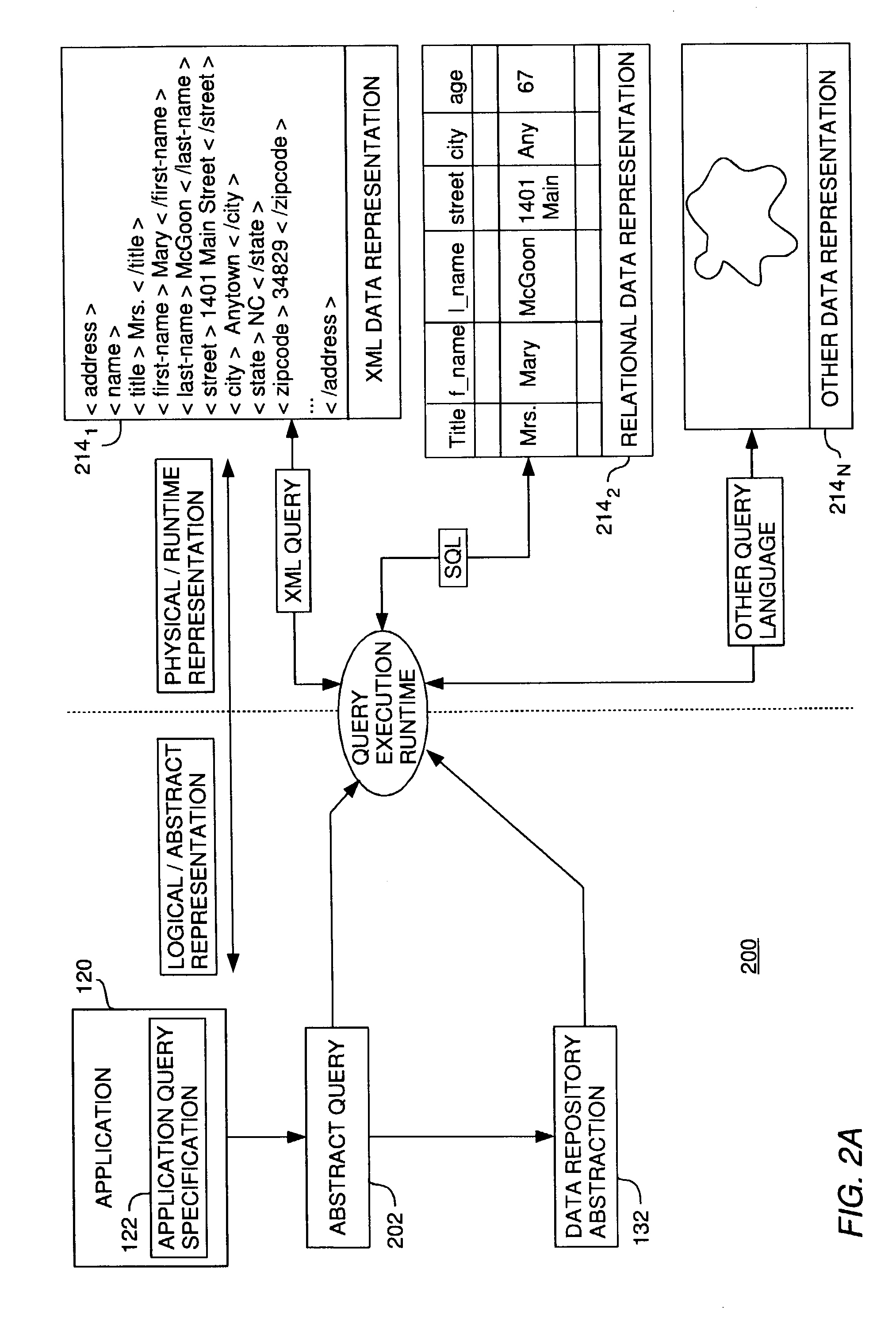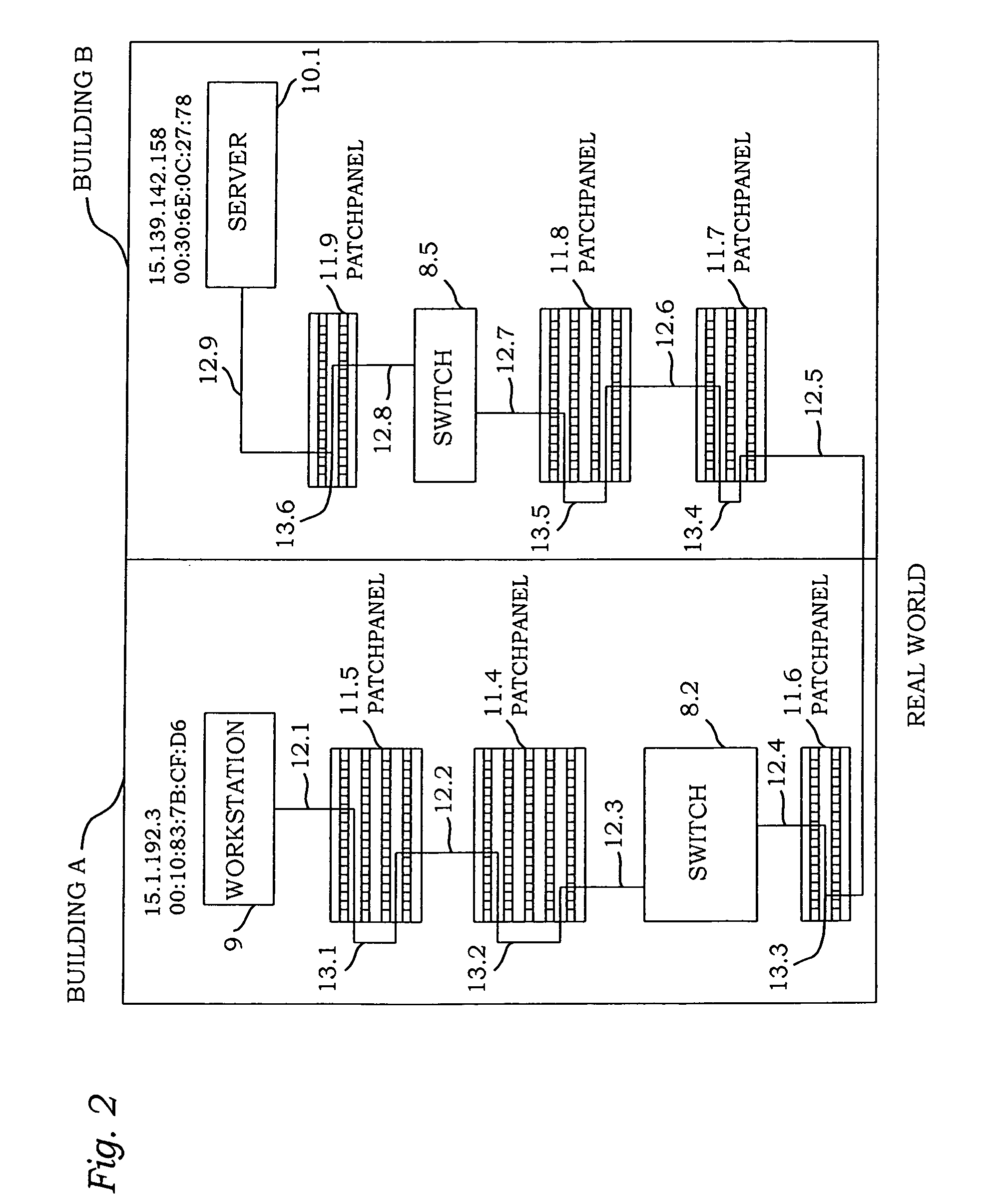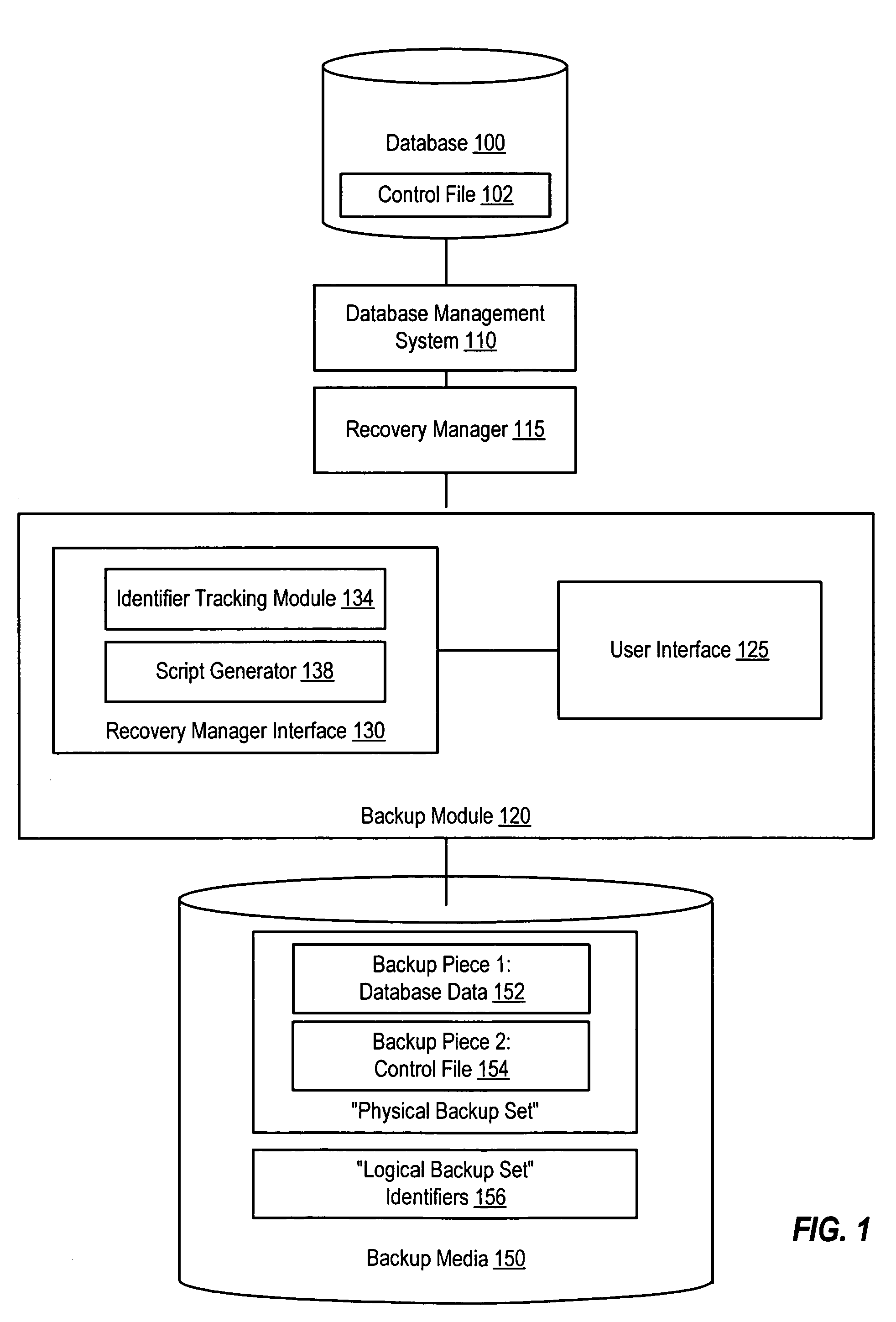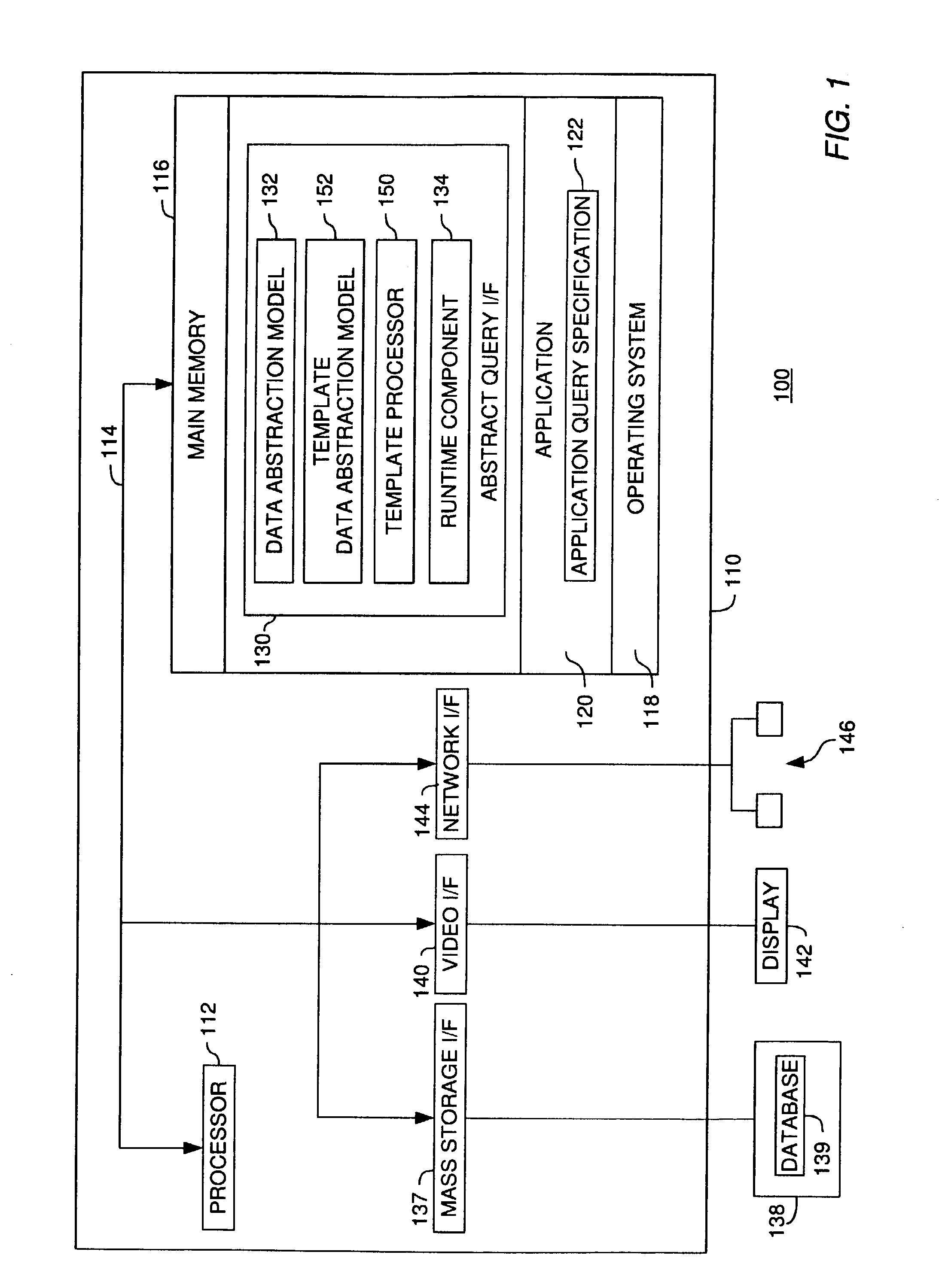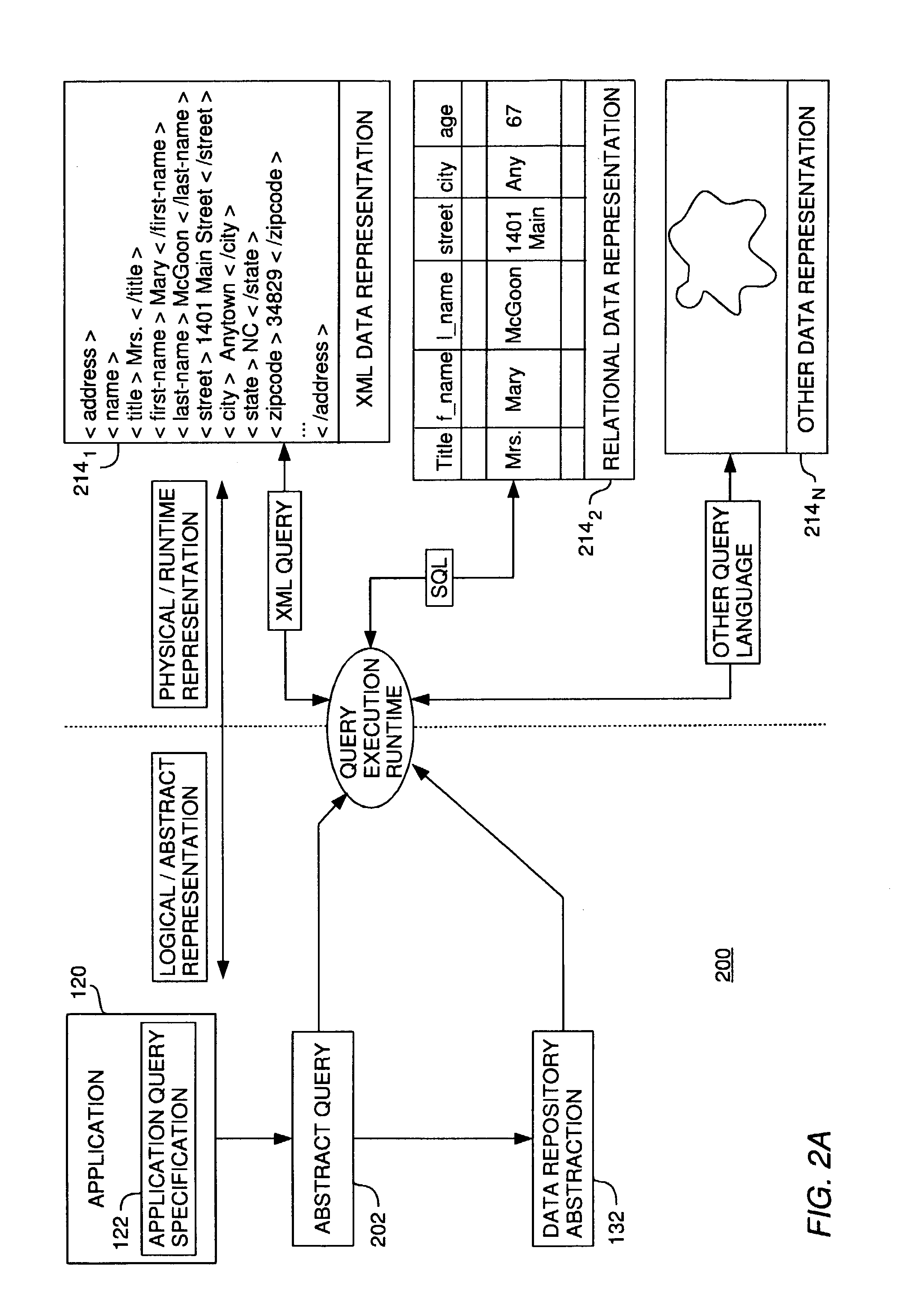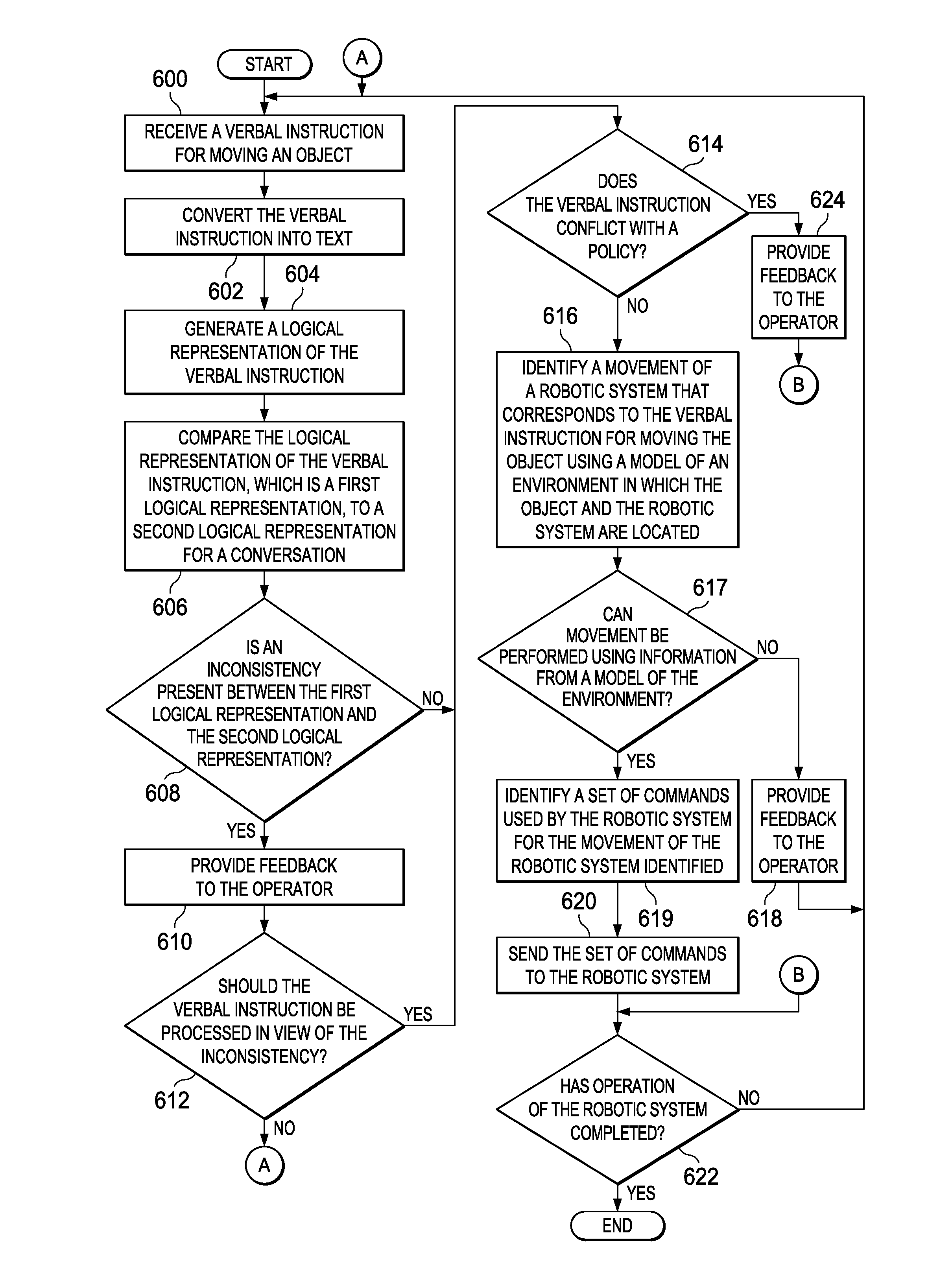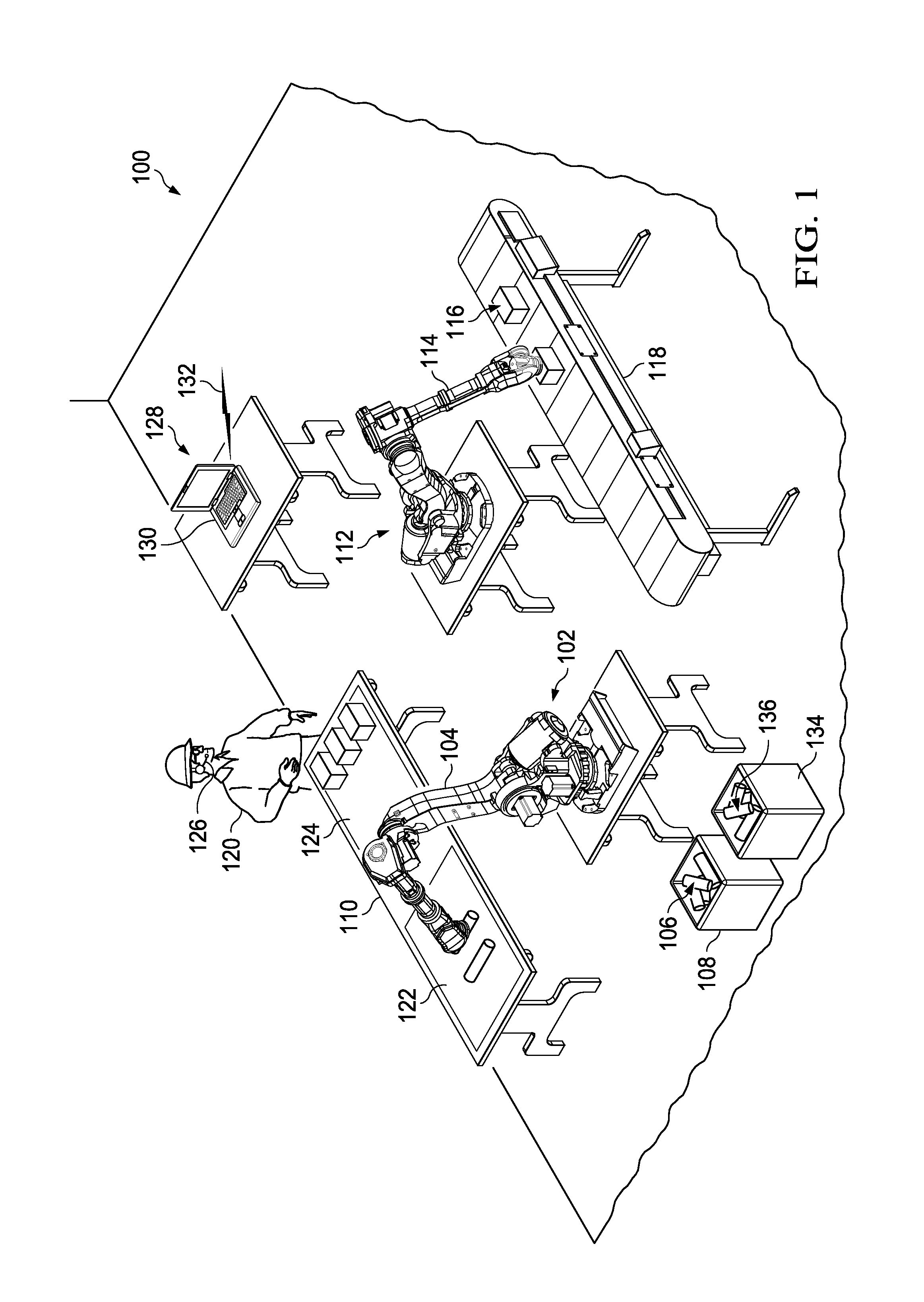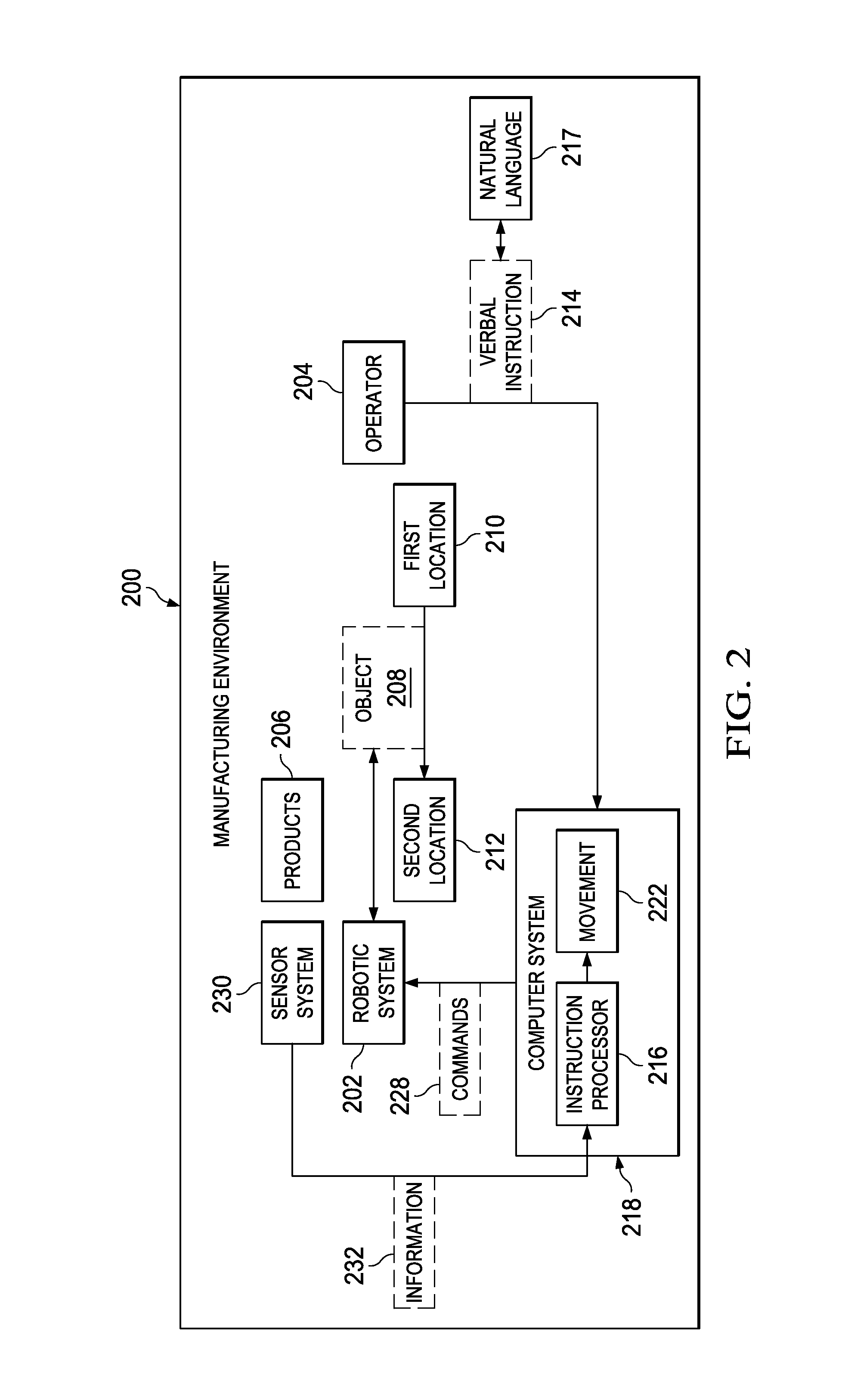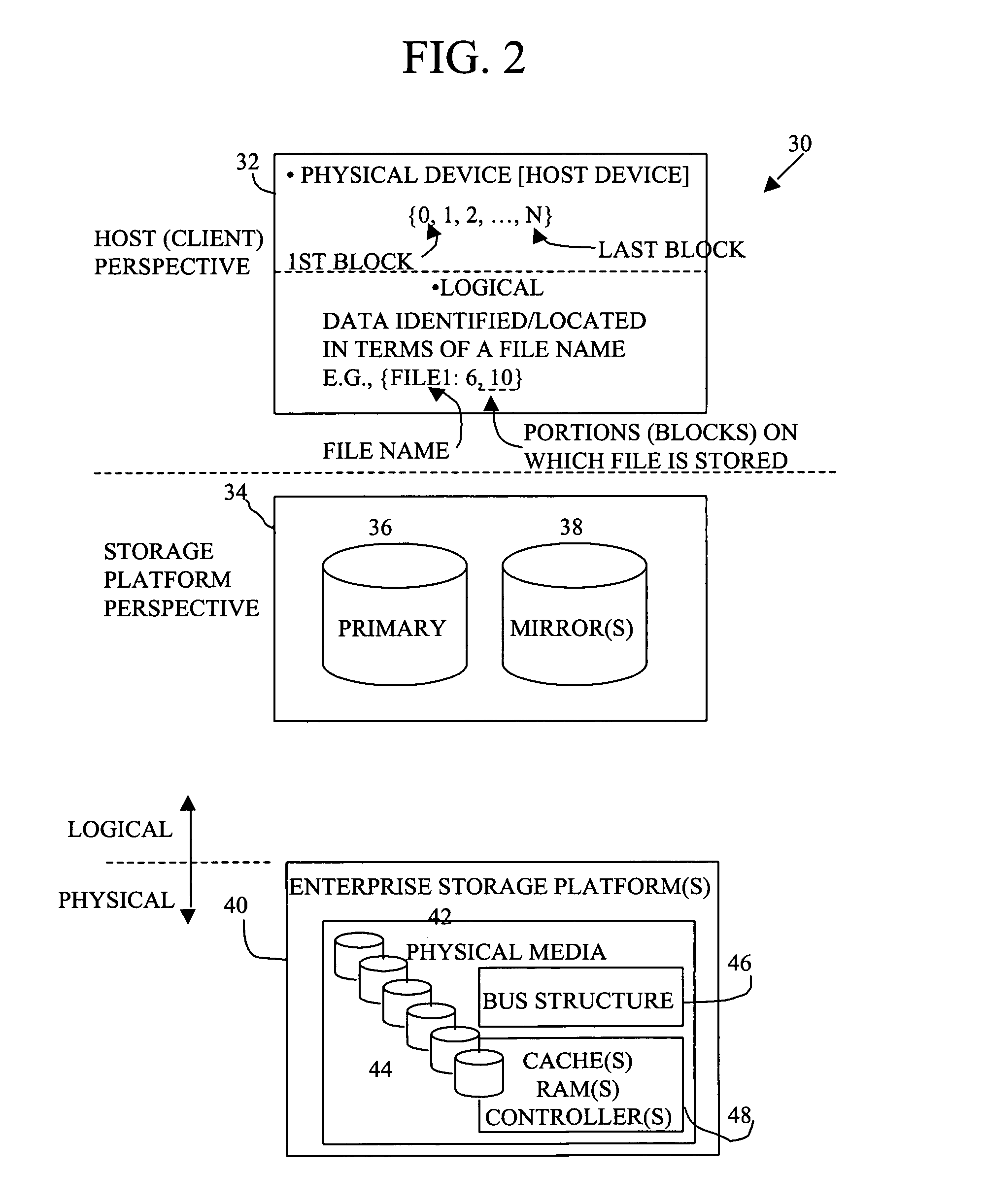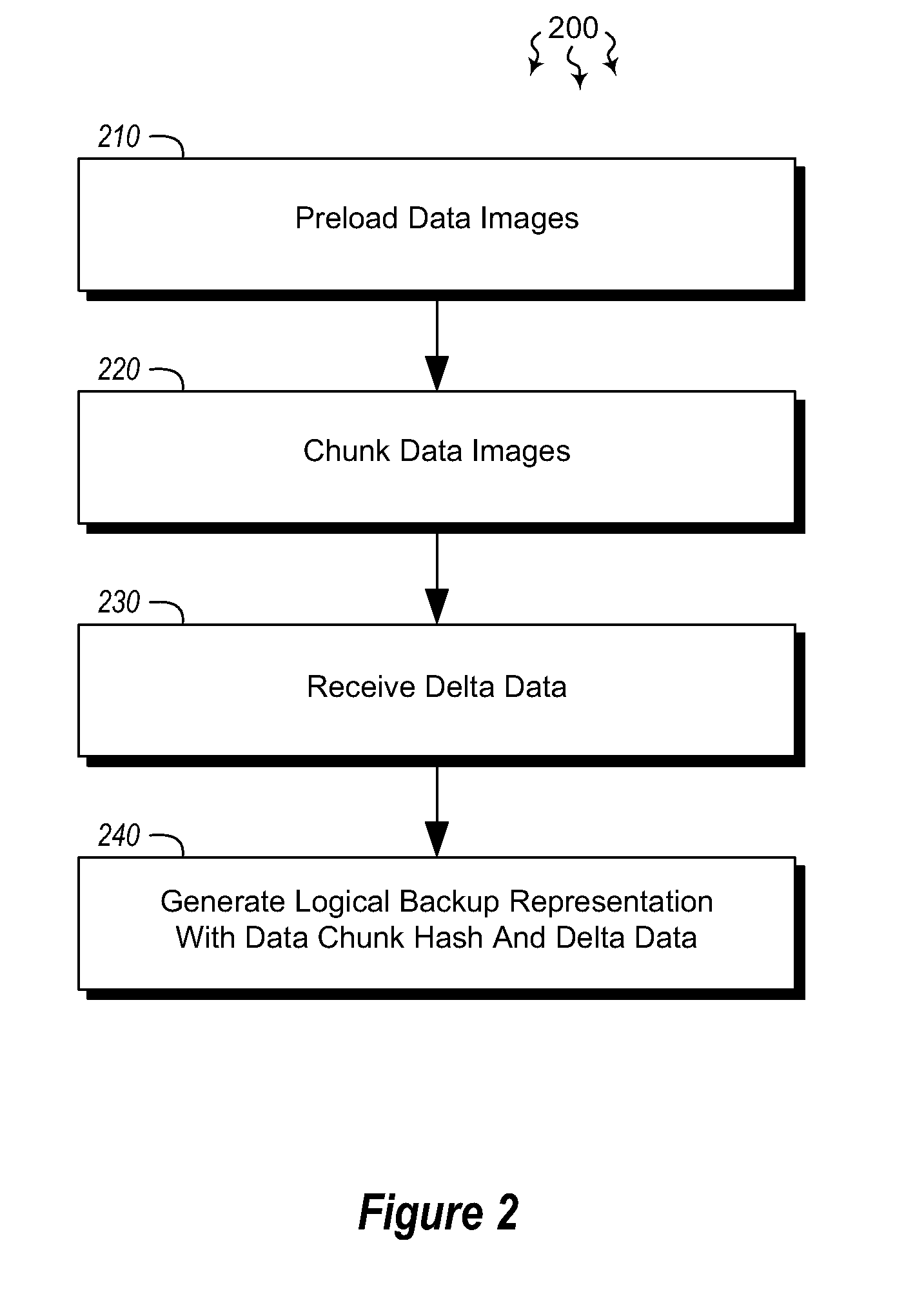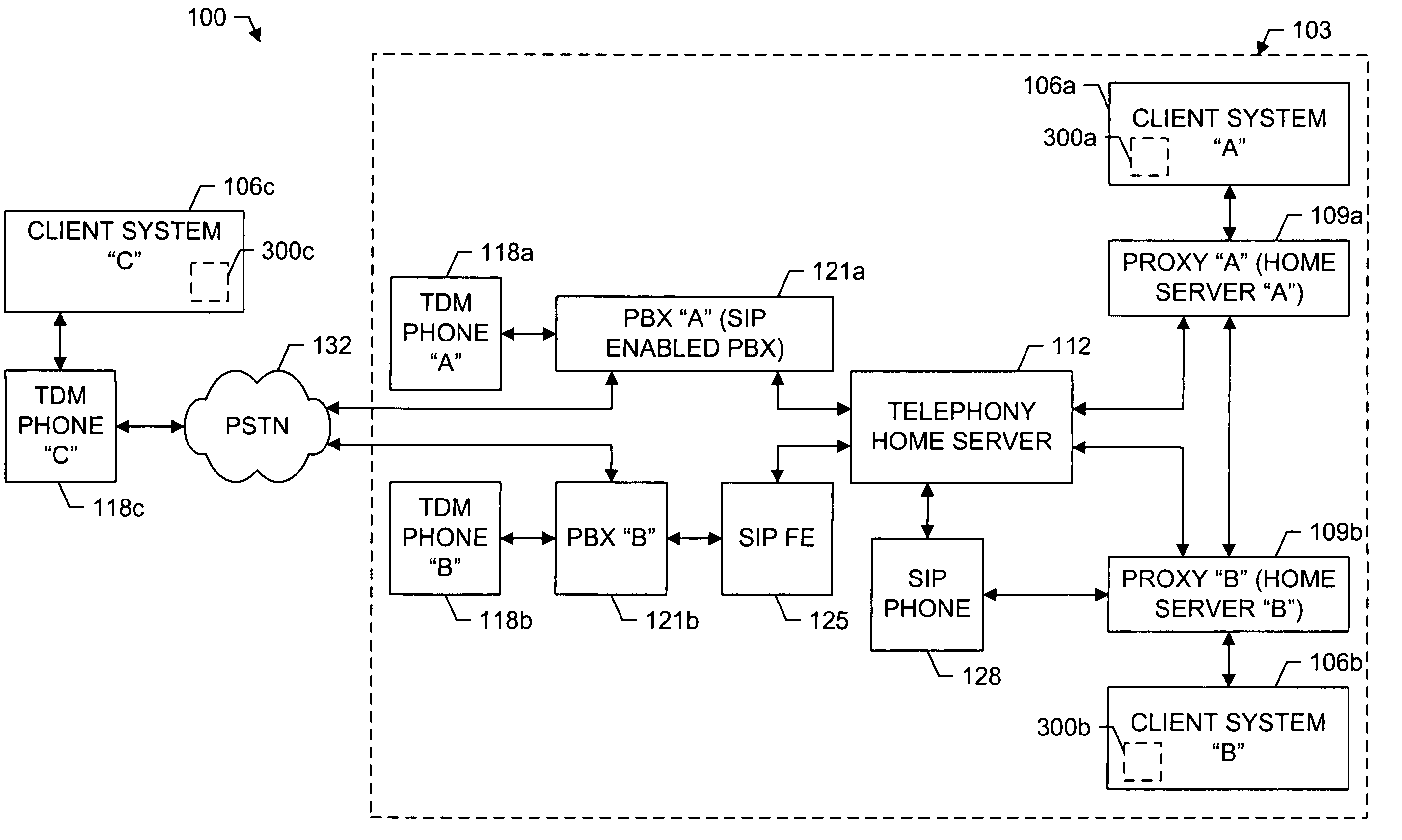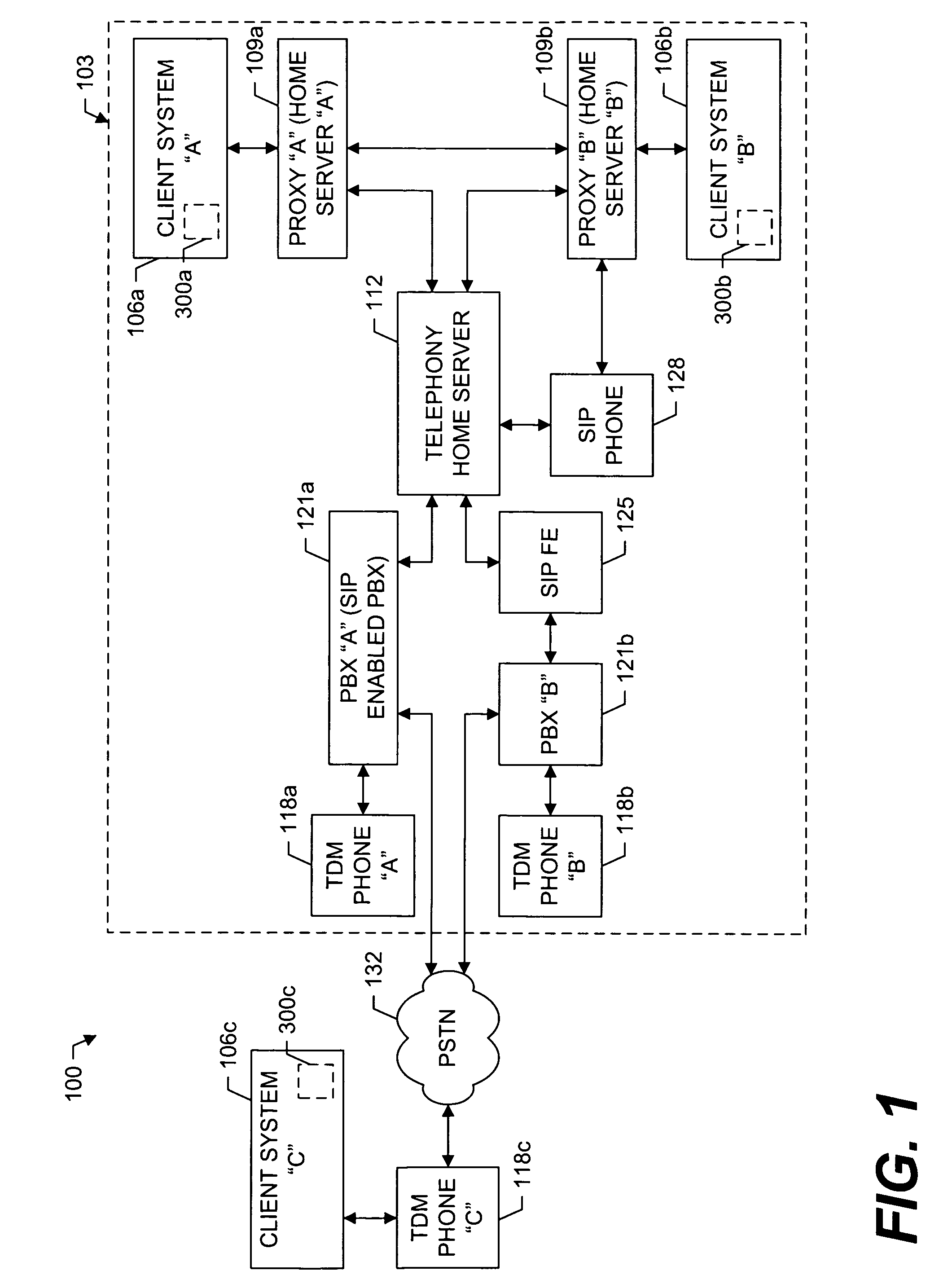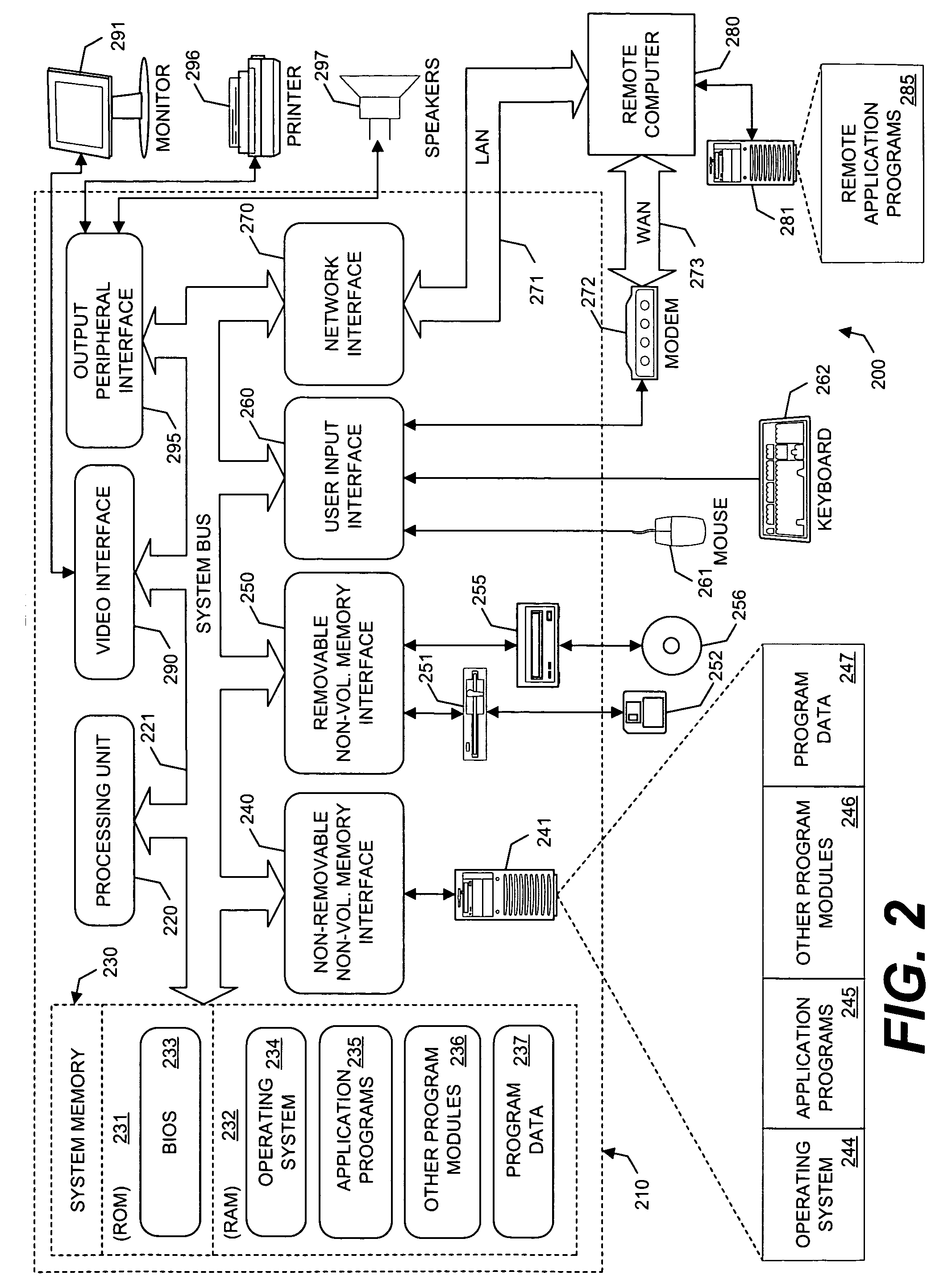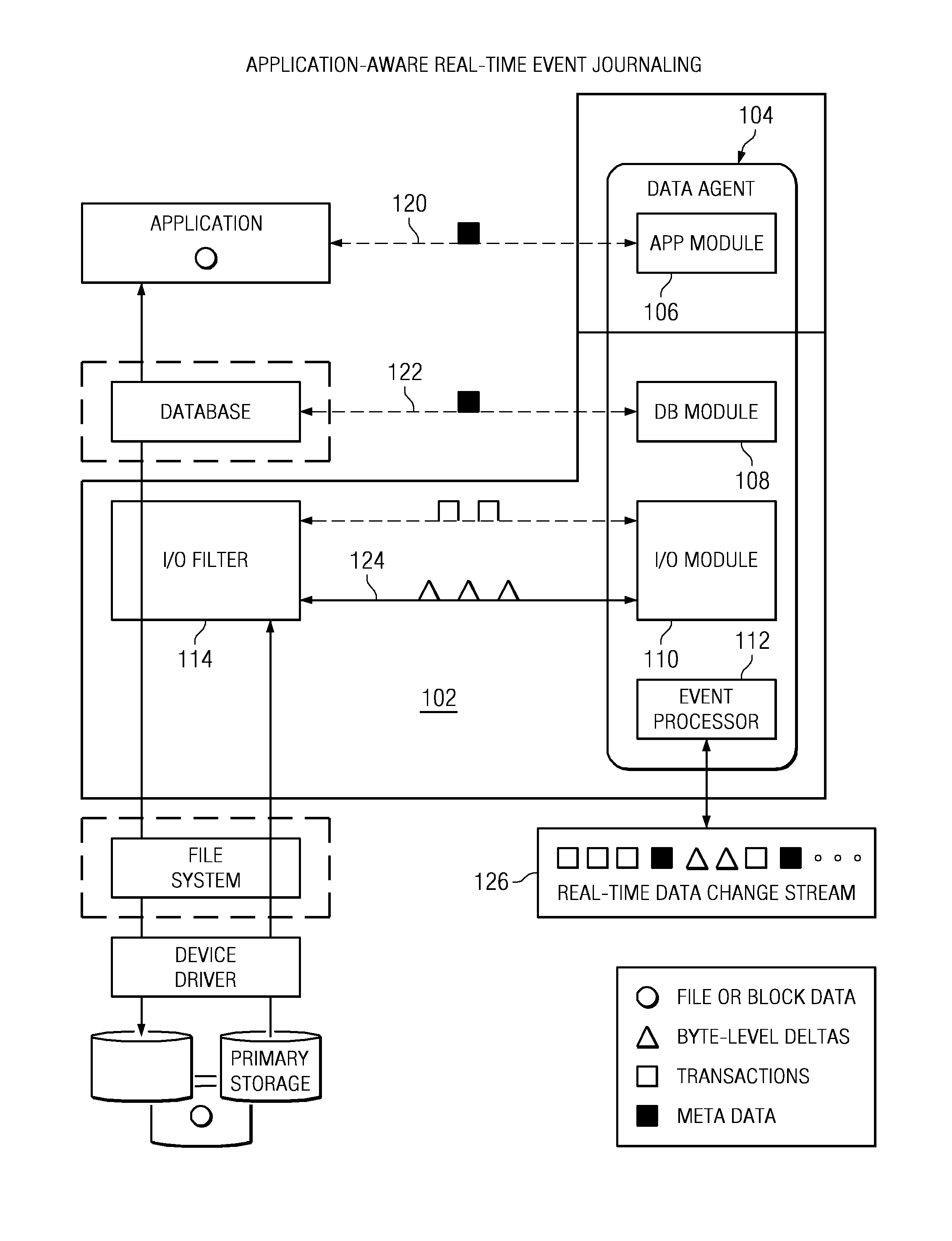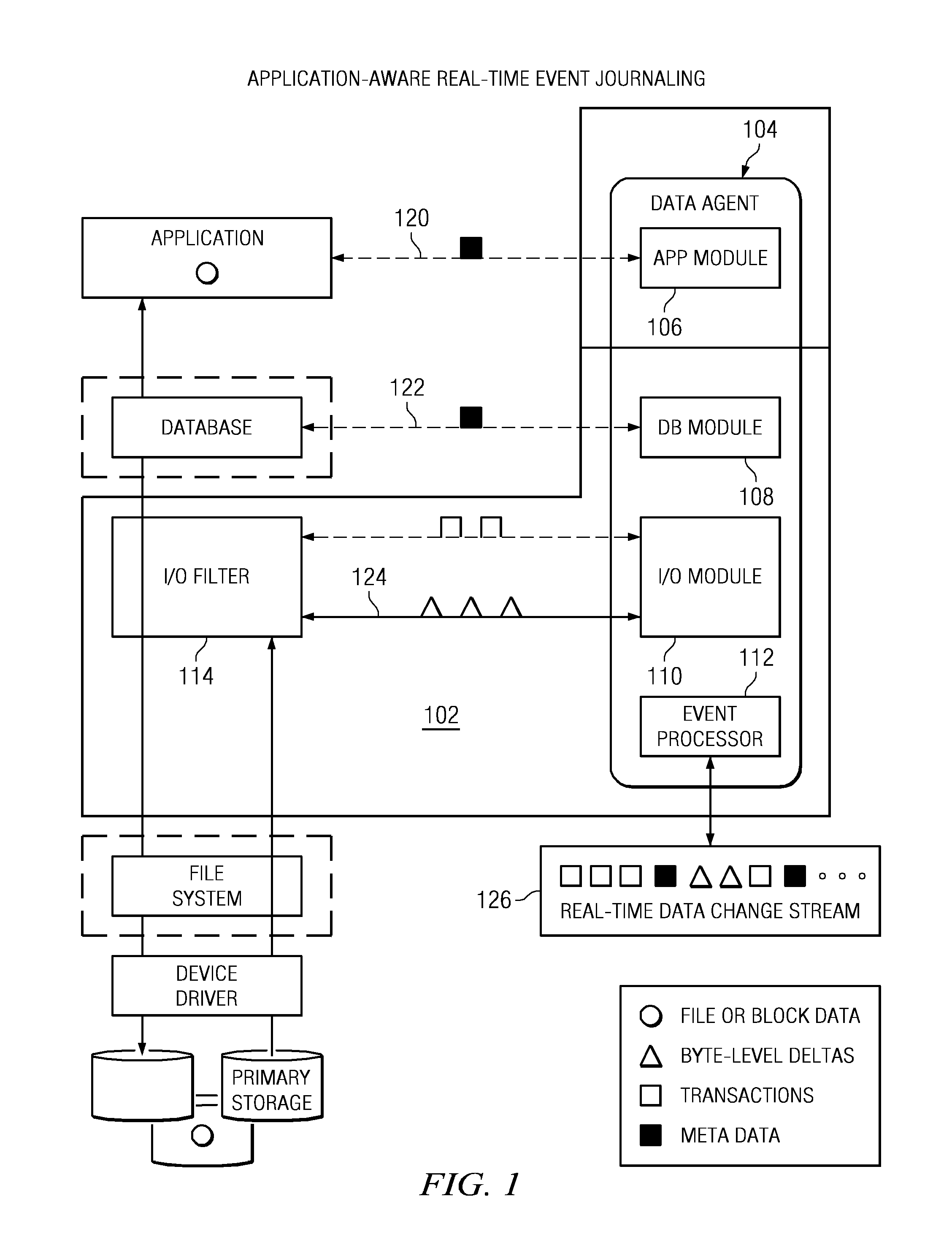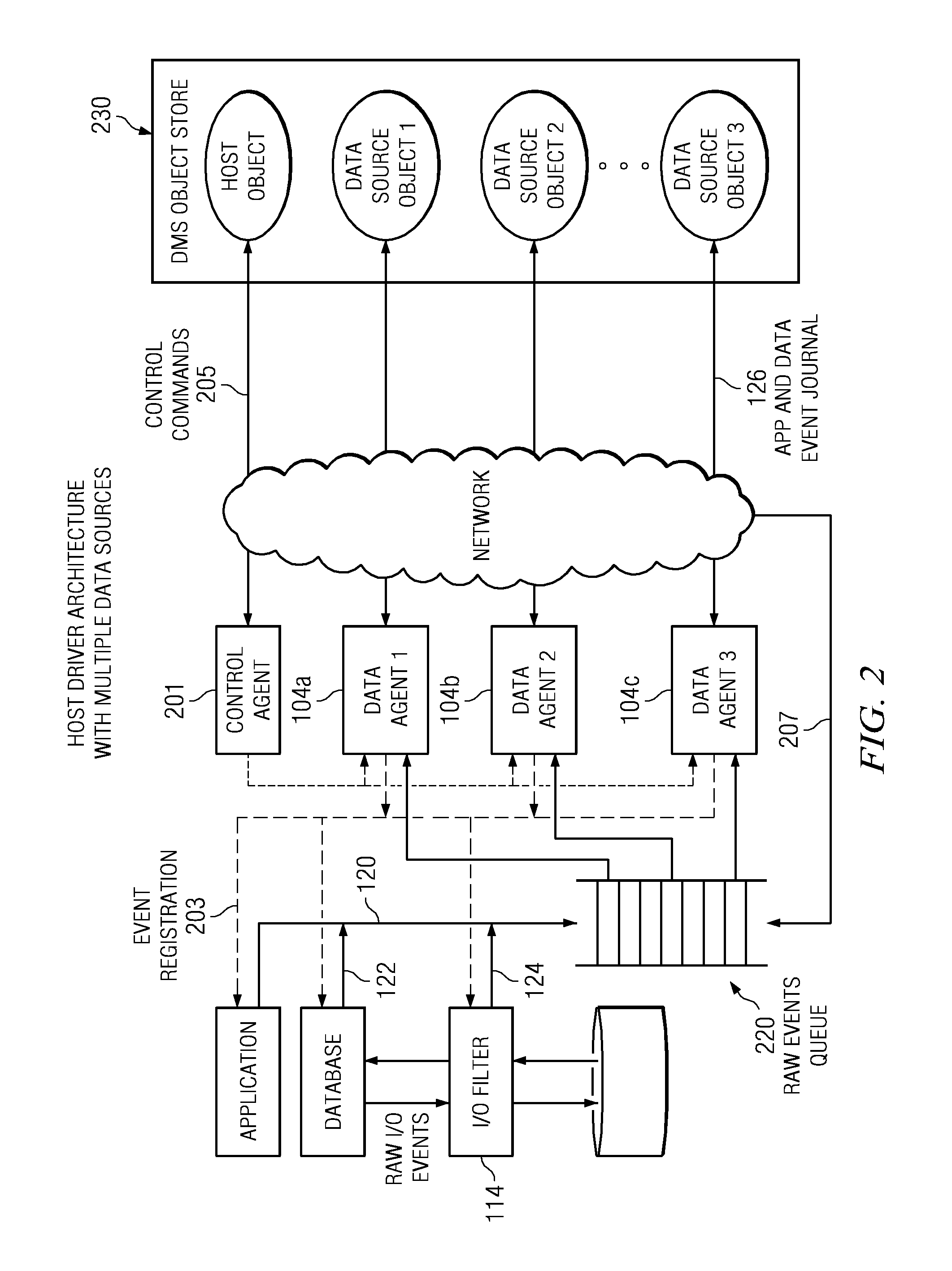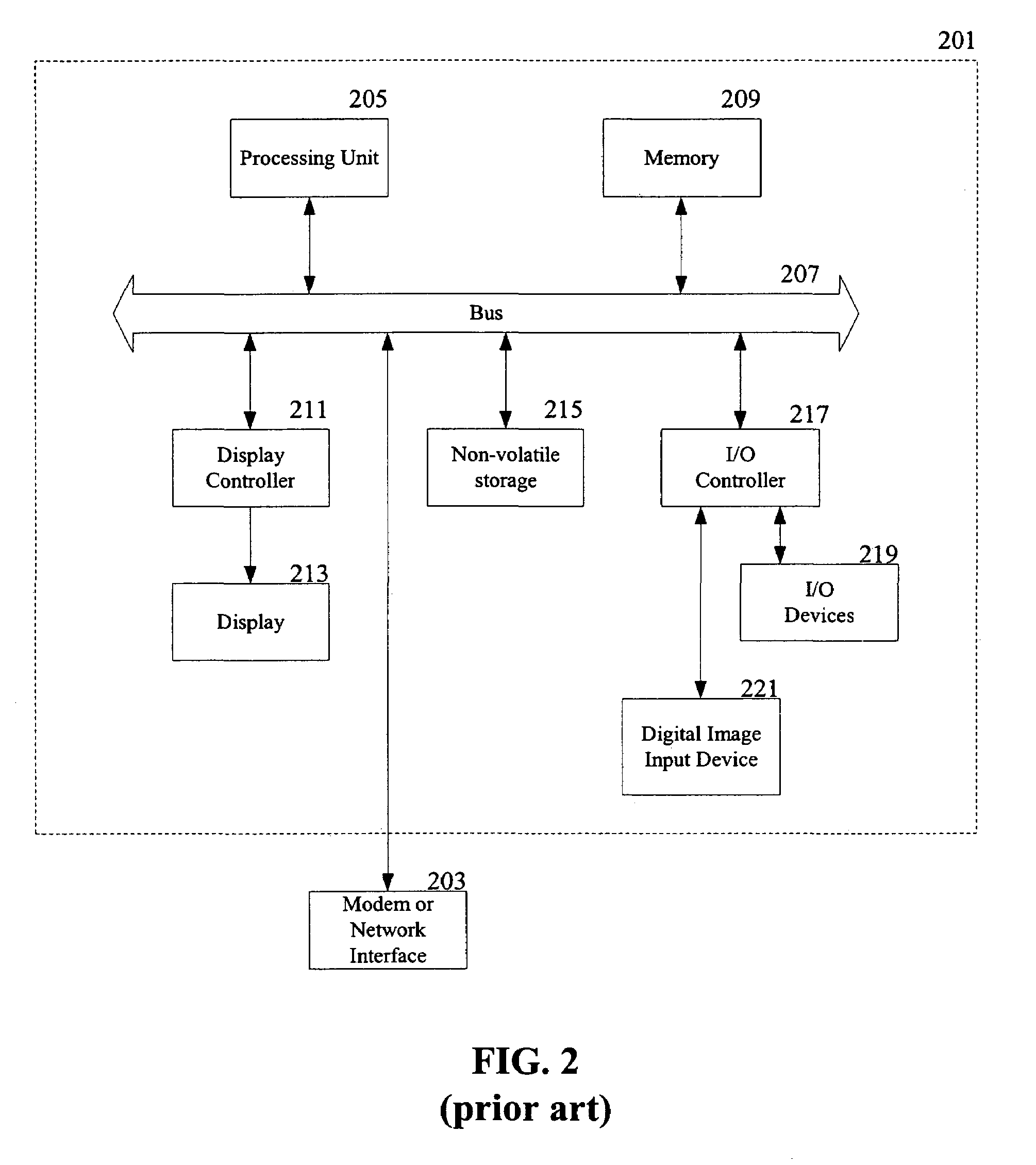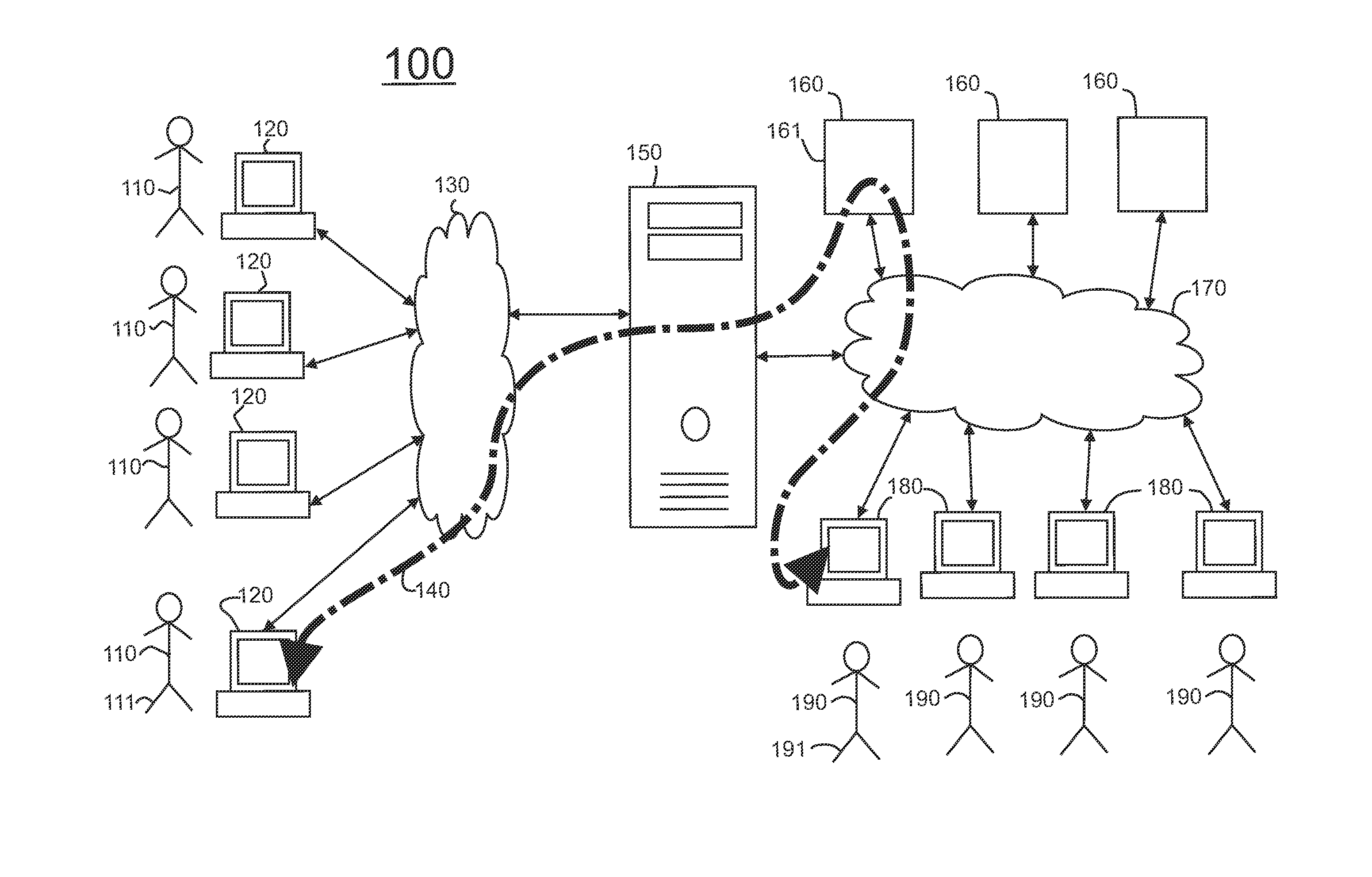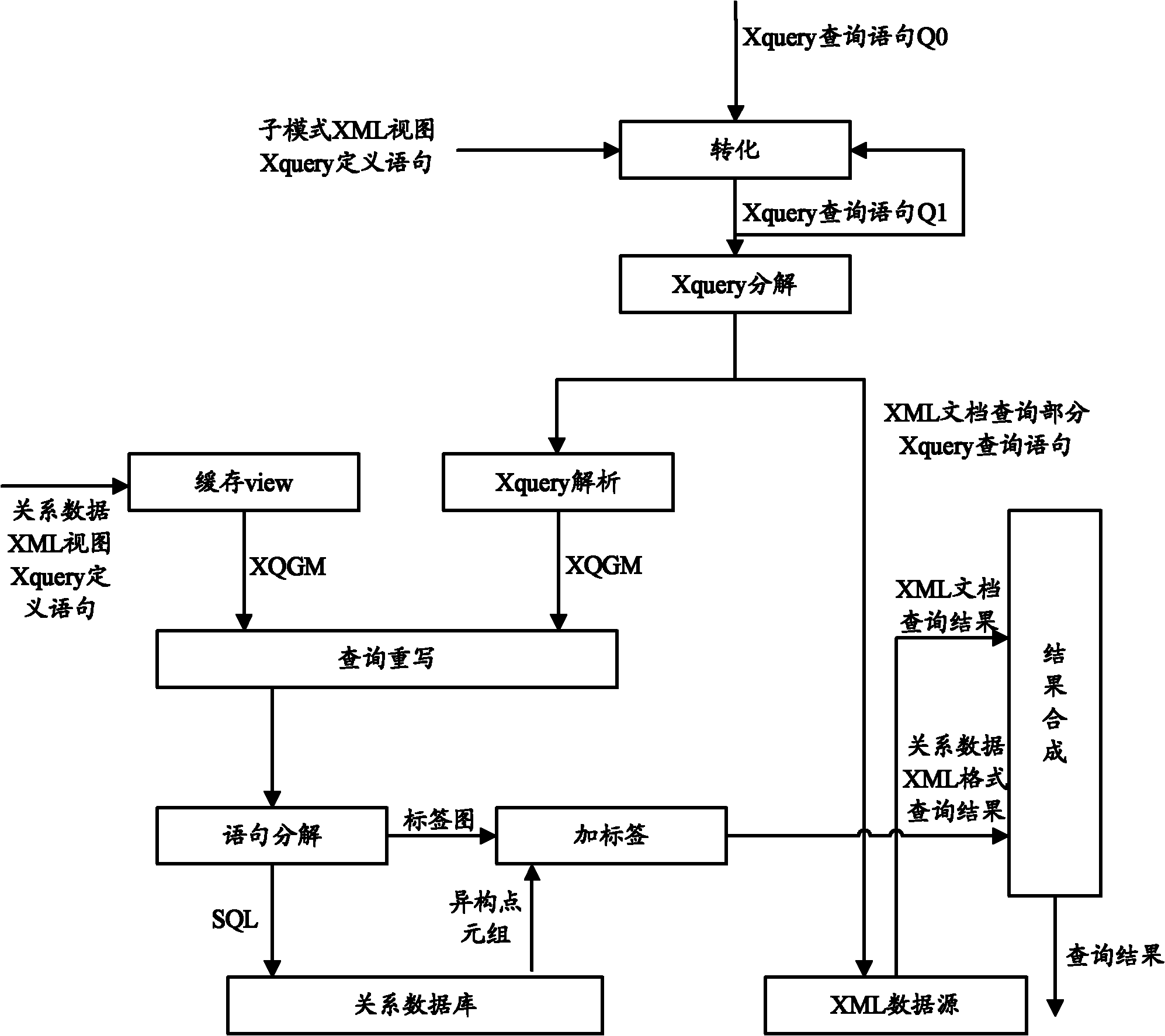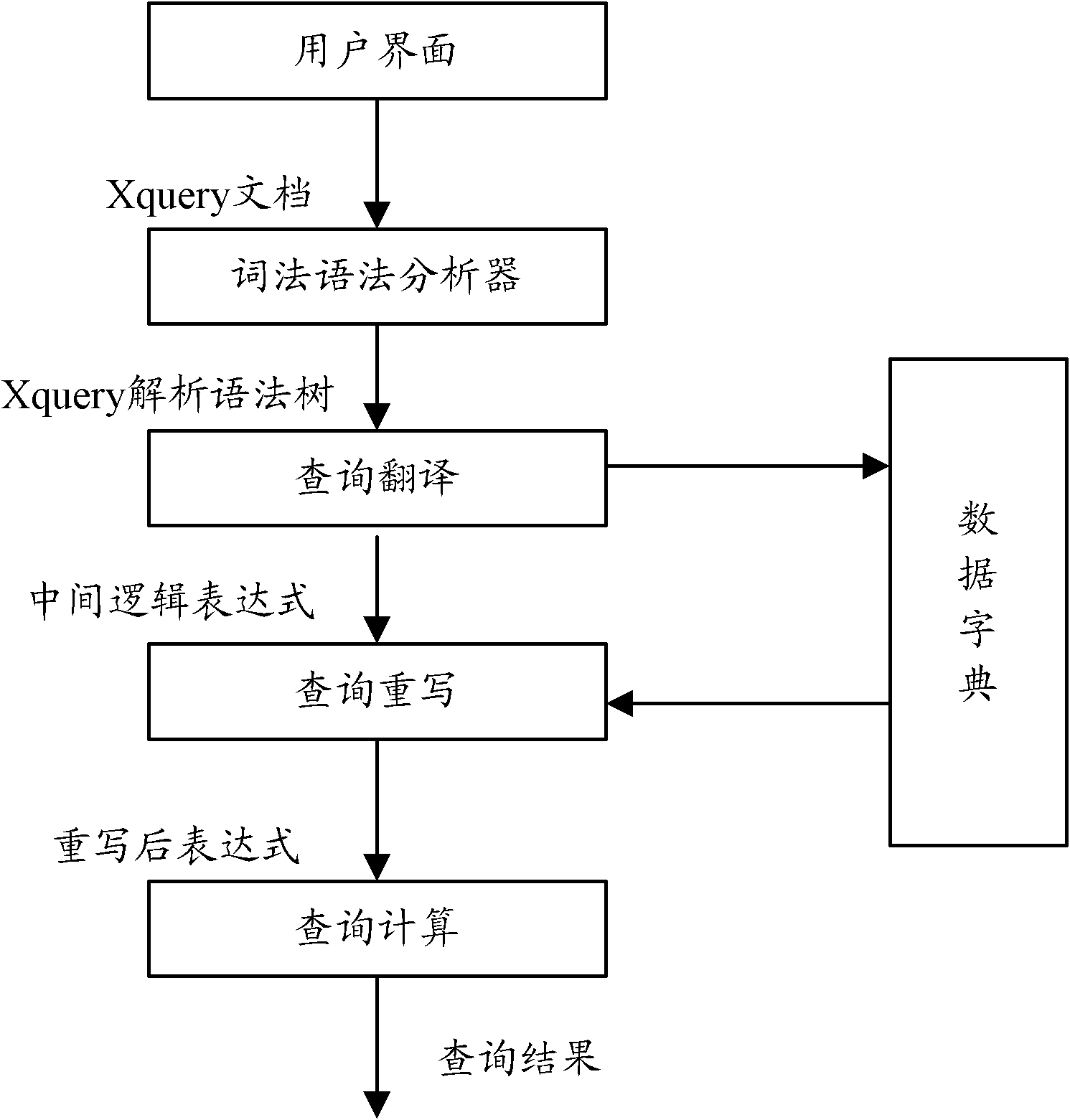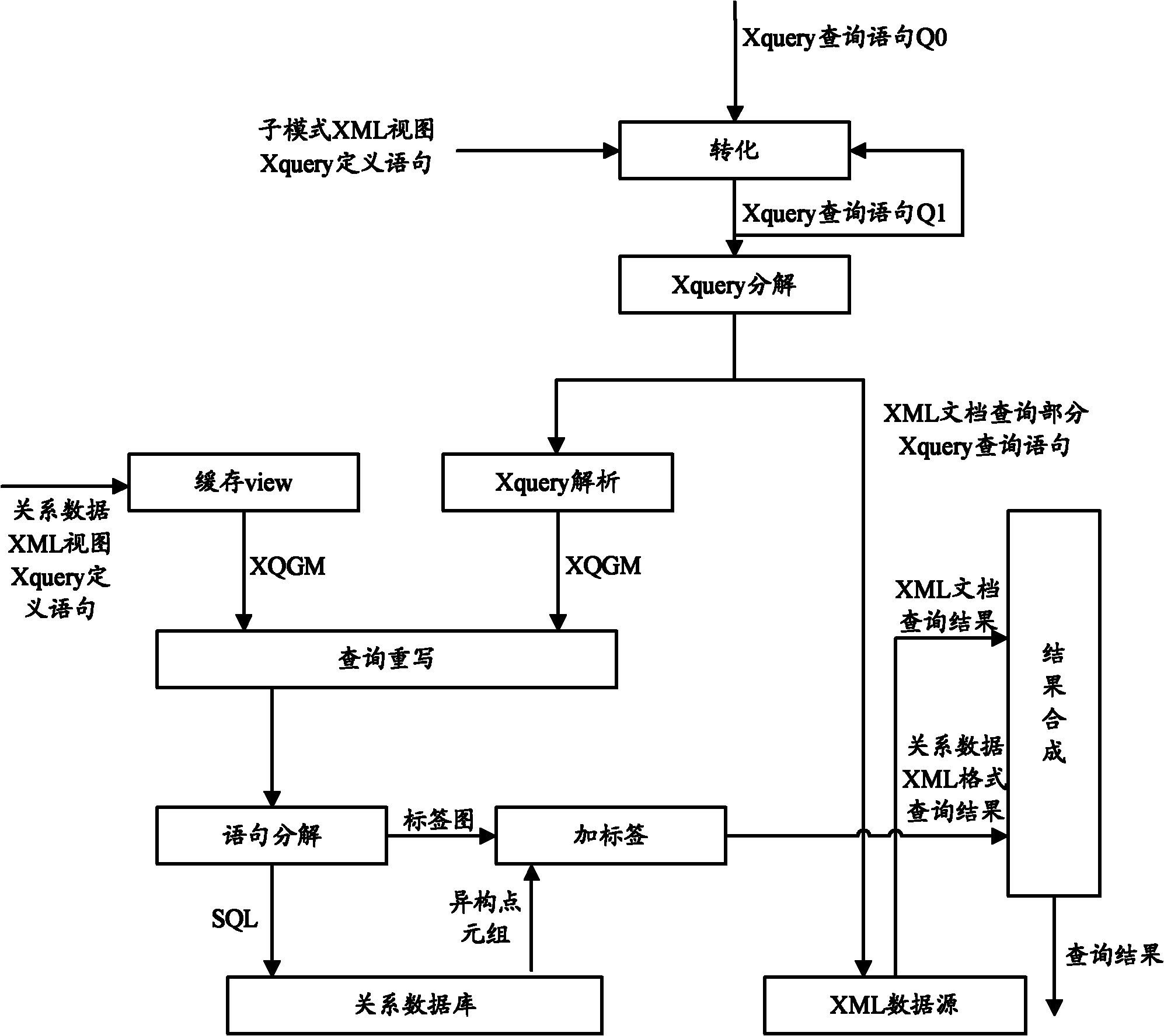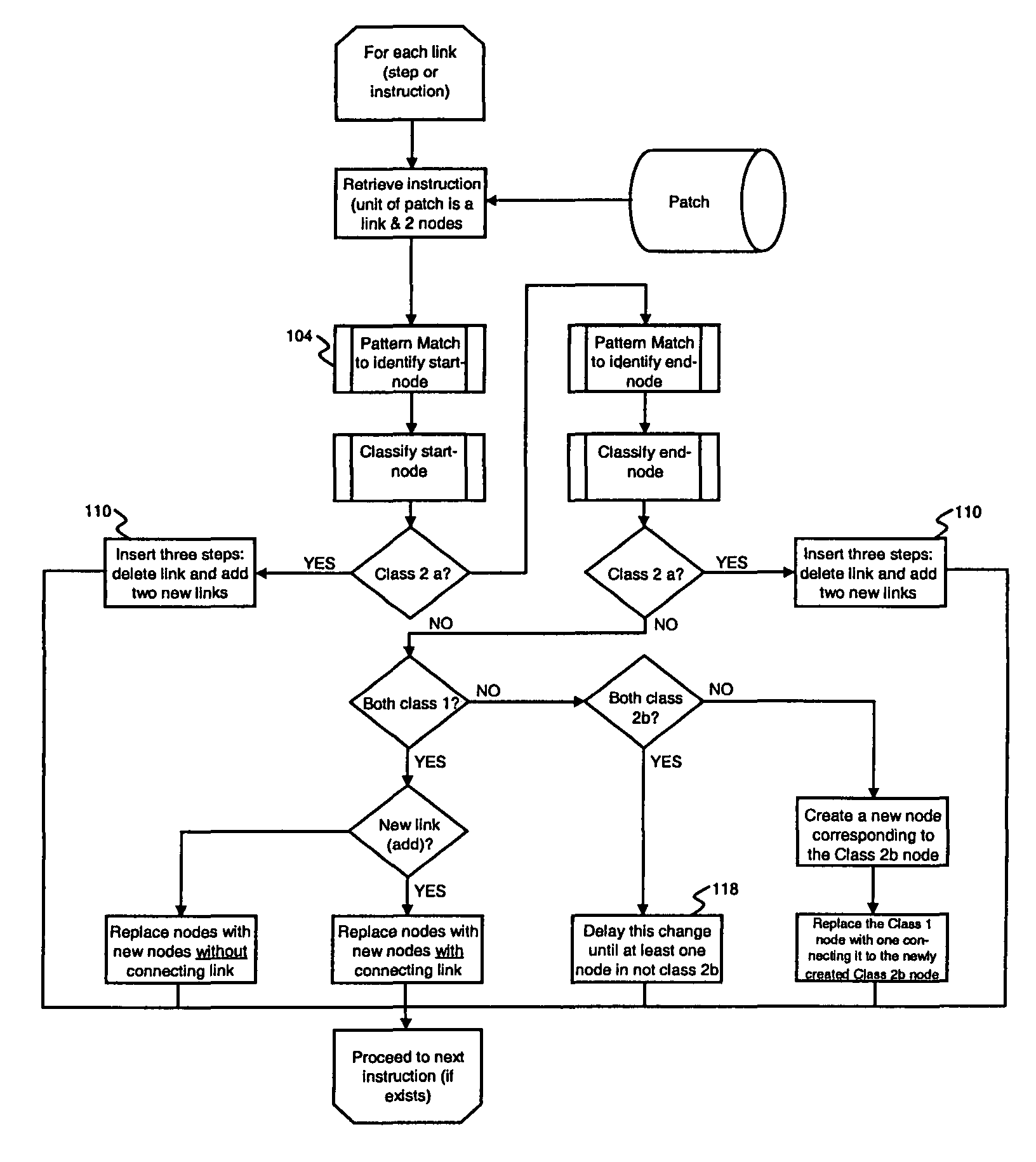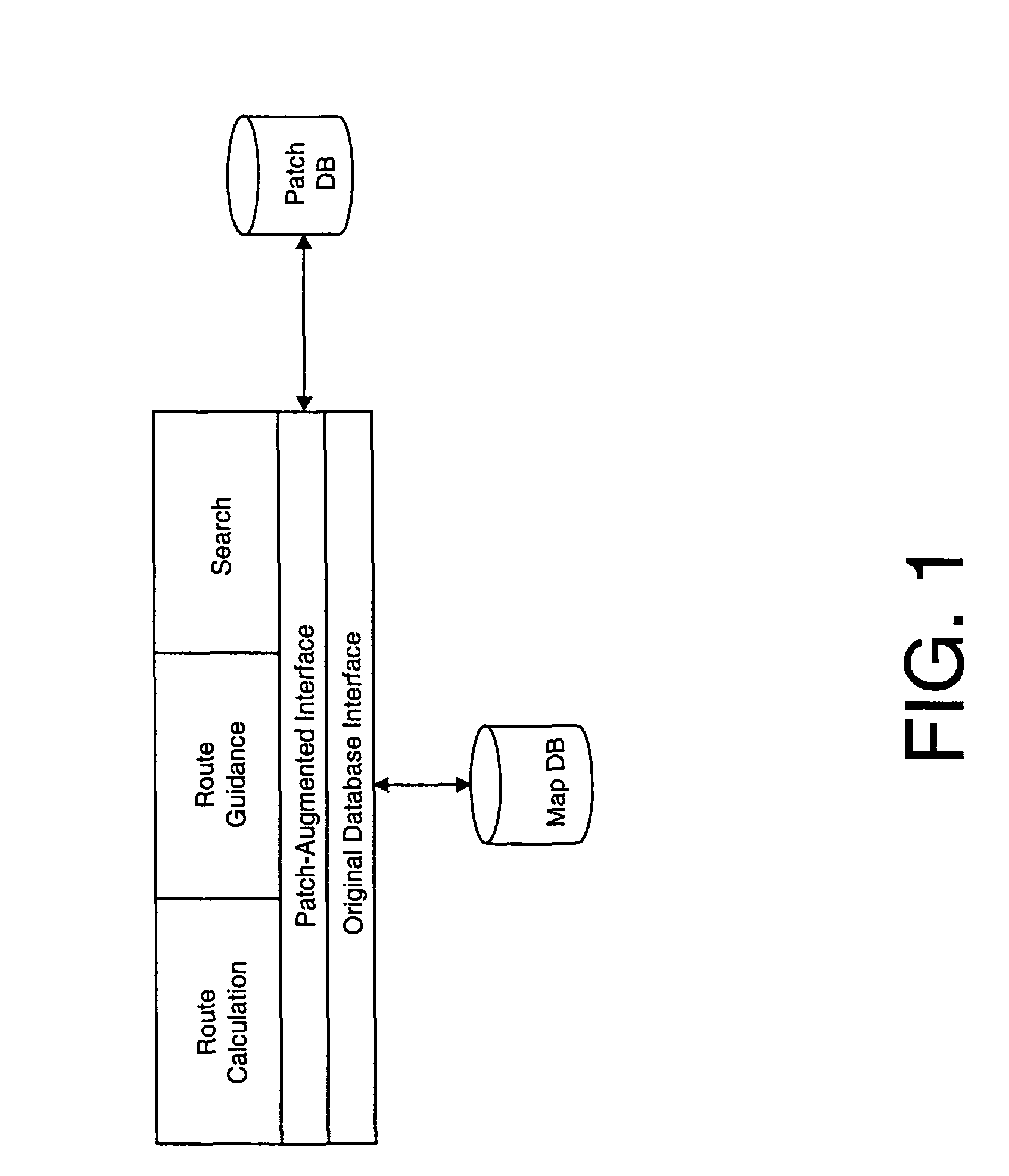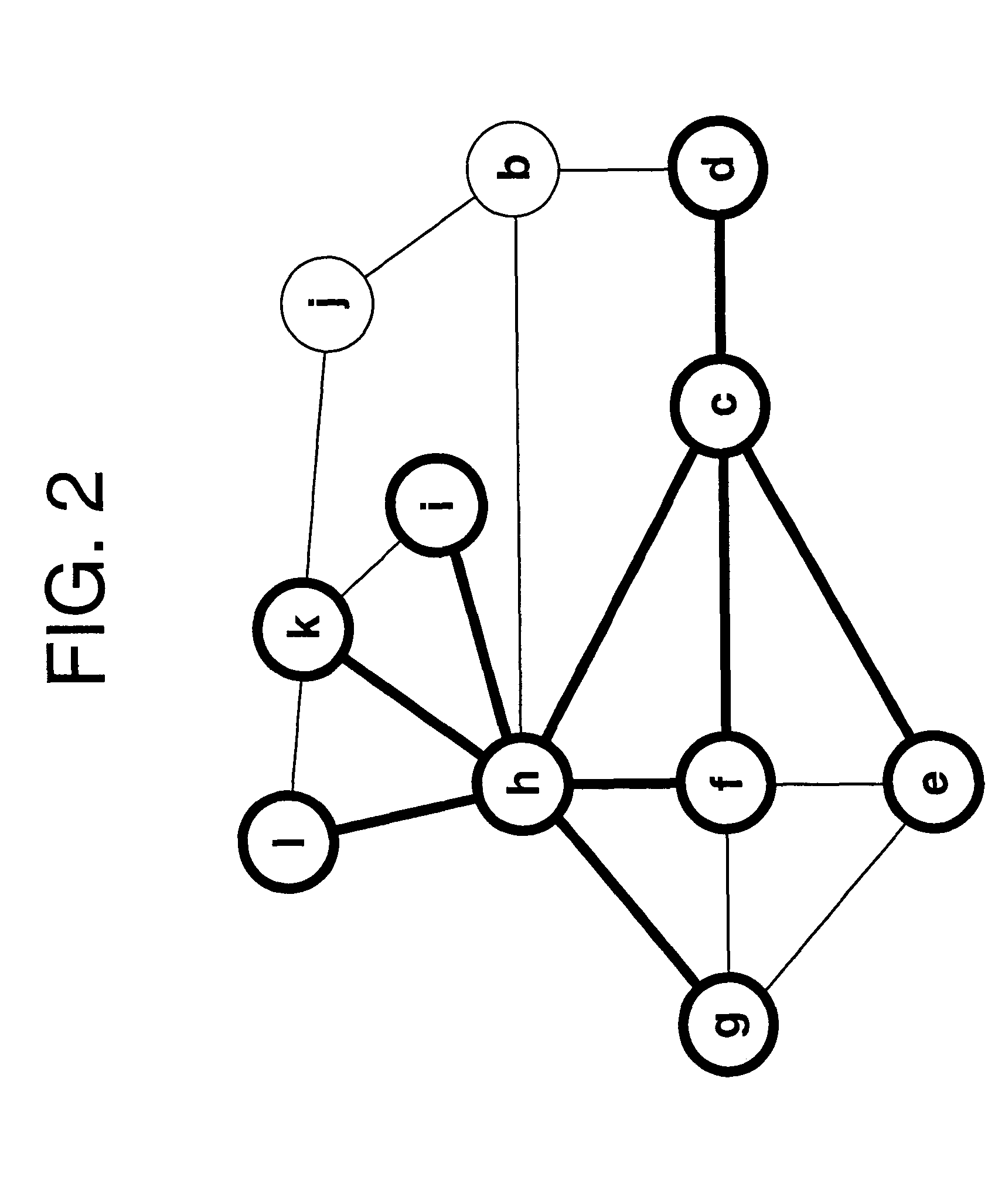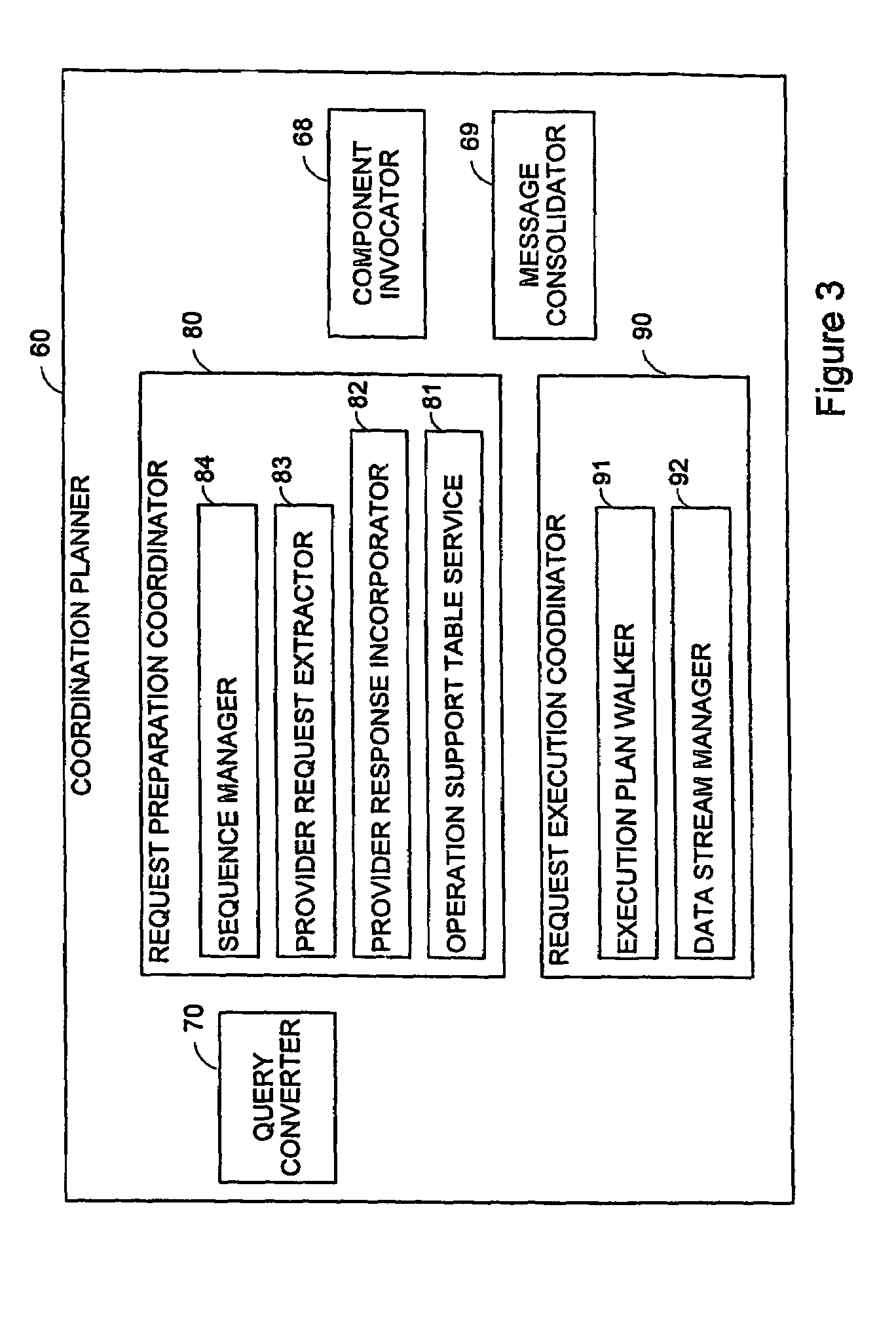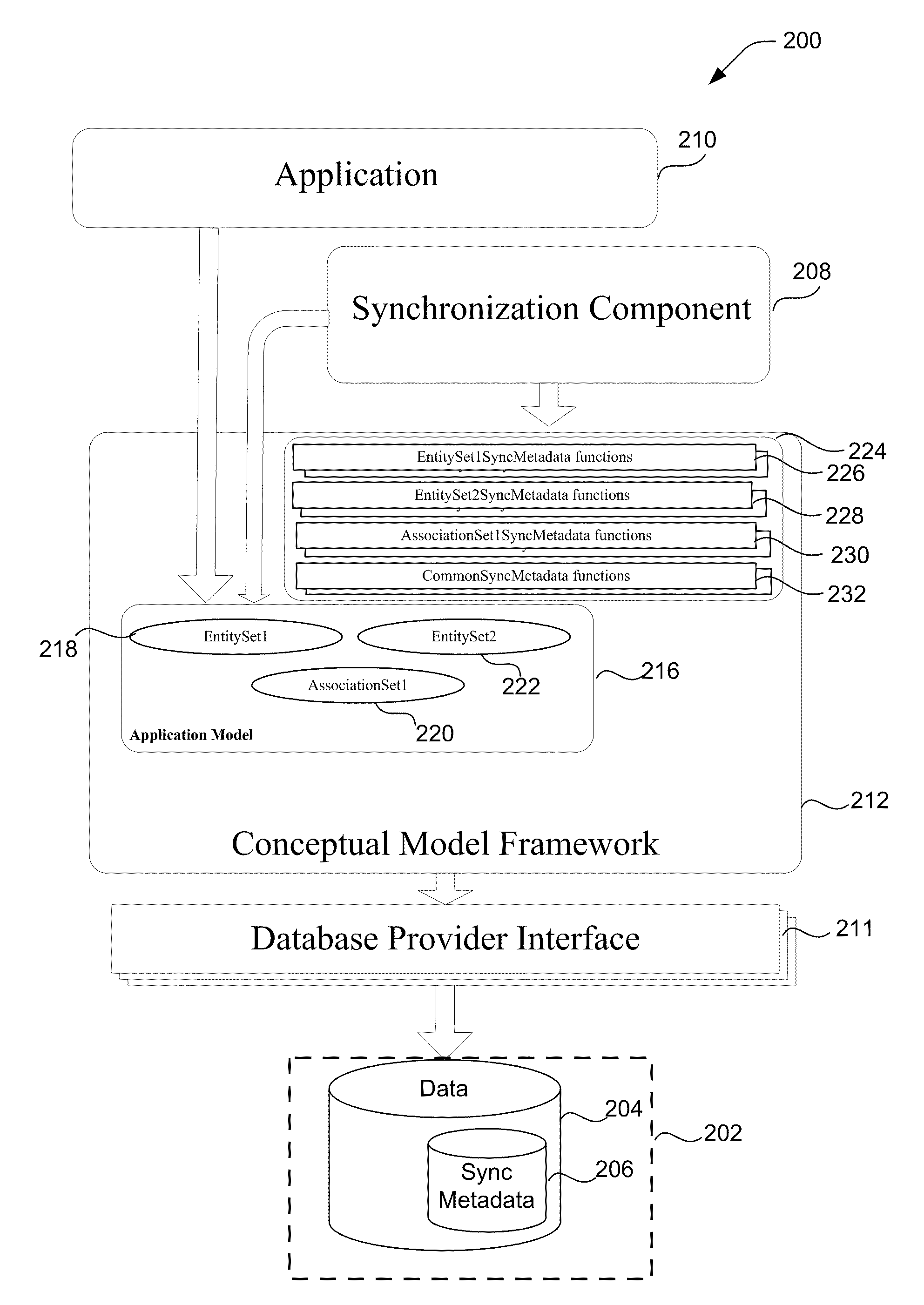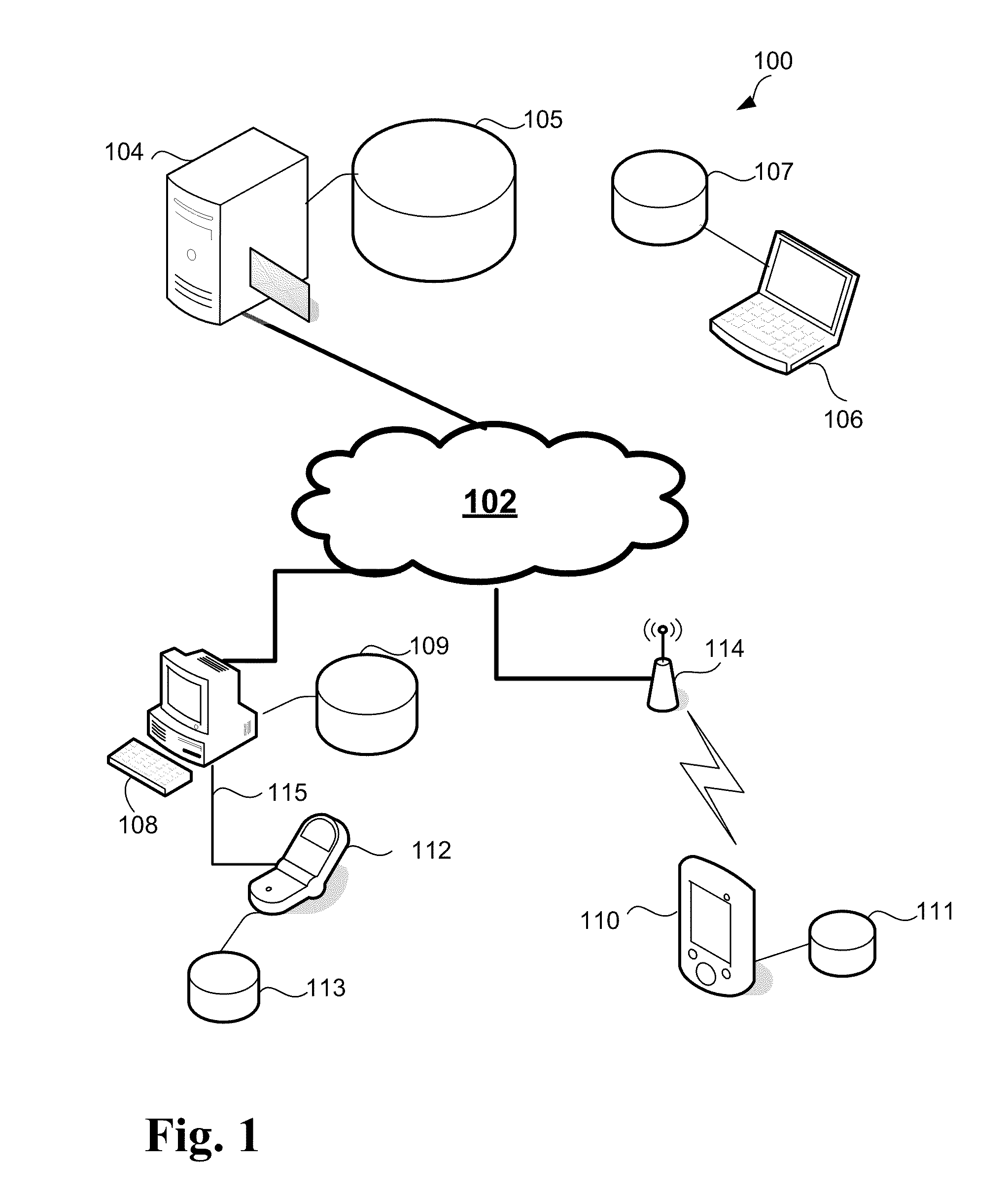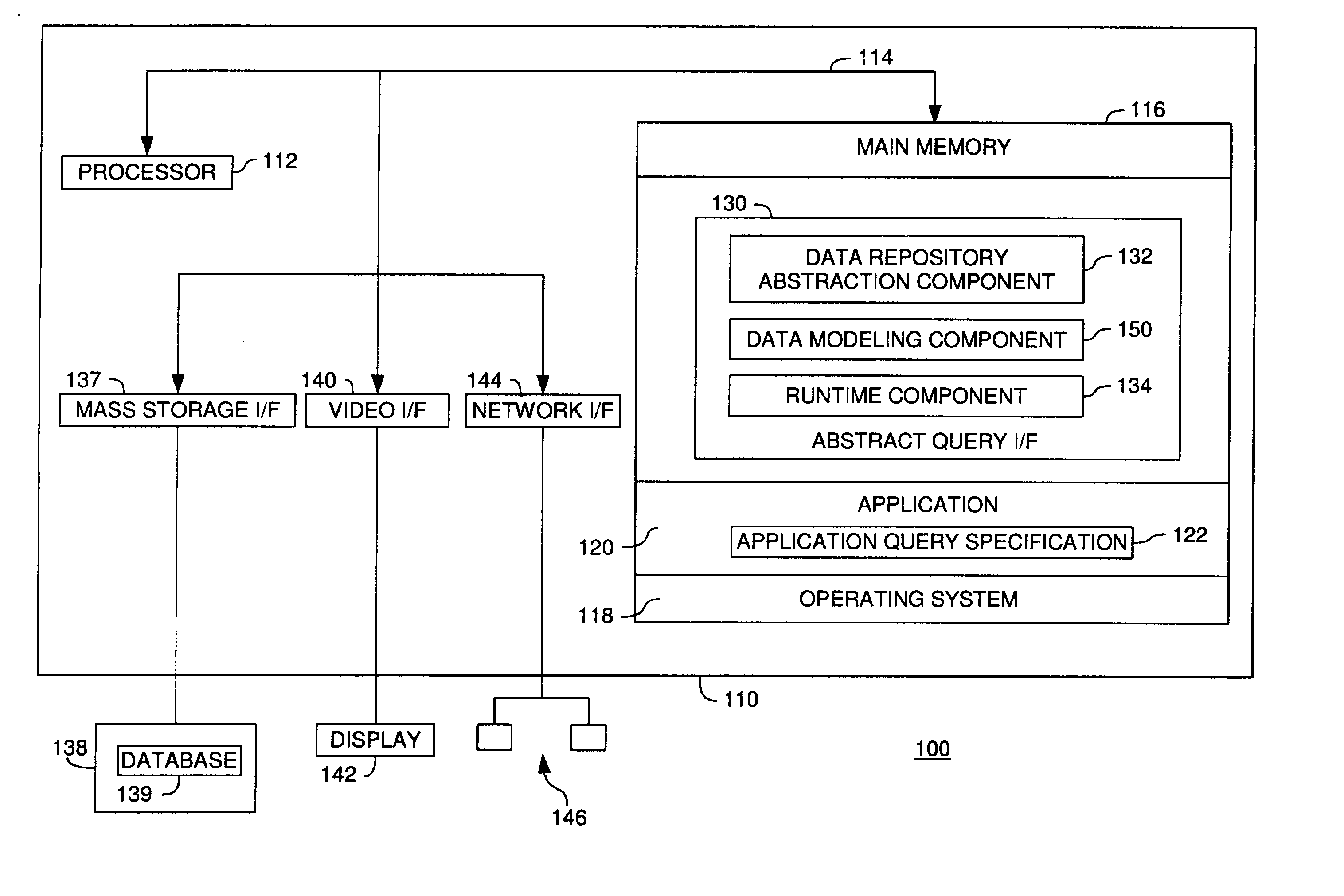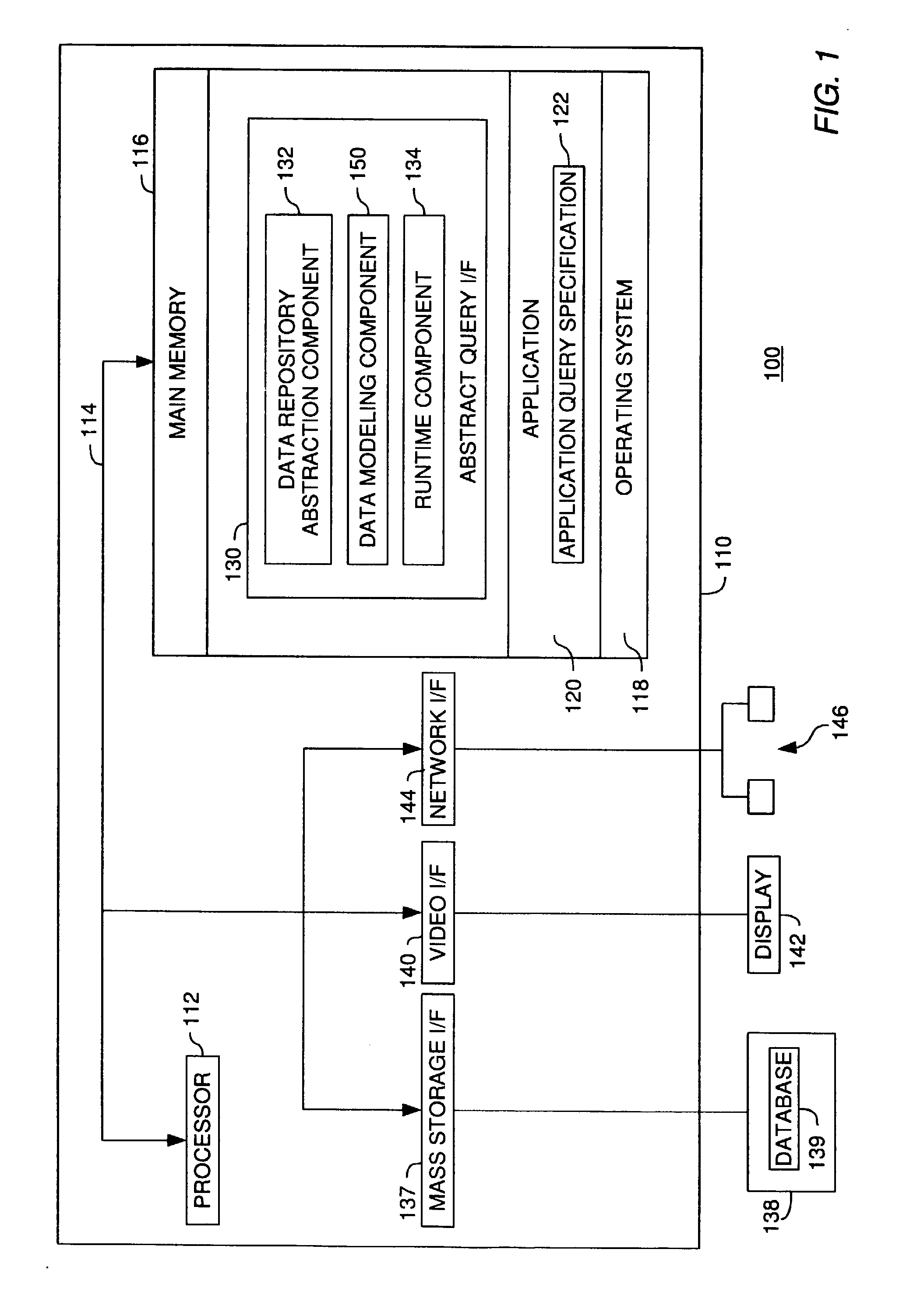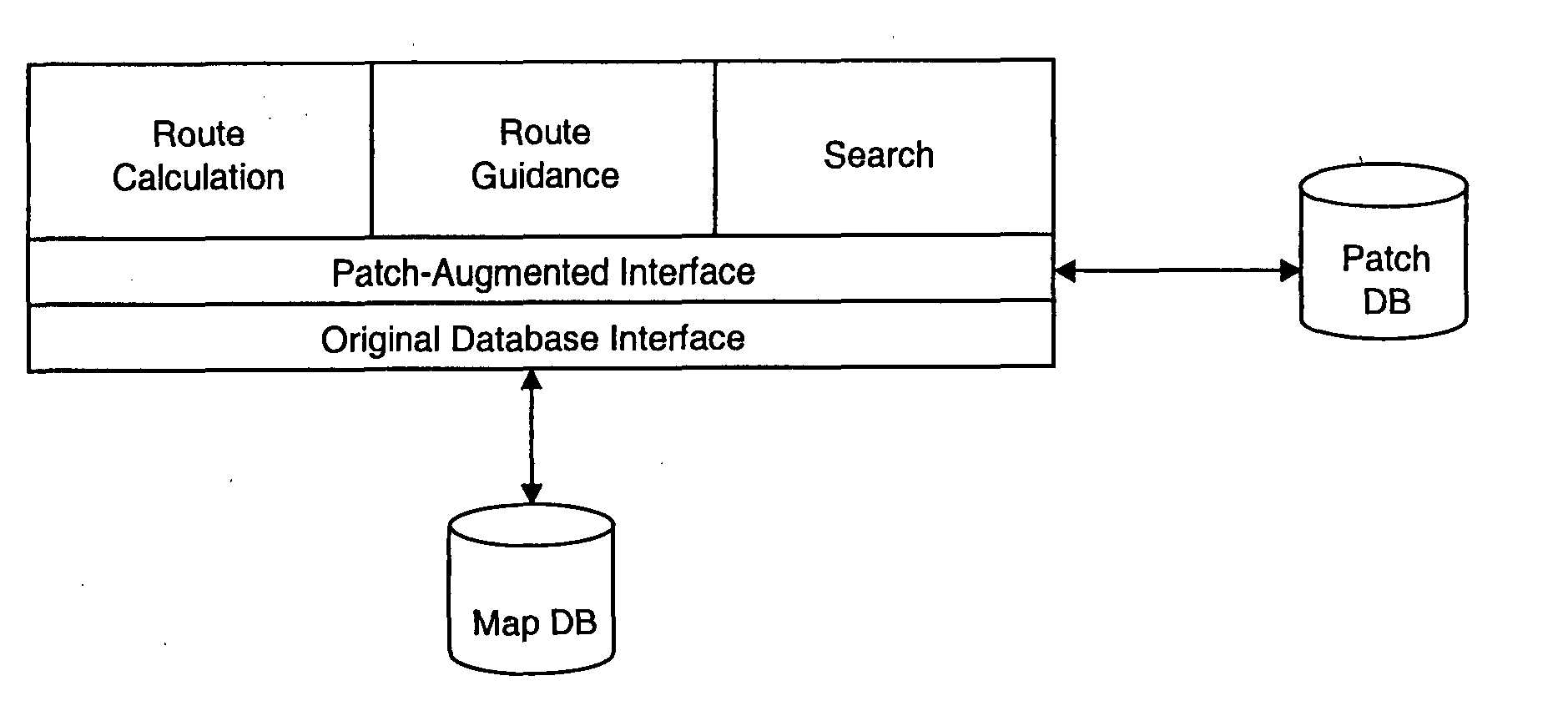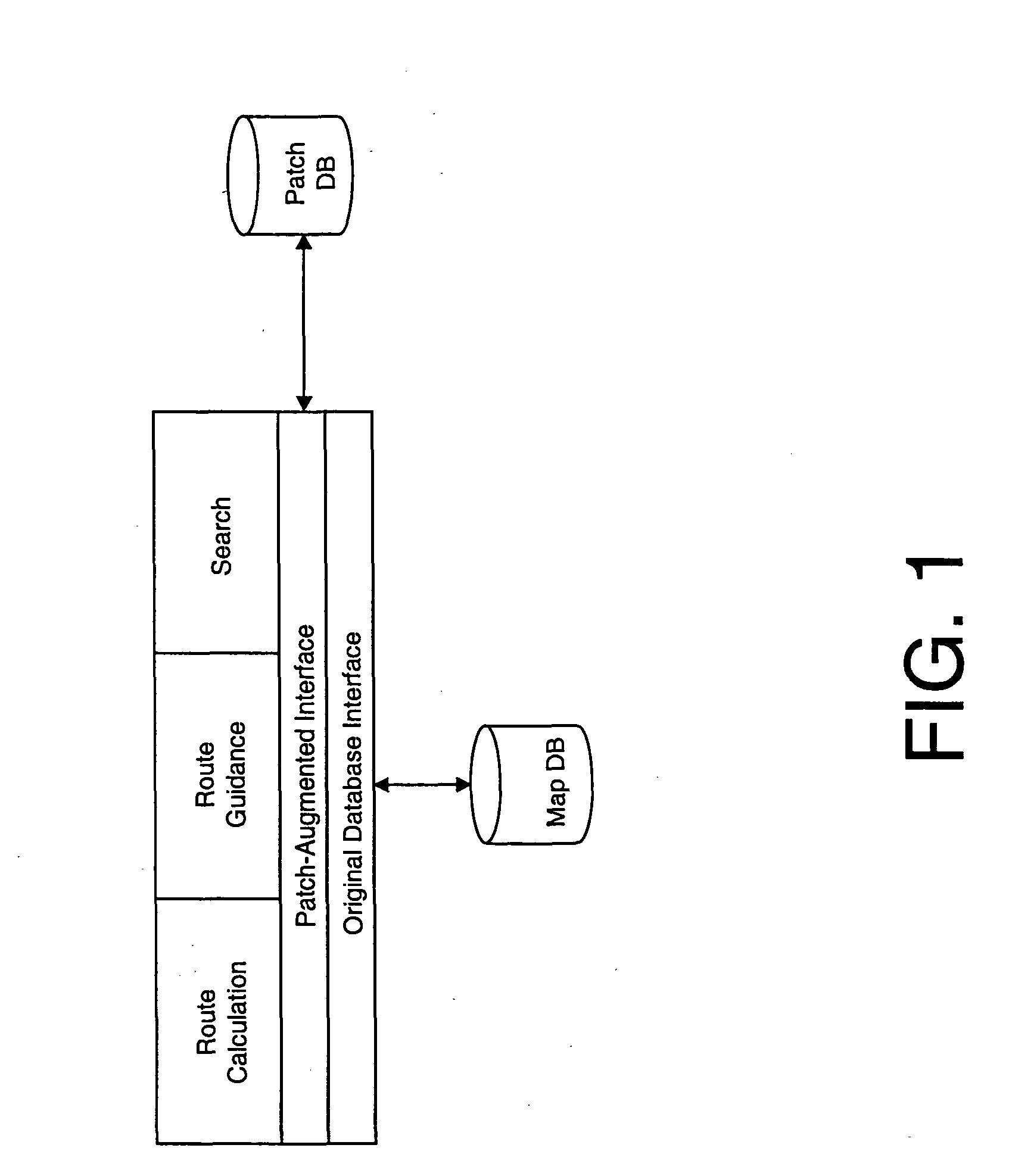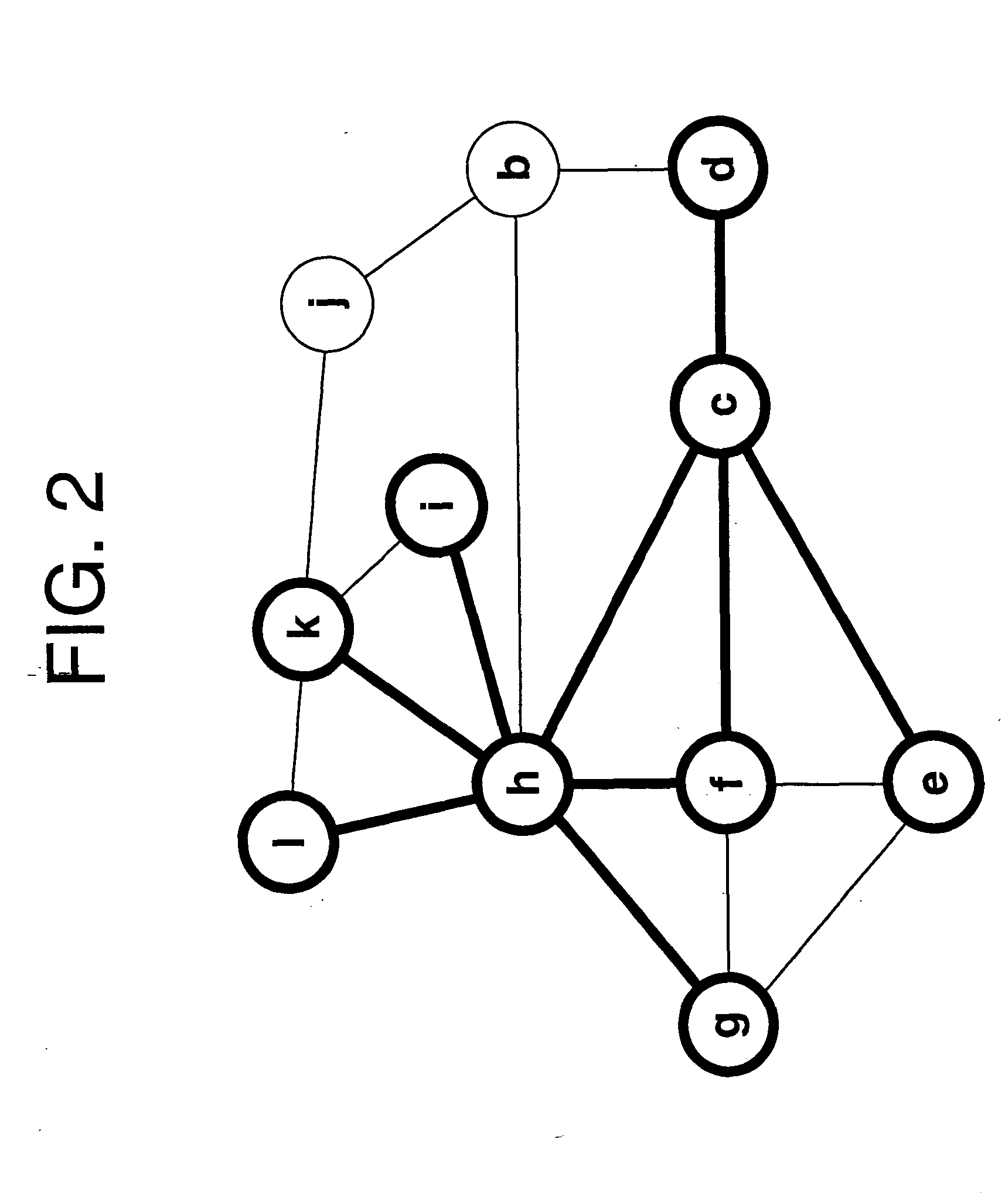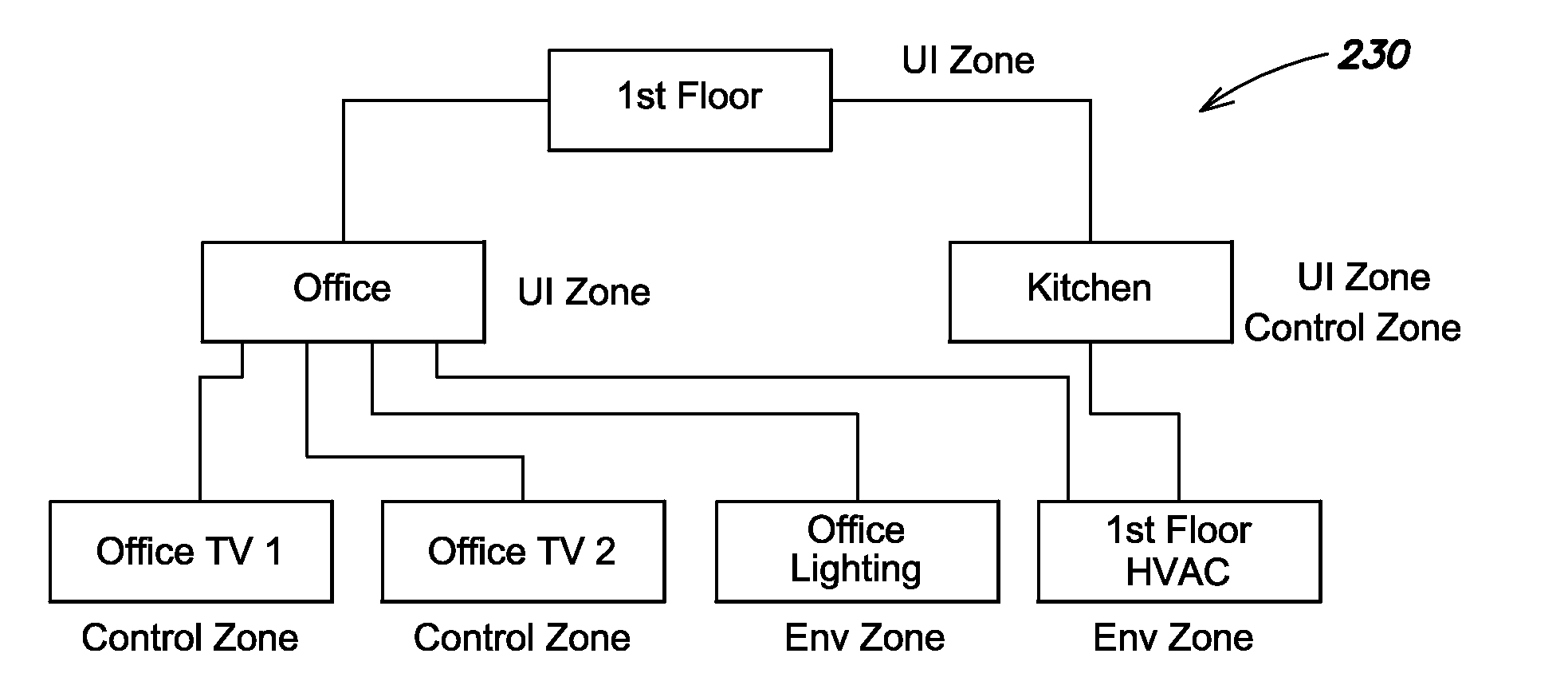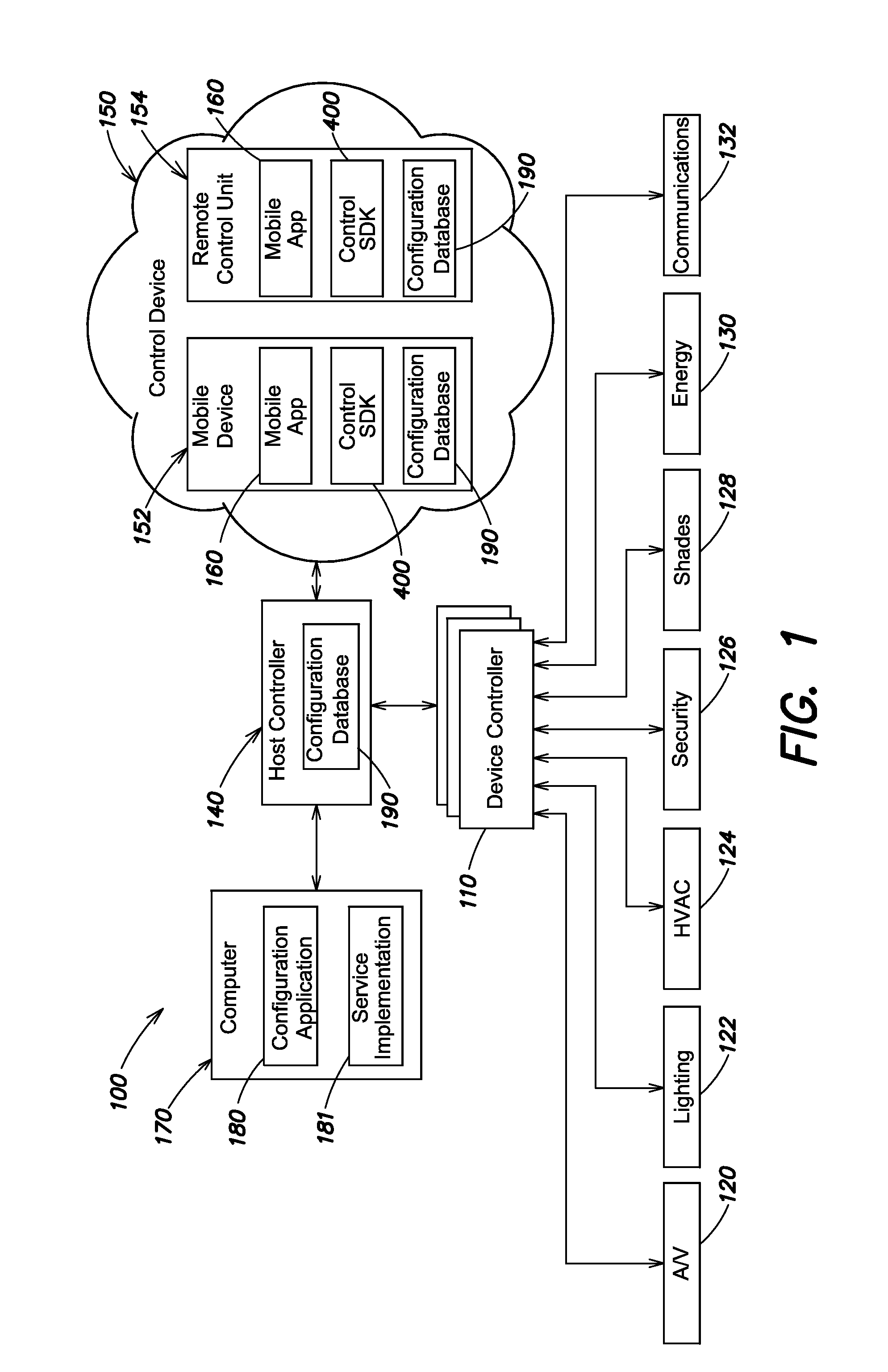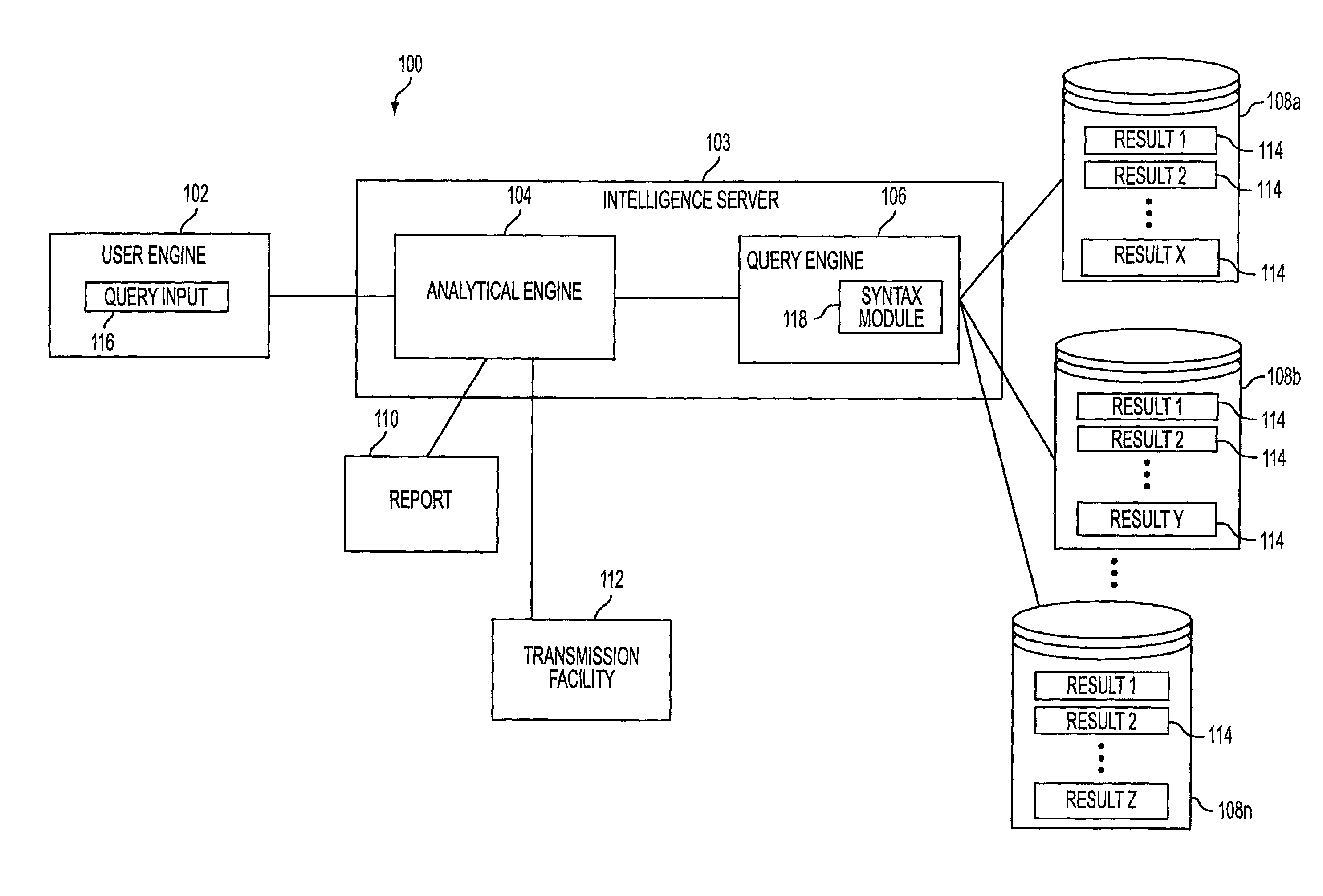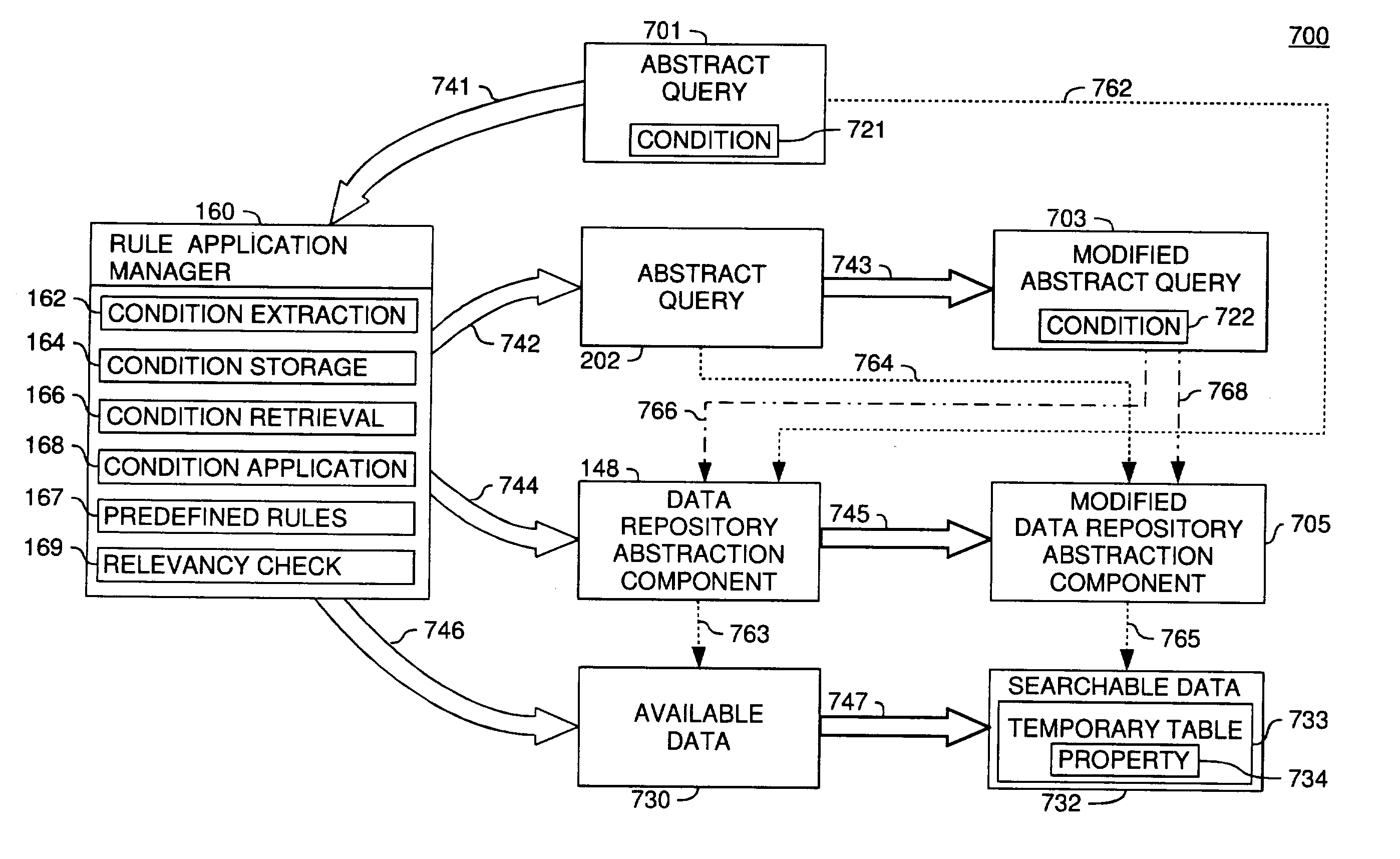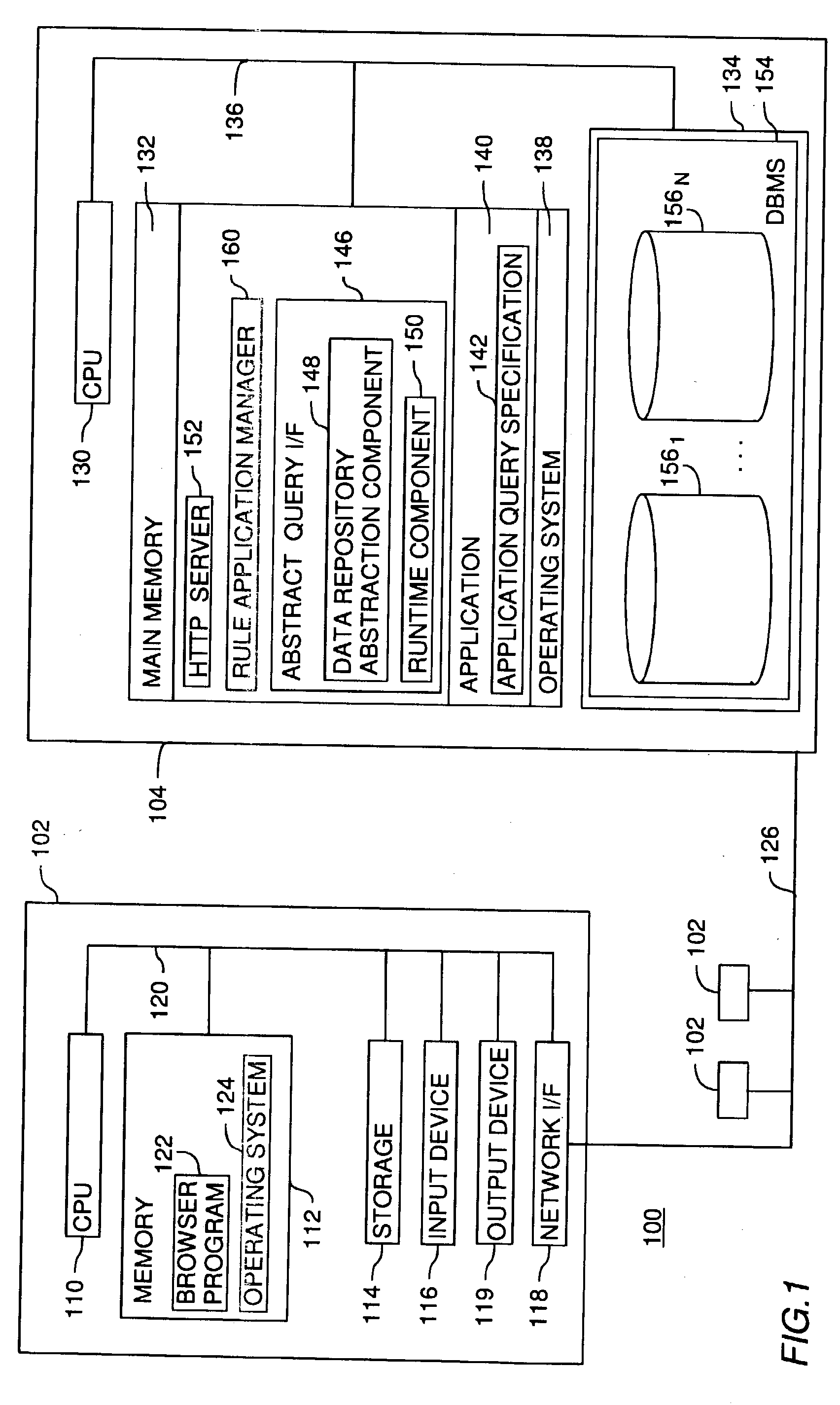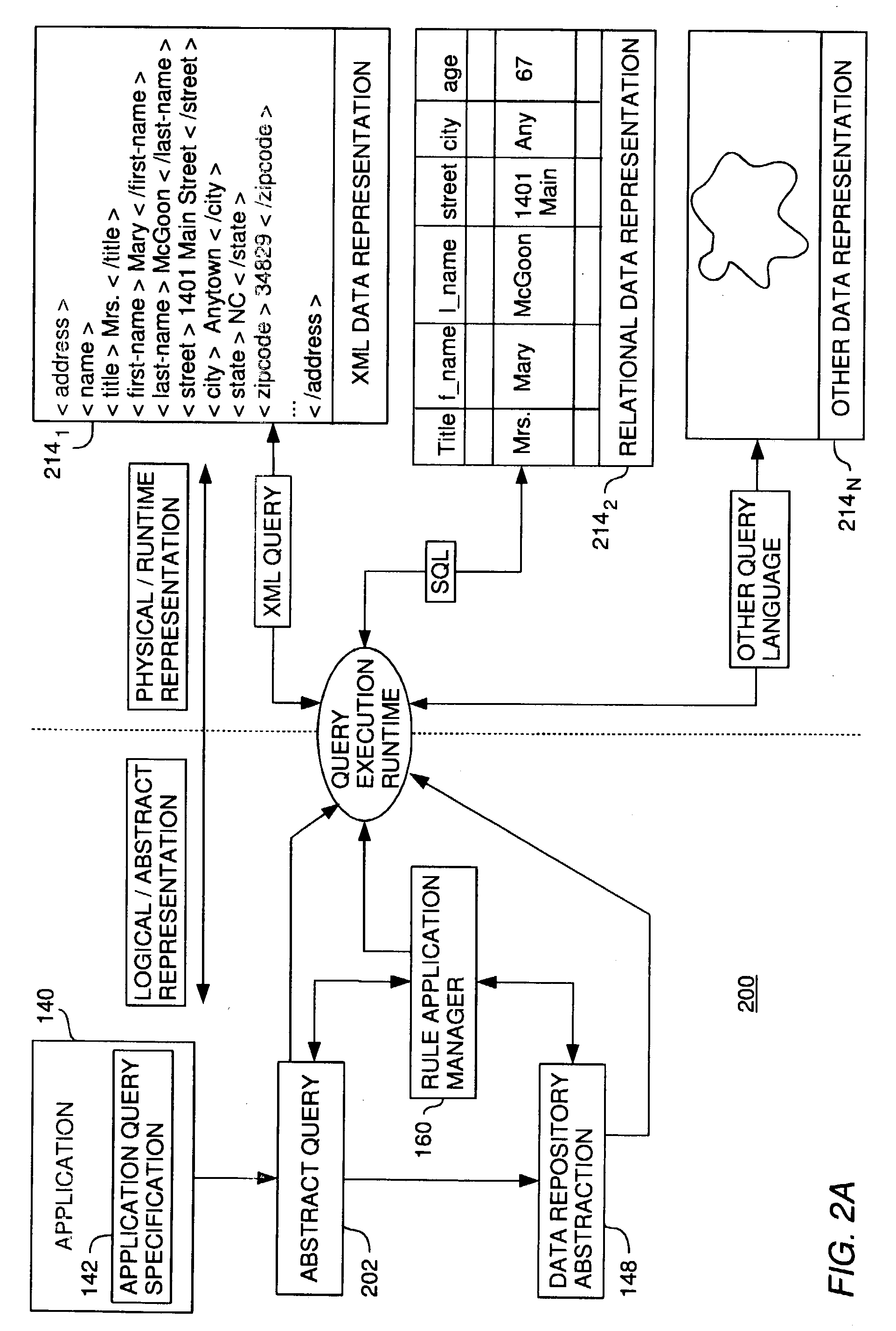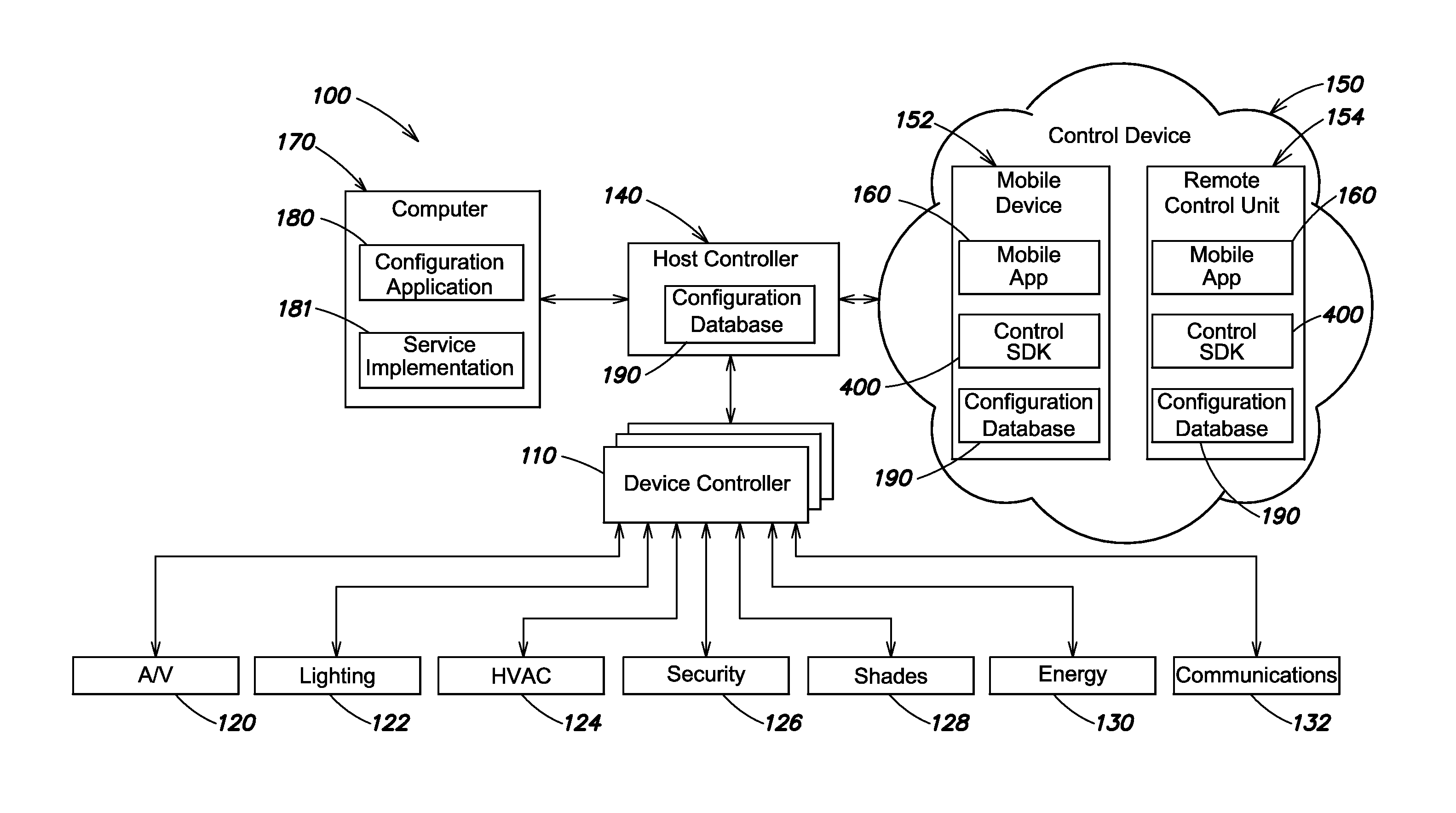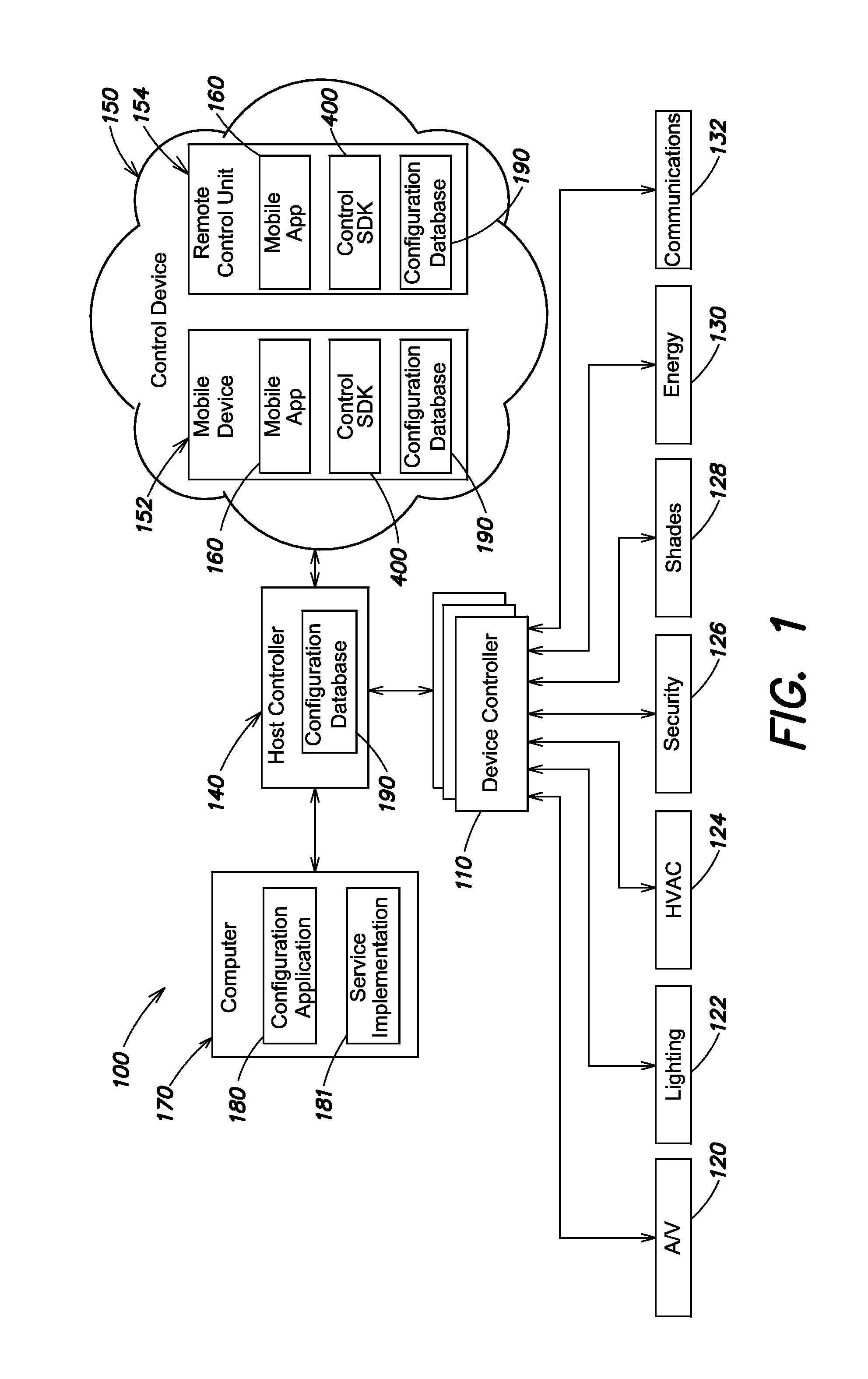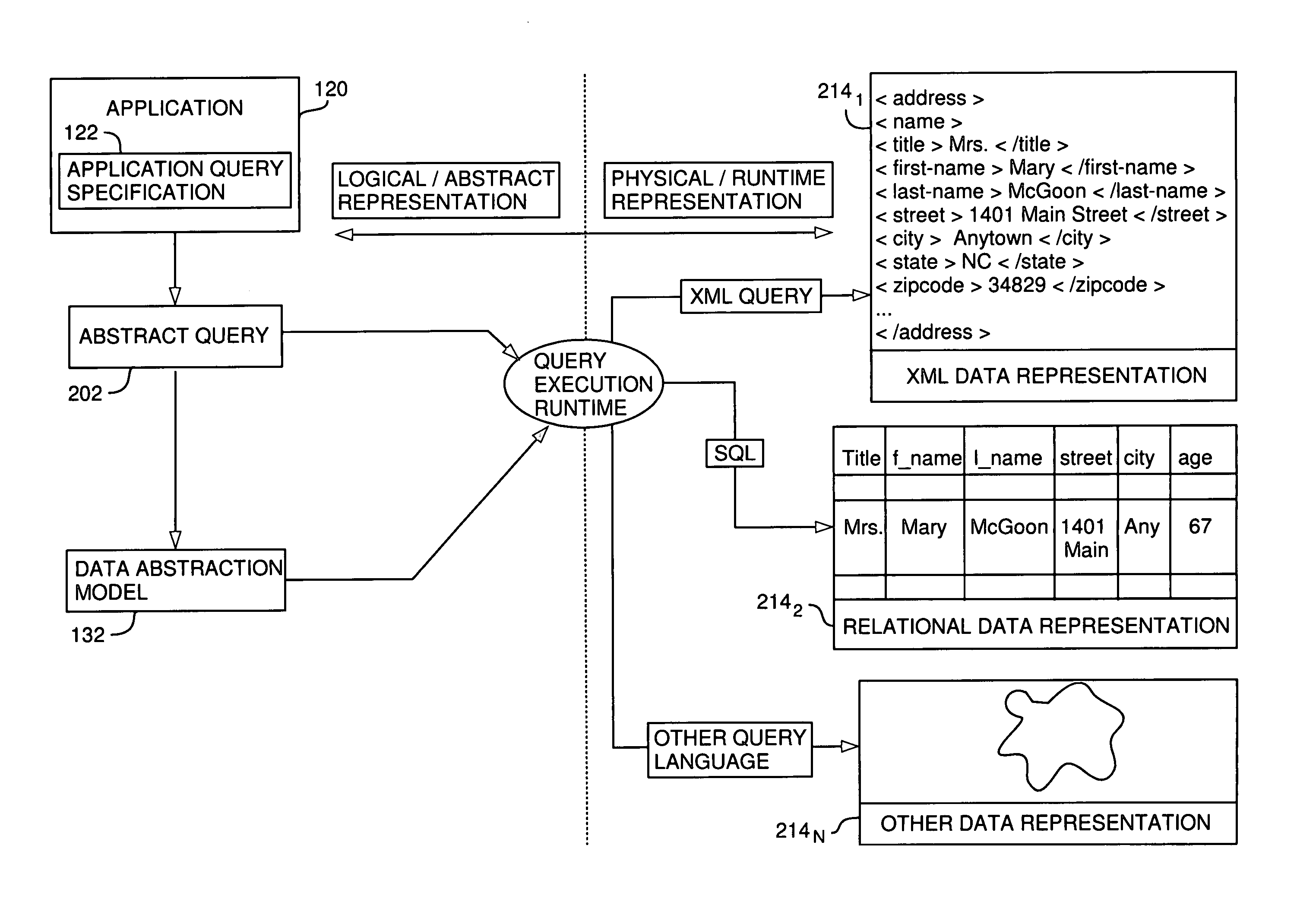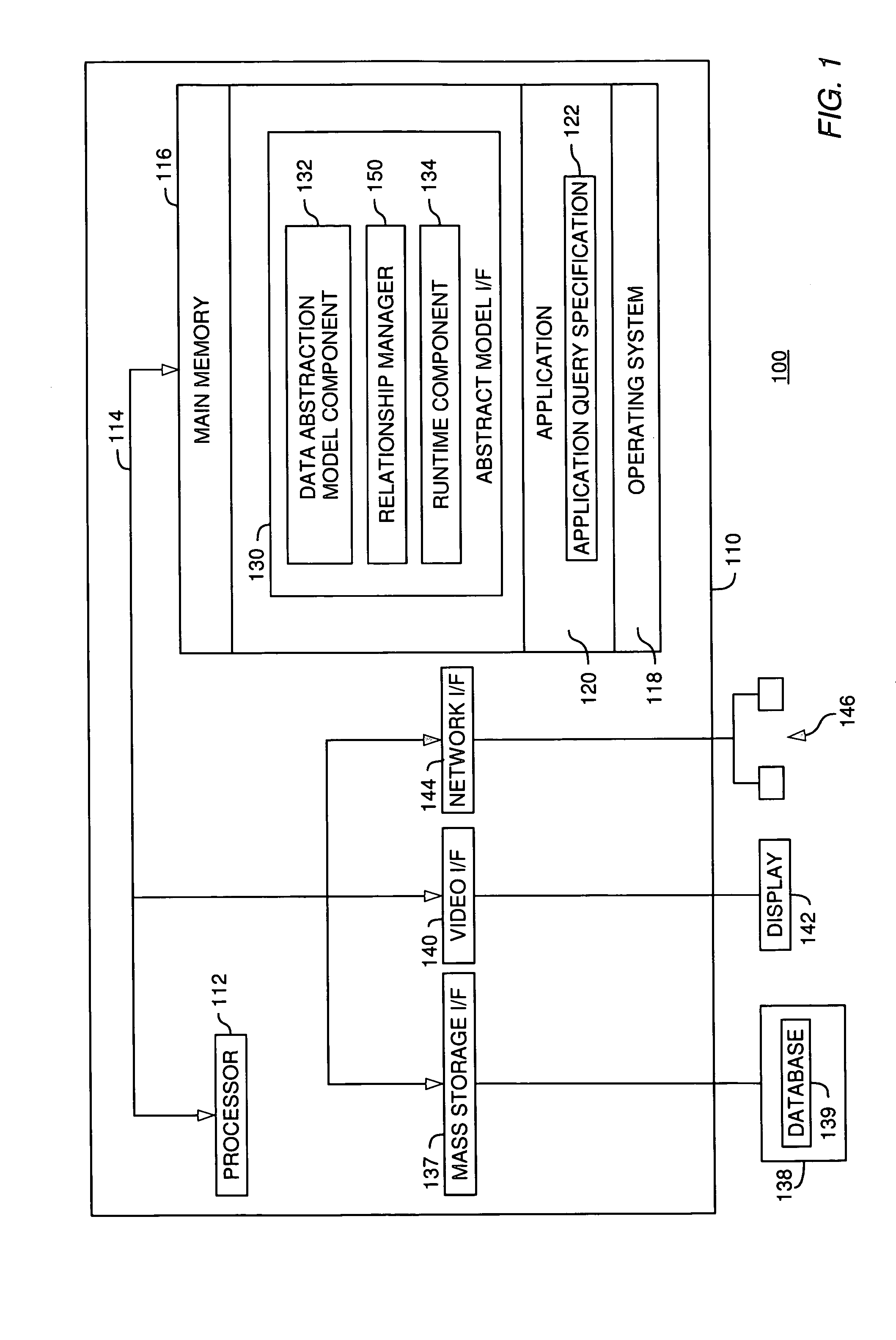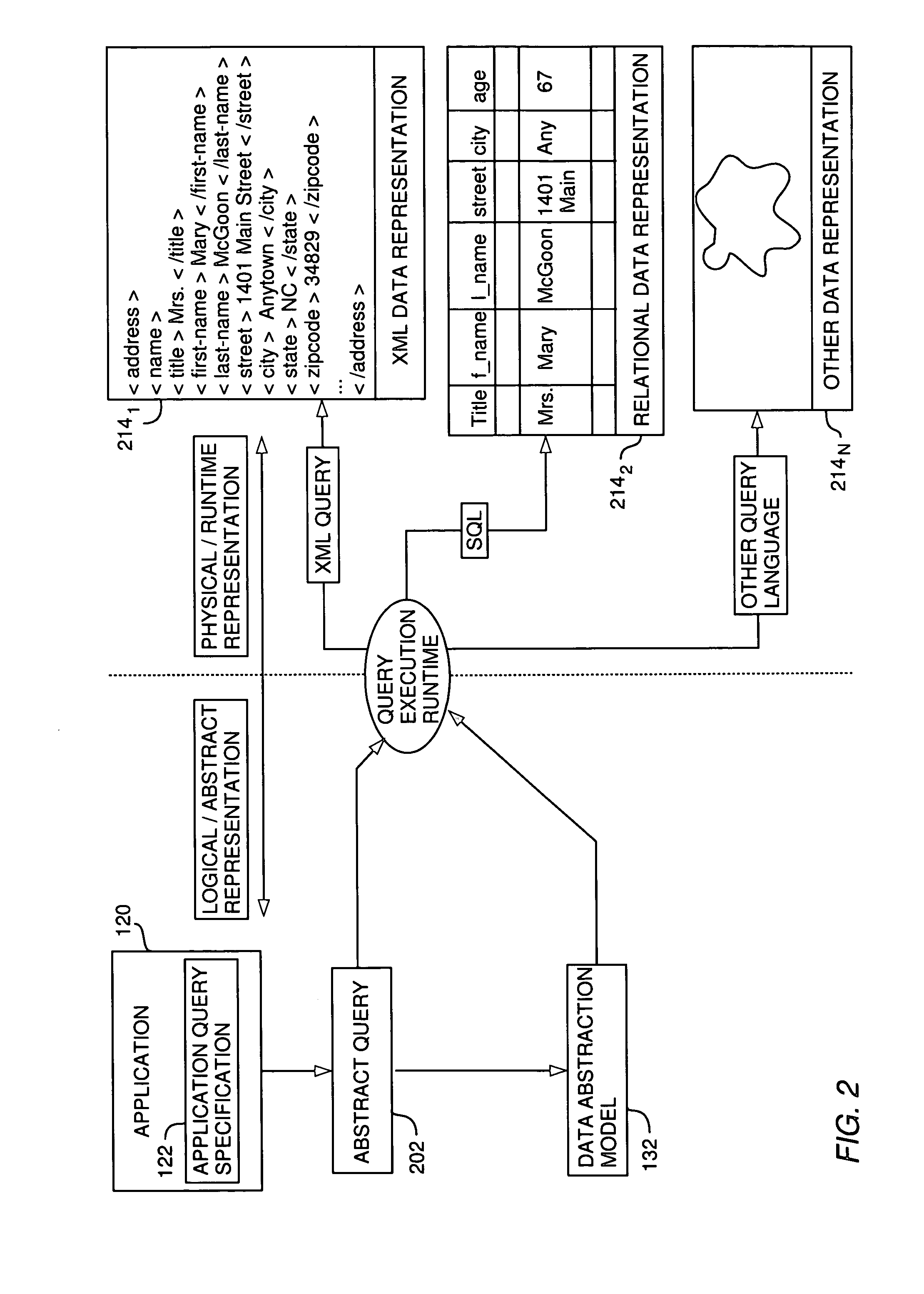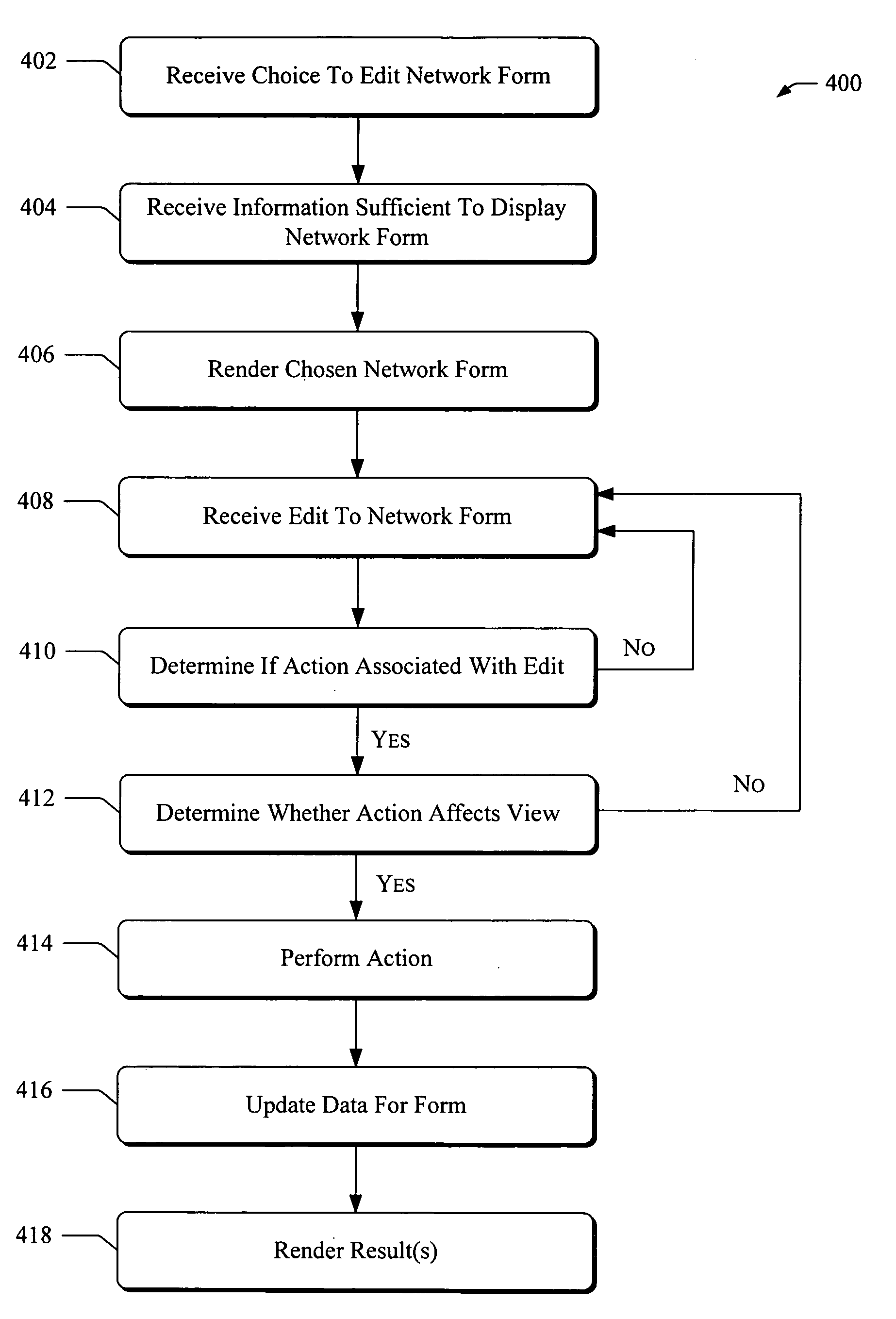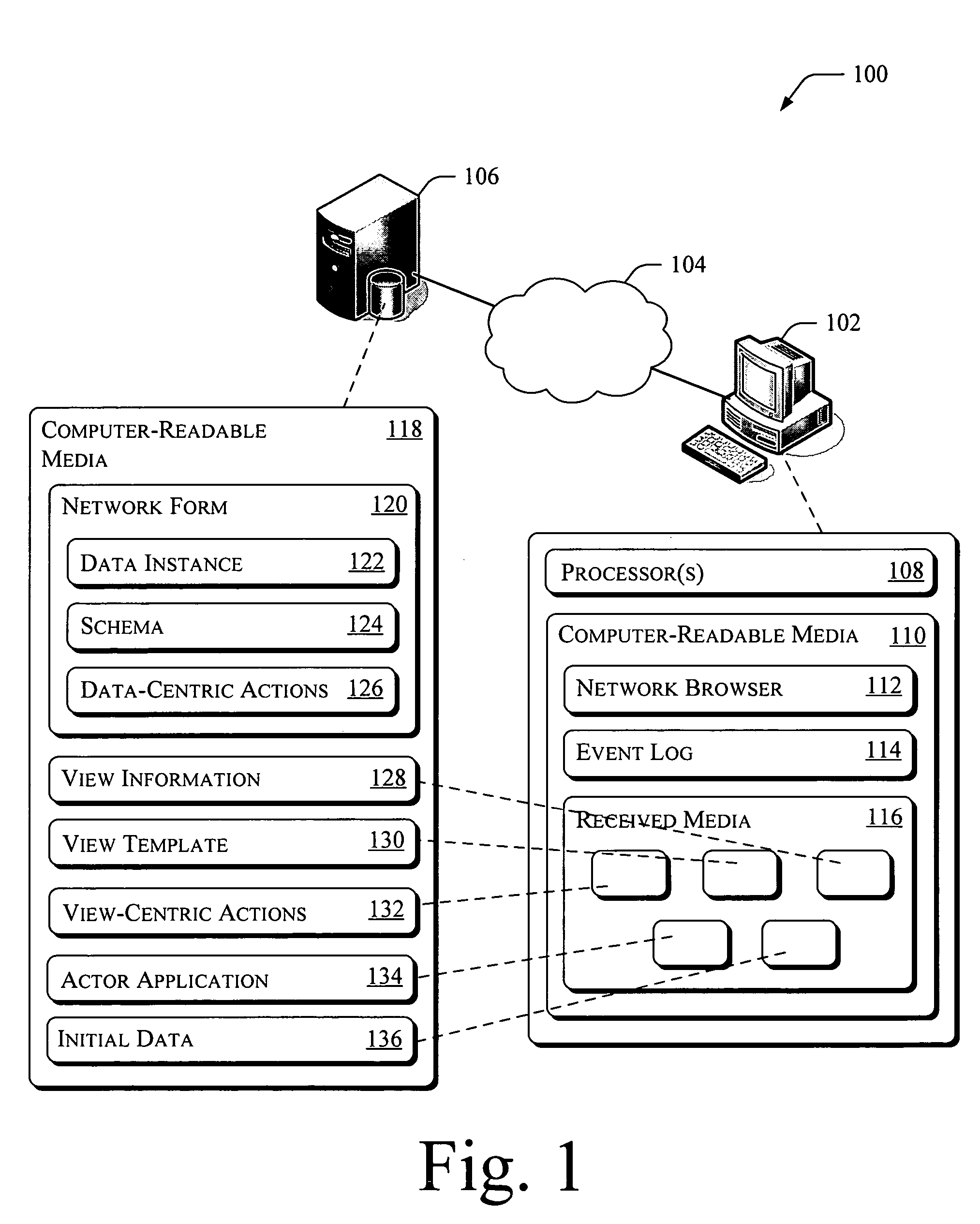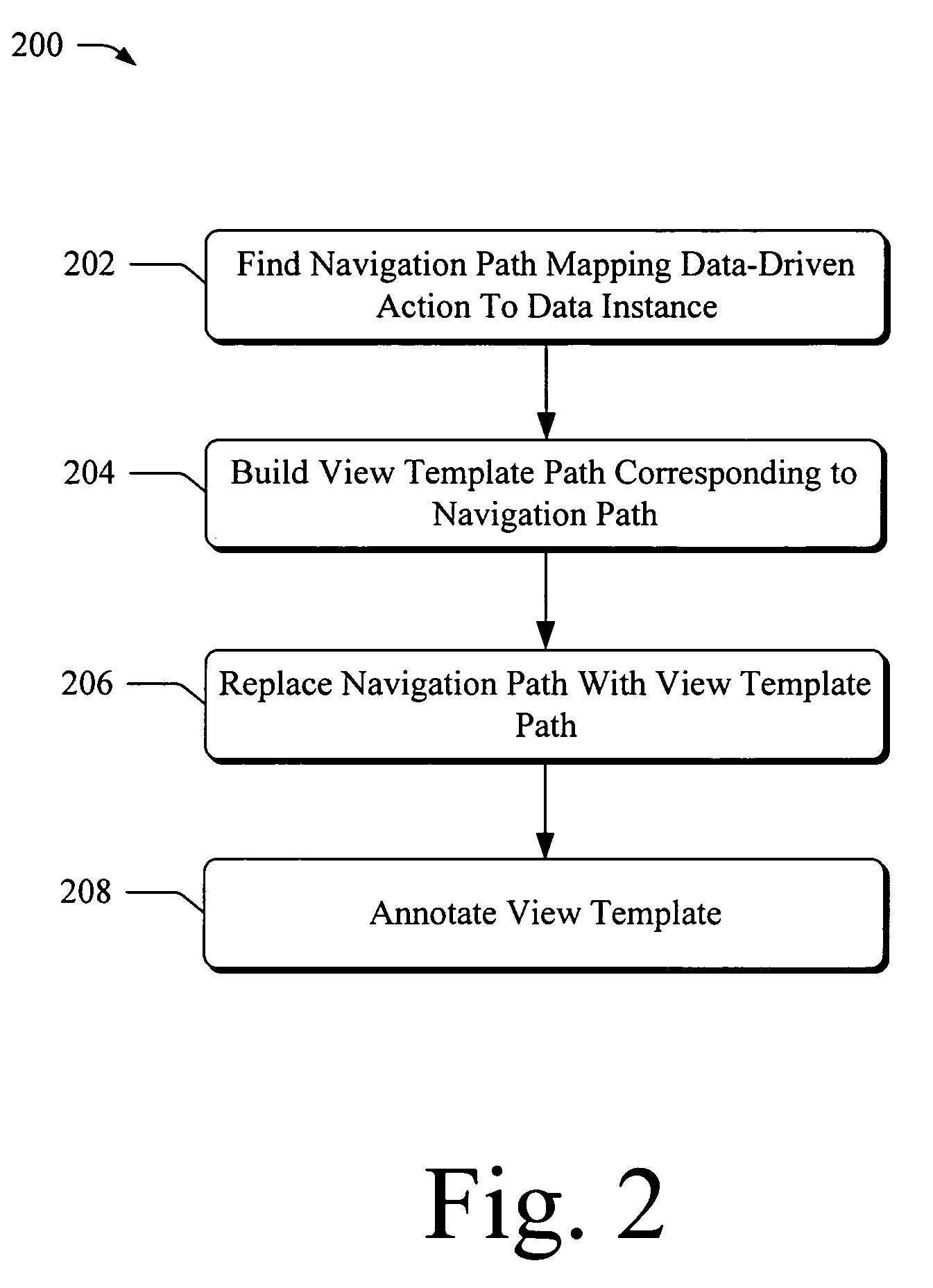Patents
Literature
Hiro is an intelligent assistant for R&D personnel, combined with Patent DNA, to facilitate innovative research.
137 results about "Logical representation" patented technology
Efficacy Topic
Property
Owner
Technical Advancement
Application Domain
Technology Topic
Technology Field Word
Patent Country/Region
Patent Type
Patent Status
Application Year
Inventor
Software development system that presents a logical view of project components, facilitates their selection, and signals missing links prior to compilation
InactiveUS6487713B1Quickly and accurately recordedVersion controlVisual/graphical programmingData displaySoftware development process
A software development system develops a product from core library of source code elements, the core library being categorized into components having one or more features. A configurator develops configuration state data based on a designated platform type and the source code elements. A graphical user interface displays a visual and logical representation of the product according to the configuration state data, includine visual indications of any unresolved dependencies. A product make routine then generates the product from the source code elements according to the configuration state data.
Owner:PHOENIX TECHNOLOGIES LTD
Recovering a database to any point-in-time in the past with guaranteed data consistency
ActiveUS8364648B1Digital data processing detailsStructured data retrievalTransaction dataData management
A data management method wherein a real-time history of a database system is stored as a logical representation and the logical representation is then used for any point-in-time recovery of the database system. More specifically, a method for capturing transaction data, binary data changes, metadata, and events, and for tracking a real-time history of a database system according to the events. The method enables tracking and storing of consistent checkpoint images of the database system, and also enables tracking of transaction activities between checkpoints. The database system may be recovered to any consistent checkpoint or to any point between two checkpoints.
Owner:QUEST SOFTWARE INC
Method for managing real-time data history of a file system
InactiveUS20070094312A1Digital data information retrievalDigital data processing detailsReal-time dataFile system
A data management method is provided for storing a real-time history of a file system, or a component thereof, such as a directory or a file. The real-time history is stored as an object-oriented logical representation comprising at least a set of version metadata objects, and a set of one or more links that associate given objects of the set of version metadata objects. As one or more events occur in the real-time history, the logical representation is restructured dynamically. The logical representation is useful to provide any point-in-time reconstruction of the file system component on an as-needed basis.
Owner:BAKBONE SOFTWARE INC
System and method to detect premium attacks on electronic networks and electronic devices
A computerized method for detecting premium attacks by an attack classification system is described. Based on received analytic information, the attack classification system generates logical representations for different portions of the analytic information represented as a nodal graph. The logical representations include objects, properties, and relationships between the objects and the properties. The attack classification system filters at least one relationship from the relationships and forms a first cluster further filtering the relationships. Being a logical representation of objects, properties and the remaining relationships, the first cluster is analyzed to determine features and introduce the features into the nodal graph. An analysis of the features determines whether the objects, properties and relationships forming the first cluster are associated with a premium attack by at least applying rule-based constraints to the features of the first cluster to determine whether they correspond to cluster features commonly present in premium attacks.
Owner:FIREEYE SECURITY HLDG US LLC
Singleton abstract model correspondence to multiple physical models
ActiveUS7139774B2Data processing applicationsDigital data information retrievalData abstractionPhysical model
A method, system and article of manufacture for accessing data in a database independent of the particular manner in which the data is physically represented and for providing an abstract representation of the data in the database. One embodiment provides a method of architecting a logical representation of physical data in a database comprising providing a template data abstraction model defining template logical fields, and providing, on the basis of the template data abstraction model, a logical representation of the physical data, the logical representation defining a plurality of logical fields providing an abstract view of the physical data and adapted for transforming logical fields of abstract queries into a form consistent with the physical data in the database.
Owner:GOOGLE LLC
Computer-implemented method for managing through symbolic abstraction of a membership expression multiple logical representations and storage structures
InactiveUS20080010241A1Maximum flexibilityImprove performanceRelational databasesSpecial data processing applicationsLogical representationData independence
This is a computer-implemented method for managing and enhancing data independence among multiple logical representations and storage structures of data by accessing and updating physical storage through a relational representation. The present invention supports both data independence and storage flexibility by using membership abstraction as the equalizing access for any logical representation and actual storage, while the prior art is restricted to user-supplied denotations and catalog entries.
Owner:MCGOVERAN DAVID O
Data abstraction model driven physical layout
InactiveUS7146376B2Data processing applicationsDigital data information retrievalData abstractionLogical representation
Owner:GOOGLE LLC
Methods for IT network representation and associated computer program products
A method of creating an IT-network representation including automatically discoverable active elements and not automatically discoverable, passive elements. A logical discoverable-elements representation of the IT network is produced, by running a network auto-discovery tool. The representation includes the automatically discoverable active elements and a discoverable-elements network topology. Representations of not automatically discoverable elements are manually inserted, by a user by means of a network-element editor, between automatically discovered elements into said discoverable-elements representation. Thereby a combined logical representation is created which models the IT network with its automatically discoverable elements and non automatically discoverable elements.
Owner:HEWLETT-PACKARD ENTERPRISE DEV LP
User interface for viewing logical representation of a database backed up by a database recovery manager
ActiveUS7634511B1Data processing applicationsDigital data processing detailsDatabase backupLogical representation
Various methods and systems for presenting a logical view of a database backup are disclosed. One method involves querying a database recovery manager for logical identifiers that correspond to physical backup pieces generated during a backup. The method uses the logical identifiers to display a backup view to a user. The backup view identifies logical database components that are available to be restored.
Owner:VERITAS TECH
Singleton abstract model correspondence to multiple physical models
ActiveUS20040254939A1Data processing applicationsDigital data information retrievalData abstractionPhysical model
A method, system and article of manufacture for accessing data in a database independent of the particular manner in which the data is physically represented and for providing an abstract representation of the data in the database. One embodiment provides a method of architecting a logical representation of physical data in a database comprising providing a template data abstraction model defining template logical fields, and providing, on the basis of the template data abstraction model, a logical representation of the physical data, the logical representation defining a plurality of logical fields providing an abstract view of the physical data and adapted for transforming logical fields of abstract queries into a form consistent with the physical data in the database.
Owner:GOOGLE LLC
Robotic system with verbal interaction
A method and apparatus for moving an object. A verbal instruction for moving the object is received. The verbal instruction is converted into text. A logical representation of the verbal instruction is generated. A movement of a robotic system that corresponds to the verbal instruction for moving the object using a model of an environment in which the object and the robotic system are located is identified. A set of commands used by the robotic system for the movement of the robotic system is identified. The set of commands is sent to the robotic system.
Owner:THE BOEING CO
RAID 6 disk array architectures
A system and method for providing multiple disk fault tolerance in an N-column by R-row logical representation of stored elements in an array of N independent disks, R minus 1 being less than N divided by a number of disk failures F, includes assigning each strip containing data to at least F different parity groups so that each strip containing data in a respective column is assigned to parity groups different than other strips containing data in the column. The method also includes calculating, for each parity group, a parity value corresponding to all of the strips assigned to the parity group. The method further includes storing each of the parity values in strips of different columns, so that none of the strips containing data in a column are assigned to a parity group for which the parity value for the parity group is stored in the column.
Owner:PMC-SIERRA
Identification of updated files for incremental backup
InactiveUS7266574B1Improve performanceImprove identificationData processing applicationsDigital data processing detailsClient-sideDatabase application
A method may be provided for incrementally backing up data from a logically represented volume on disk media. The disk media is accessible by a client through a network connection. The client comprises an enterprise database application. The method identifies tracks of the logically represented volume that have changed since a last incremental backup operation by reading fresh data indications. Each of the fresh data indications corresponds to a track of the logically represented volume, and a given fresh data indication is indicative of whether its corresponding track has been changed since a last incremental backup operation. Files are identified for incremental backup. The identified files comprise blocks saved on a track deemed changed since a last incremental backup operation. The identified files are backed up from the disk media to sequential storage media through a high speed connection.
Owner:EMC IP HLDG CO LLC
Efficient application-aware disaster recovery
Embodiments are directed to efficiently backing up portions of data and to performing a scoped data recovery. In an embodiment, a computer system preloads data images with data corresponding to various different software applications or operating systems. The computer system chunks the data images, so that each data image is divided into multiple data chunks, and where each data chunk is represented by a hash value. The computer system then receives, from a user, portions of delta data representing data differences between the received user data and the data in the preloaded data images. The computer system also generates a logical backup representation that includes the data chunk hash values for the preloaded data images as well as the delta data received from the user. This logical representation allows restoration of the user's data using only the hash values and the delta data.
Owner:MICROSOFT TECH LICENSING LLC
System and methods for facilitating third-party call and device control
InactiveUS20050174987A1Efficient managementFacilitate communicationSpecial service for subscribersTime-division multiplexThird partyComputer hardware
The present invention comprises a system and methods for facilitating third-party call control using a peer-to-peer configuration with SIP. More specifically, the present invention comprises a system and methods, including protocols, for: modeling a communication device as a logical representation and a physical representation thereof; associating the logical representation and the physical representation with unique identifiers; identifying all of the communication devices on a network; determining the relationships between the identified communication devices; establishing a device control channel for each physical representation; establishing a call control channel for each logical representation; controlling the logical representation and the physical representation via the call and device control channels; monitoring the state of the logical representation and the physical representation via the call and device control channels; and, storing data representing the state of the logical representation and the physical representation.
Owner:MICROSOFT TECH LICENSING LLC
Recovering a database to any point-in-time in the past with guaranteed data consistency
ActiveUS8712970B1Digital data processing detailsStructured data retrievalTransaction dataData management
A data management method wherein a real-time history of a database system is stored as a logical representation and the logical representation is then used for any point-in-time recovery of the database system. More specifically, a method for capturing transaction data, binary data changes, metadata, and events, and for tracking a real-time history of a database system according to the events. The method enables tracking and storing of consistent checkpoint images of the database system, and also enables tracking of transaction activities between checkpoints. The database system may be recovered to any consistent checkpoint or to any point between two checkpoints.
Owner:QUEST SOFTWARE INC
Multi-layer protocol reassembly that operates independently of underlying protocols, and resulting vector list corresponding thereto
InactiveUS6968554B1Reduce complexityImprove performanceMultiple digital computer combinationsTransmissionData streamLogical representation
A segmentation and re-assembly (SAR) decode engine receives protocol data units of data from a communication channel between two computers, sequences the protocol data units, and re-assembles the data in the protocol data units into the messages exchanged by the computers. The SAR decode engine is responsible for unpacking the payloads from the protocol data units as instructed by a protocol interpreter associated with the protocol data unit, and for creating and maintaining a flow object database containing flow objects representing the data flows at each protocol layer. The SAR decode engine creates a protocol flow object for each protocol layer and logically links the protocol flow object to circuit flow objects that define two one-way circuits within the channel. The circuit flow objects linked to a protocol flow object are logical representations of the protocol data units for the next higher protocol layer. For protocols that fragment data, each circuit flow object is a vector list containing one or more vectors that define the length, starting location and position of the data fragments in the immediately lower layer circuit flow objects.
Owner:NETWORK GENERAL TECH
Method and Apparatus for Leveraging Social Media for Pro-Active Customer Notification
Customers are contacted on social media websites and instant messaging programs by monitoring a plurality of network-enabled user-interactive sites, e.g., social media websites, for an active presence of a customer on one of the sites. Upon detection of an active presence, a customer support agent is assigned to the customer associated, and a communication channel of customer's choice is established between the agent and the customer. This communication channel is used to exchange messages between the assigned agent and the associated predefined customer. A single contact center representation is established on each site, and a separate logical representation of each single contact center representation is established on premises equipment associated with the agent. The logical representation on the agent premises equipment is used to establish the communication channel between the customer support agent and the associated predefined customer.
Owner:IBM CORP
Method for realizing optimization of data source extensive makeup language (XML) query system based on sub-queries
InactiveCN101984439ALess layersEasy to optimizeSpecial data processing applicationsApplicability domainData source
The invention relates to a method for realizing optimization of a data source extensive makeup language (XML) query system based on sub-queries. The method comprises the following steps: receiving corresponding XML query input information; carrying out morphological analysis and syntactic analysis, and verifying the correctness and the validity; if the analysis is successful and the verification is passed, generating an XML analytical syntactic tree; translating the XML analytical syntactic tree, and converting the XML query input information into intermediate logical representation; carrying out rewriting treatment, and generating a target query expression; and calling supported querying and computing engines for querying and computing, and acquiring output query results. By adopting the method for realizing the optimization of the data source XML query system based on the sub-queries, the query rewriting can be used for converting a procedural query into a descriptive query, the sub-queries are optimized, and certain specific sub-queries are rewritten into equivalent attended operation of a plurality of tables by the combination of the sub-queries, thus the levels of query sentences are reduced as much as possible, the treatment of planning optimization can be carried out conveniently, and the method has stable and reliable working performance and wider application range.
Owner:SHANGHAI GONGJIN COMM TECH
Iterative logical renewal of navigable map database
InactiveUS7079946B2Instruments for road network navigationData processing applicationsImproved methodLogical representation
An improved method is provided for identifying road sections in a navigation database. The method includes: receiving a database update identifying at least one road intersection; constructing a logical representation of the road topology surrounding the at least one road intersection; and identifying the at least one road intersection in the navigation database by comparing the logical representation to a logical representation of the navigation database.
Owner:DENSO CORP
System and method for query planning and execution
A coordination planner is suitably used for a query framework system for processing a user request for data from one or more data sources. The query framework system comprises multiple query processing components including a set of query operation providers, each being capable of providing a specific query operation. The coordination planner prepares a user request for execution by translating a logical representation of the user request into a physical representation of the user request using the query operation providers, and executes the physical representation of the user request to obtain a result data stream using the query operation providers.
Owner:INT BUSINESS MASCH CORP
Synchronization of a conceptual model via model extensions
InactiveUS20100106684A1Improve experienceEffective synchronizationDigital data information retrievalDigital data processing detailsLogical representationApplication software
A method of synchronizing data between multiple endpoints each storing a copy of the data in accordance with different underlying schemas. An application model that provides a logical representation of an underlying schema is extended with a synchronization model that provides a logical representation of changes made to the data. The synchronization model comprises functions that provide synchronization information on the changes in a common format. Using such synchronization information, changes in a copy of the data stored in a first underlying schema on a first endpoints are applied to another copy of the data stored in a second underlying schema on a second endpoint in synchronization relationship with the first endpoint.
Owner:MICROSOFT TECH LICENSING LLC
Data abstraction model driven physical layout
InactiveUS20040215629A1Data processing applicationsDigital data information retrievalData abstractionLogical representation
A method, system and article of manufacture for accessing data in a database independent of the particular manner in which the data is physically represented and for modeling a physical representation of the data in the database for architecting a relationship between the physical representation of the data in the database and a logical representation of the data. One embodiment provides a method for architecting a relationship between a physical representation of data in a database and a logical representation of the data. The method comprises providing the logical representation defining logical fields; and then providing, on the basis of the logical representation, the physical representation for the data, whereby the logical fields defined by the logical representation provide an abstract view of the data and map logical fields of abstract queries to respective data in the database.
Owner:GOOGLE LLC
Iterative logical renewal of navigable map database
InactiveUS20050049783A1Simple methodInstruments for road network navigationData processing applicationsLogical representationImproved method
An improved method is provided for identifying road sections in a navigation database. The method includes: receiving a database update identifying at least one road intersection; constructing a logical representation of the road topology surrounding the at least one road intersection; and identifying the at least one road intersection in the navigation database by comparing the logical representation to a logical representation of the navigation database.
Owner:DENSO CORP
Automatic configuration of control device user interface in a home automation system
ActiveUS20150341184A1Simple configurationInstaller time (and thereby the overall cost of the home automation system),Sampled-variable control systemsDigital data information retrievalAuto-configurationMaster controller
In one embodiment, a technique is provided for automatically generating a custom user interface (UI) of a control device usable to control a home automation system. A configuration database is maintained, for example, on a host controller, of the home automation system. The configuration database stores logical representations that describe a configuration. The configuration database is transferred (e.g., downloaded) to a control device. The control device accesses the configuration database for one or more of the logical representations, and translates returned information related to the one or more of the logical representations to UI element, using predefined mappings. The controll device then displays the UI elements as a custom UI.
Owner:SAVANT SYST INC
System and method for extension of data schema
InactiveUS6996568B1Data processing applicationsDigital data information retrievalGranularityRelational database
A system and method for defining and using logical extensions to a set of data stored in a relational database. A metadata definition for various extensions is stored to explain how to extend data as it is stored into a logical representation suitable for reporting and calculating purposes. An analytical engine translates report requests into SQL queries to access the physically stored data using the metadata extension definitions if necessary to generate appropriate results. Here, data is stored in at least one table that is physically keyed by a set of attributes with the attribute determining the granularity or level of data contained within the tables. A report request causes the engine to calculate and / or display the data at a lower level of granularity than exists, thereby invoking the metadata definitions. The extension definitions may describe how to extend data from the physical to the logical including joins and allocation rules.
Owner:MICROSTRATGEGY
Method for restricting queryable data in an abstract database
InactiveUS7089235B2Data processing applicationsDigital data processing detailsData limitationsPhysical entity
A method, system and article of manufacture for processing queries that are executed against a database and, more particularly, for restricting queryable data in a database to a subset of all available data in the database when a query is executed against the database is provided. One embodiment provides a logical representation of all of the available data in underlying physical entities by defining a plurality of logical fields abstractly describing data stored by the associated physical entities, receiving an abstract query comprising at least one logical field of the plurality of logical fields, retrieving at least one condition defining at least one property common to a plurality of physical entities of the queryable data, associating the at least one condition with the abstract query and, in accordance with the at least one condition, restricting the queryable data to the subset of all the available data when executing the abstract query.
Owner:INT BUSINESS MASCH CORP
Providing a user interface for devices of a home automation system
ActiveUS20150341227A1Simple configurationInstaller time (and thereby the overall cost of the home automation system),Digital computer detailsExecution for user interfacesMobile appsStructure of Management Information
In one embodiment, a custom user interface (UI) is provided for a plurality of devices of a home automation system within a structure. A configuration database is constructed that stores logical representations. The logical representations stored in the configuration database to include components, services, rooms, and zones. A mobile application (app) finds and connects to the configuration database. The mobile app then queries the configuration database. Based on the querying, the mobile app presents a custom user interface (UI) to the user on a display screen, wherein the custom UI is usable to control one or more of the plurality of devices of the home automation system.
Owner:SAVANT SYST INC
Method and system for relationship building from XML
InactiveUS20050228800A1Digital data information retrievalDigital data processing detailsData elementLogical representation
A method, system and article of manufacture for relationship building based on text-based markup languages and, more particularly, for representing relationships between data elements defined according to a first physical representation of data in a logical representation. The logical representation abstractly describes a second physical representation of the data, which is generated from the first physical representation of the data. On the basis of the relationships between the data elements, logical relationships each defining a path between data structures of the second physical representation are determined and associated with the logical representation.
Owner:LINKEDIN
Data-driven actions for network forms
InactiveUS7673228B2Natural language data processingTransmissionElectronic formLogical representation
Systems and / or methods are described that enable a data-driven action associated with altering a data instance of a network form without altering and / or having access to the data instance. These systems and / or methods, in one embodiment, render a result of a data-driven action for a network form without transforming the network form's data instance. In another embodiment, the systems and / or methods map a data-driven action to a view-centric logical representation of the electronic form.
Owner:MICROSOFT TECH LICENSING LLC
Features
- R&D
- Intellectual Property
- Life Sciences
- Materials
- Tech Scout
Why Patsnap Eureka
- Unparalleled Data Quality
- Higher Quality Content
- 60% Fewer Hallucinations
Social media
Patsnap Eureka Blog
Learn More Browse by: Latest US Patents, China's latest patents, Technical Efficacy Thesaurus, Application Domain, Technology Topic, Popular Technical Reports.
© 2025 PatSnap. All rights reserved.Legal|Privacy policy|Modern Slavery Act Transparency Statement|Sitemap|About US| Contact US: help@patsnap.com
